A Conquest
Simon Fujiwara
At Dvir Gallery, Brussels, Belgium
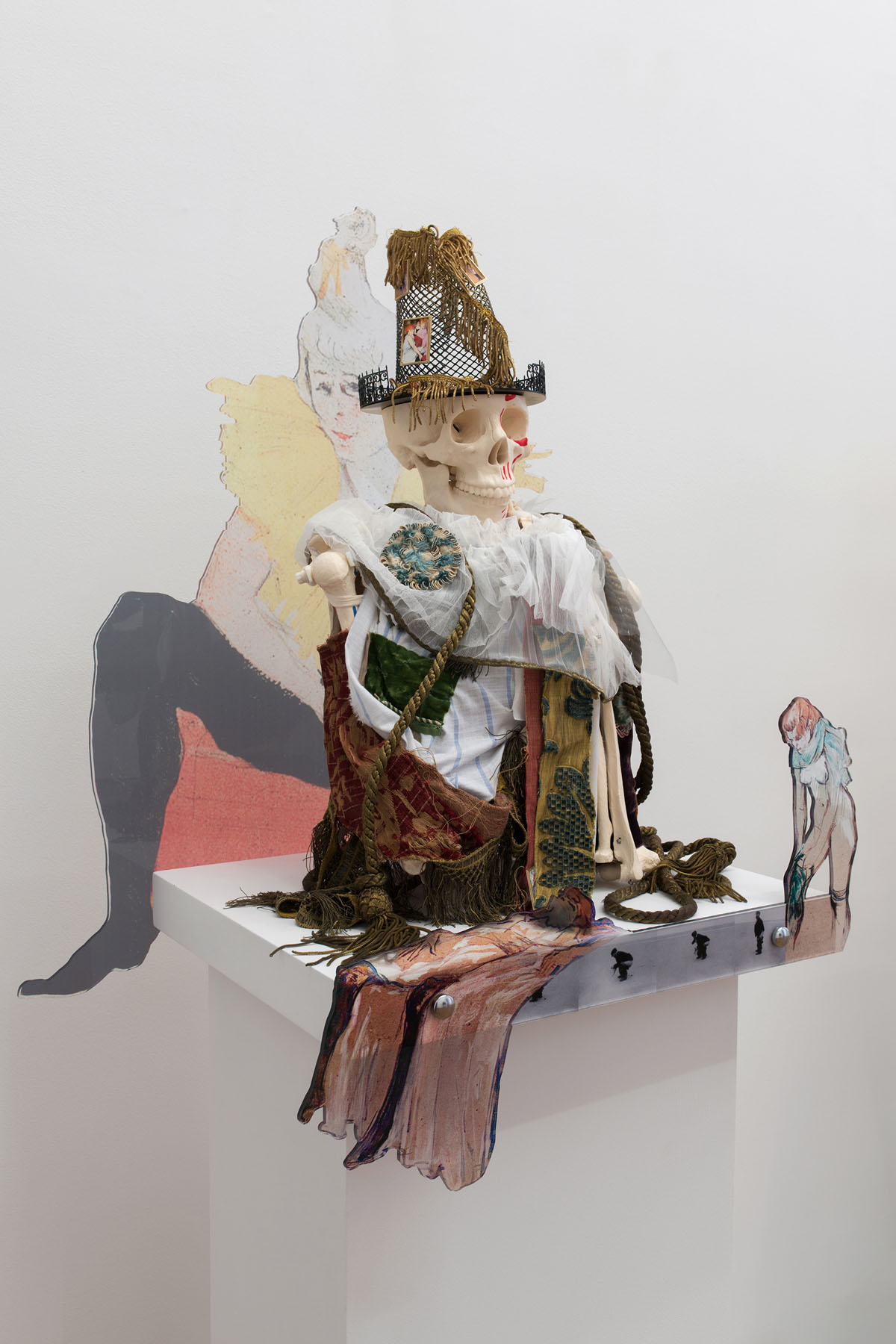
Photography: all images copyright and courtesy of the artist and Dvir Gallery
Feb 20 – Apr 04, 2020
A Conquest
Simon Fujiwara
At Dvir Gallery, Brussels, Belgium

Photography: all images copyright and courtesy of the artist and Dvir Gallery
Feb 20 – Apr 04, 2020
My Dear Friend,
I have thought of you very often and the reason I did not write sooner is that I did not want to write empty phrases. Like you, I live a life of great material privilege and nothing of consequence seems to happen to me. Yet, a hollowness echoes about my soul. By day I am listless and wan and as the sun retires, I seek solace in the most reckless and degenerate forms of moonlight entertainment. In punishment I am justly bestowed with a contagion fit for these lewd exploits. Cupid’s disease, Spanish disease or to speak its name with a tongue devoid of fantasy: Syphilis. It has been made known to me that these tiny, wicked creatures have long run unbridled through my anatomy, ravaging and despoiling me. Had I not seen the error of my ways, sought council and abandoned my wanton behaviors, I would early be locked in the mad house in a glittering fever dream.
And yet, in those short days upon that raft of delirium I would spot an isle and approach with weapons drawn in trepidation, only to find myself surrounded by sounds and sweet airs that gave delight to my senses and did not hurt. Sometimes a thousand gleaming images would descend and blanket my person and the clouds would part to reveal riches ready to drop upon me that, when I waked I cried to dream again. It is in this waking state, dear friend, that you will find me, freed from these dazzling shackles by a well-meaning physician. With mercy I am now cleansed of my invisible foe, yet I find myself secretly longing for that raucous jeopardy of which I am now bereft.
Dear friend, pity me, mock me or delight in my delusions but pray indulge me briefly with your good ear. For is there no part of you that shares my longing for a time not long ago when the world was filled with wonder?
Yours Truly,
Simon Alexander Fujiwara
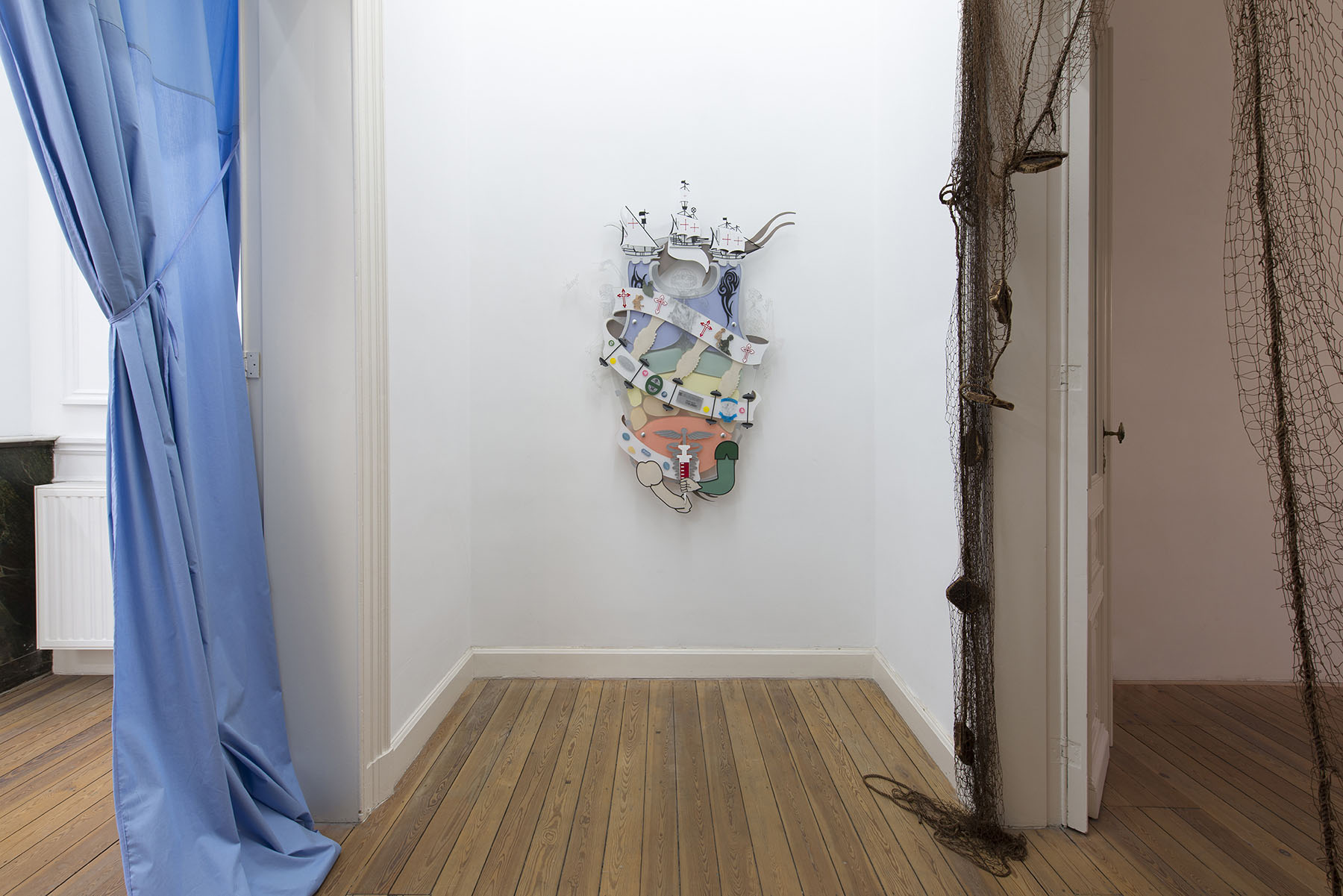
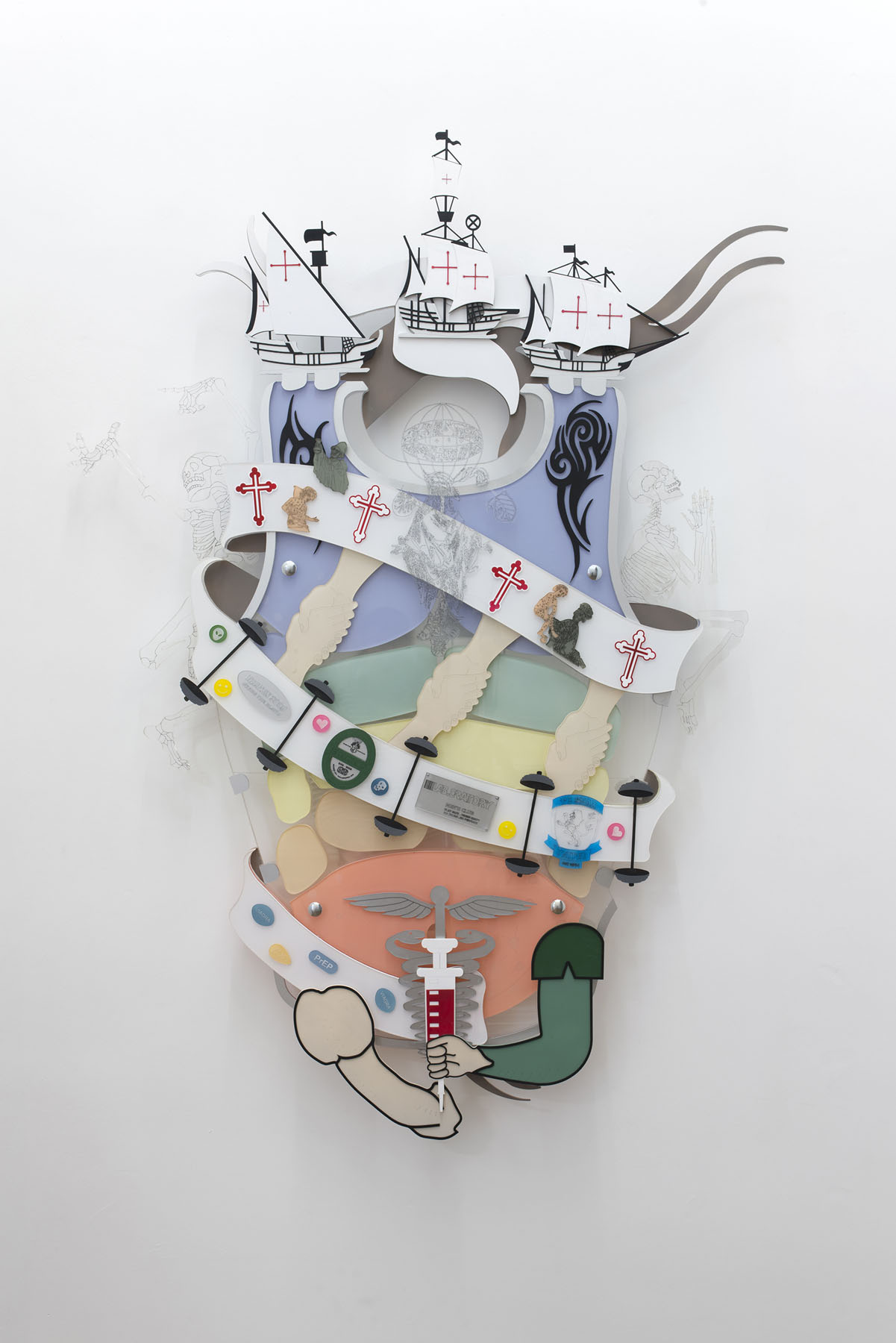
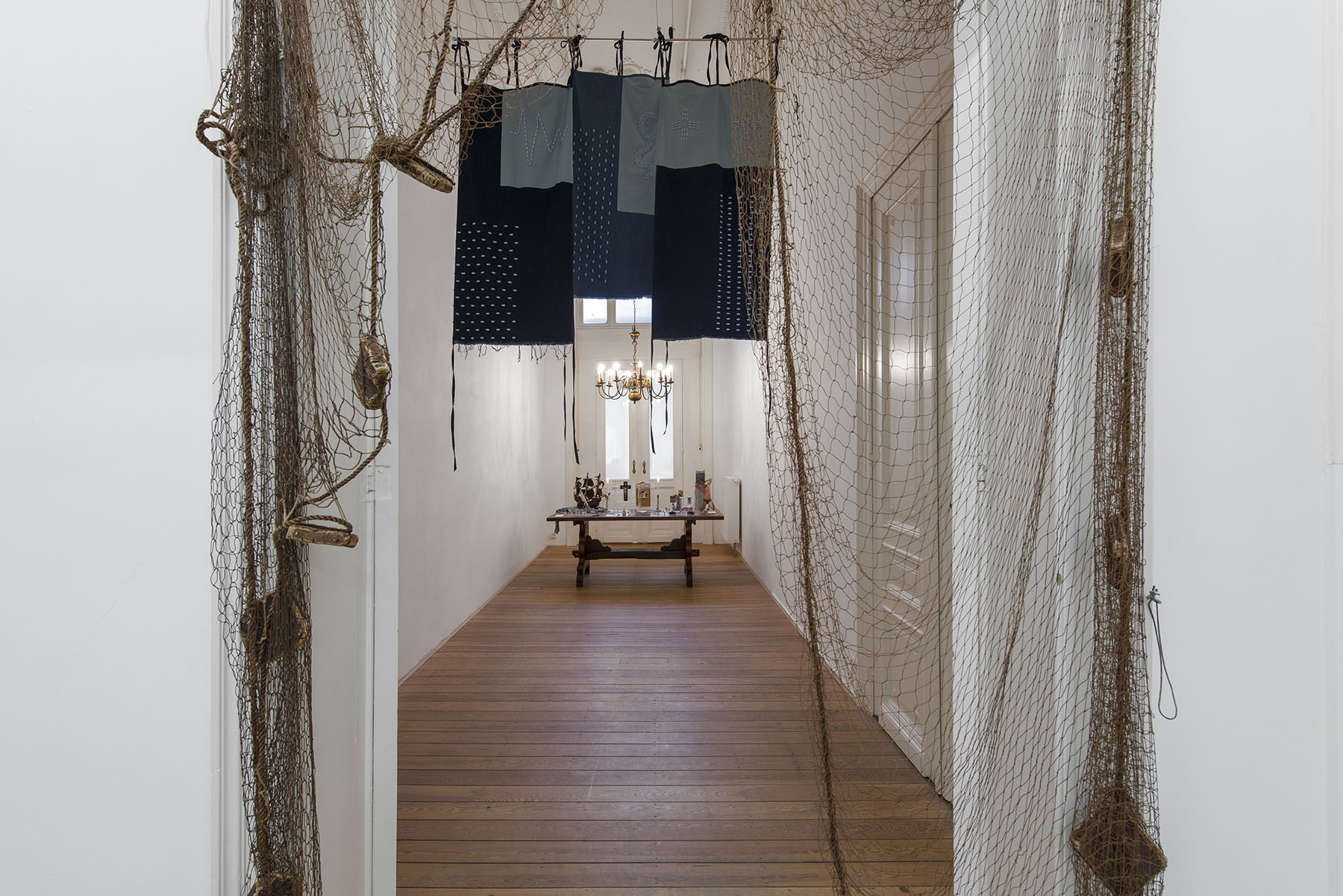
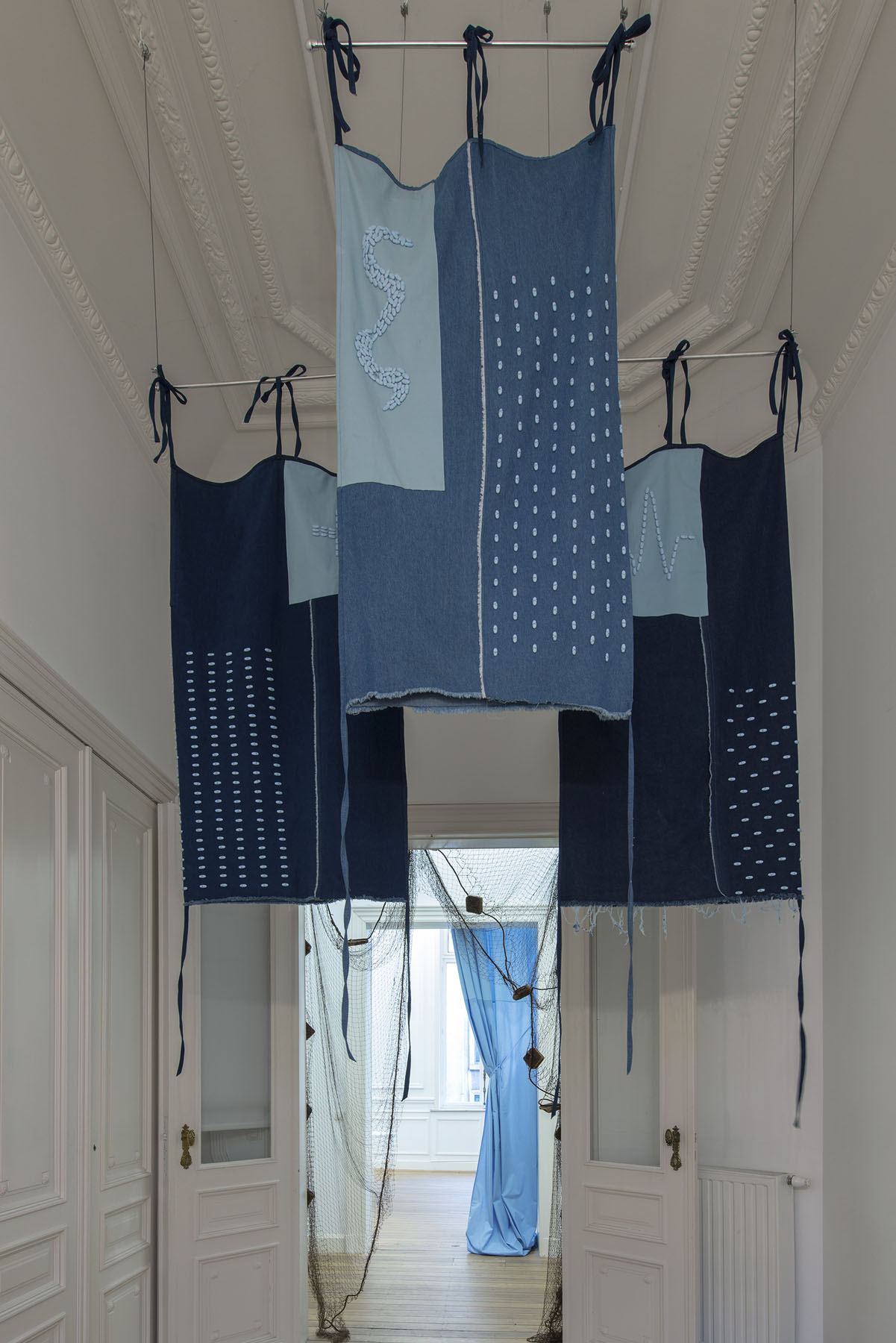
The flags blend medieval nautical imagery of national flags and banners with contemporary materials relevant to the artist. Denim relates to a gay history to which the artist relates as his legacy and collages them with a medical, hospital fabric that represents the history of sexual diseases such as HIV and syphilis. Woven into the fabric are patterns in prep pills, an antiretroviral medication which successfully block HIV infection. This recently developed medication acts as a biological protection for the body, a barrier from invasion by virus and bacteria.
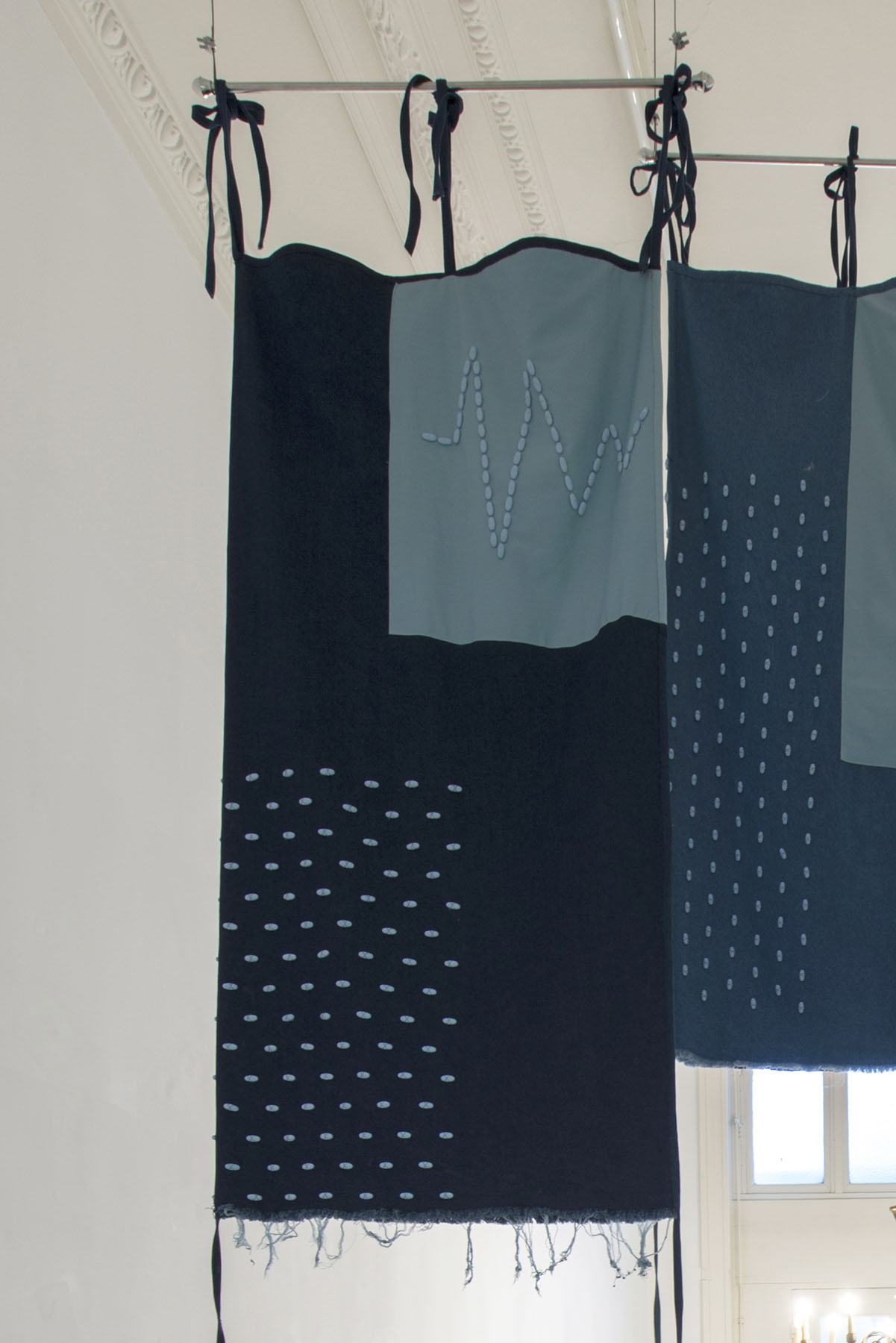
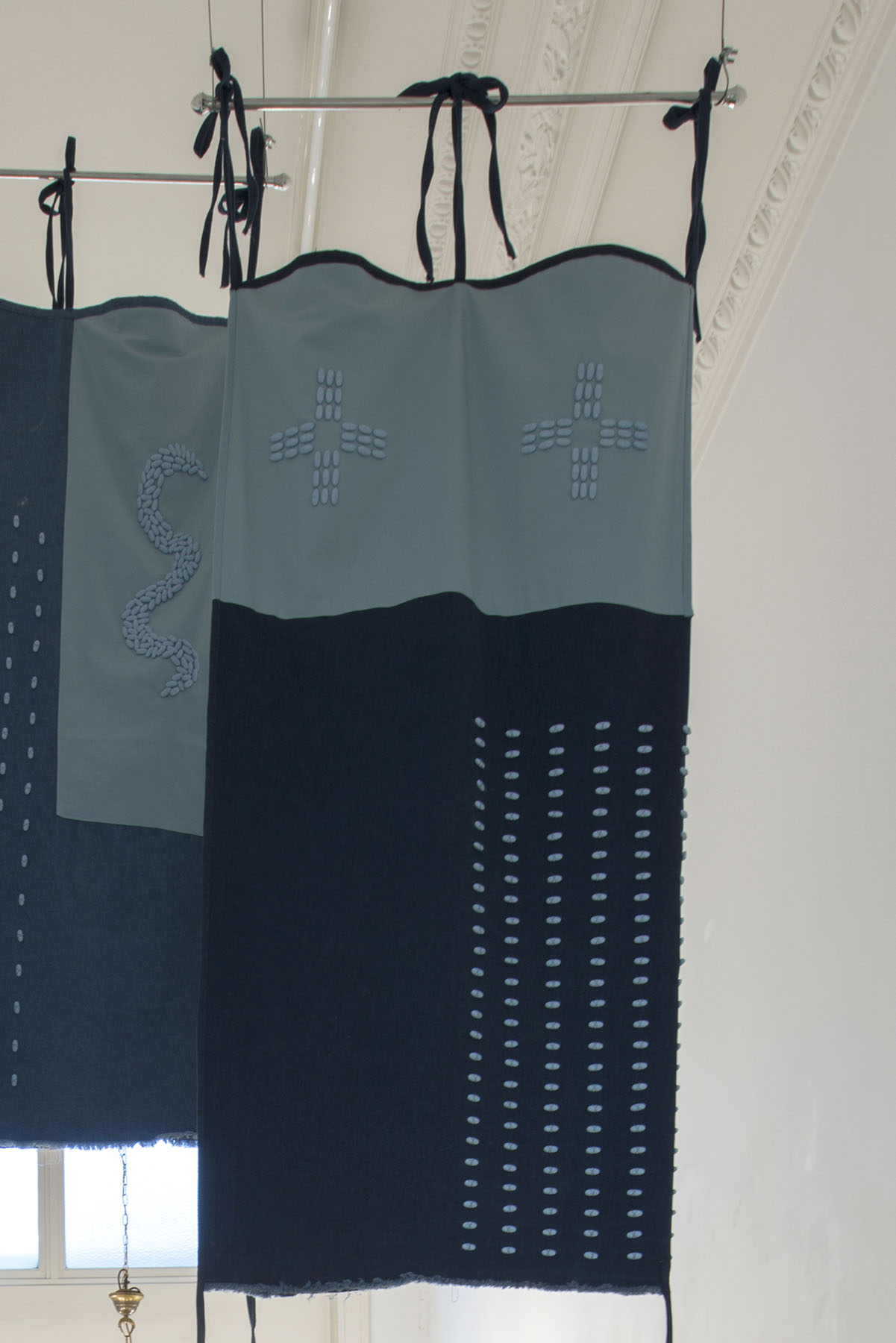
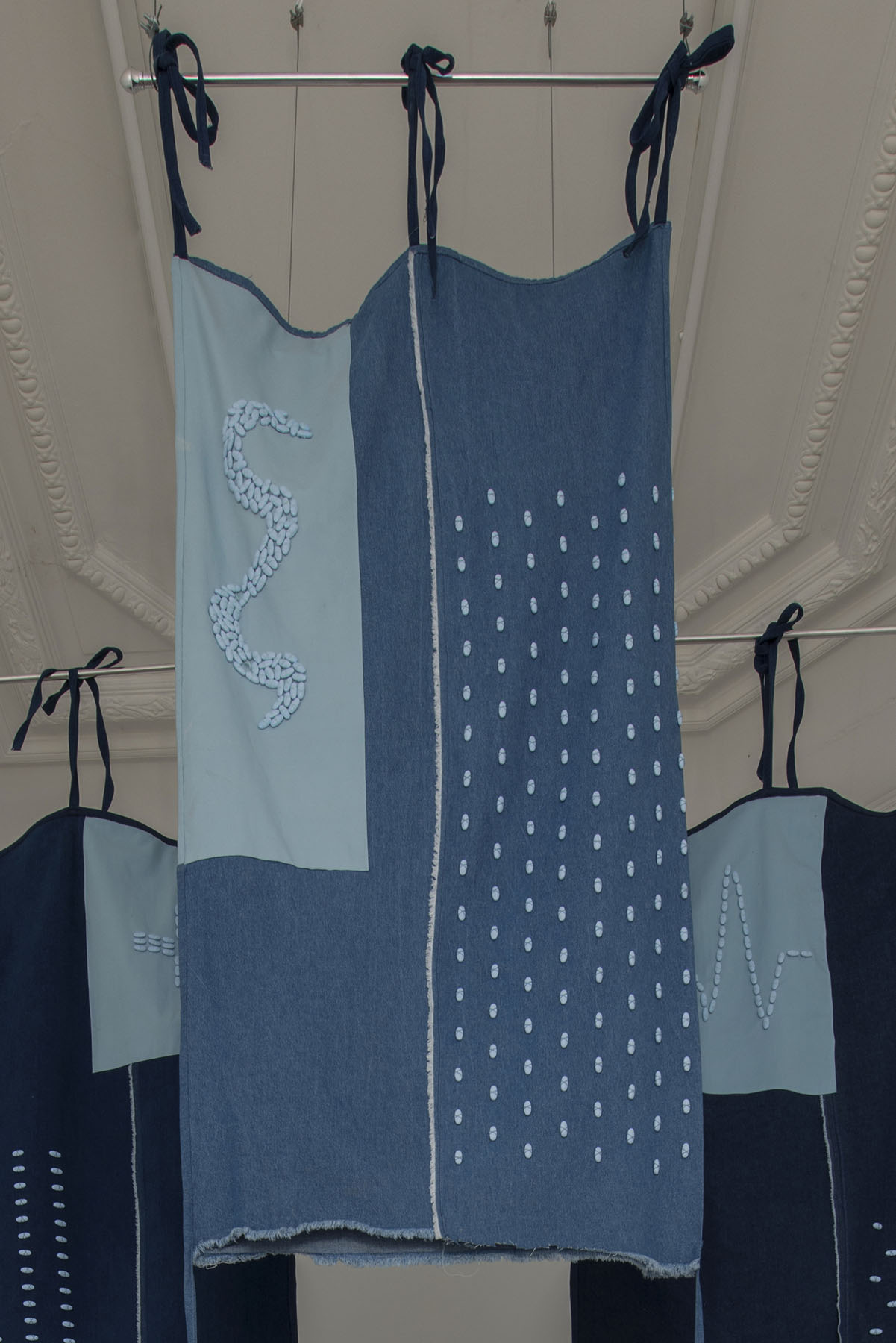
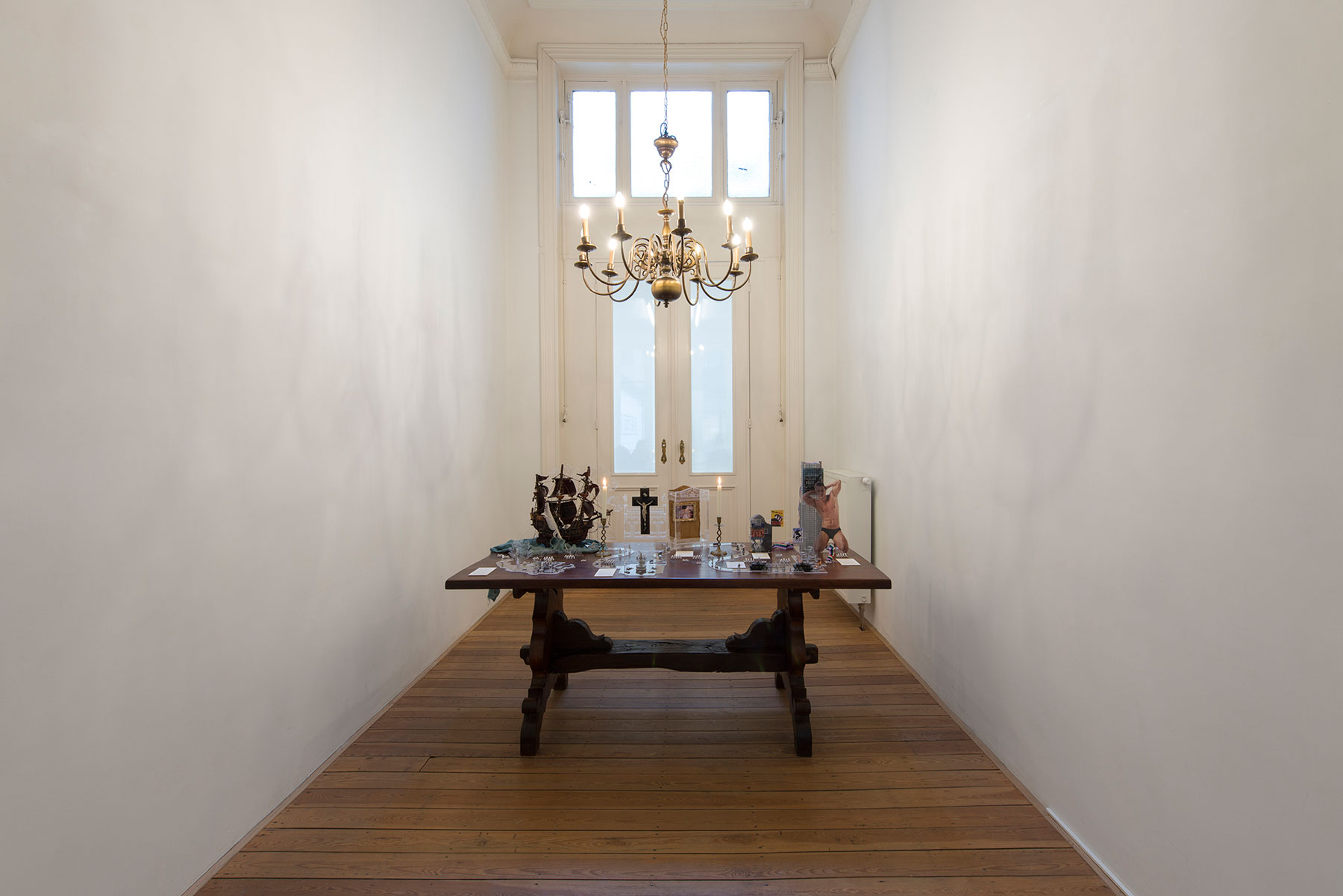
When the artist discovered he had contracted syphilis, he began to search for meaning beyond the simple steps in his own life that lead to his infection. Searching for a moralistic, deeper understanding, he began researching the history of the virus and traced it back to the conquest of the Americas and the ships of Christopher Columbus on which it is alleged the disease first arrived in Europe. This diorama is the artist’s very personal telling an impossibly broad history of a disease through his own eyes, tracing the steps of the syphilis virus from 1492 to his own infection in 2019 Berlin. The almost childlike simplicity of the presentation evokes a naive joy in the inclusion of himself in this expansive history, as if it were a fantasy or a fairy tale. It is a call from the artist to connecting beyond the self and positioning oneself in larger context, finding a perverse pleasure presenting his own disease as a cultural artefact.
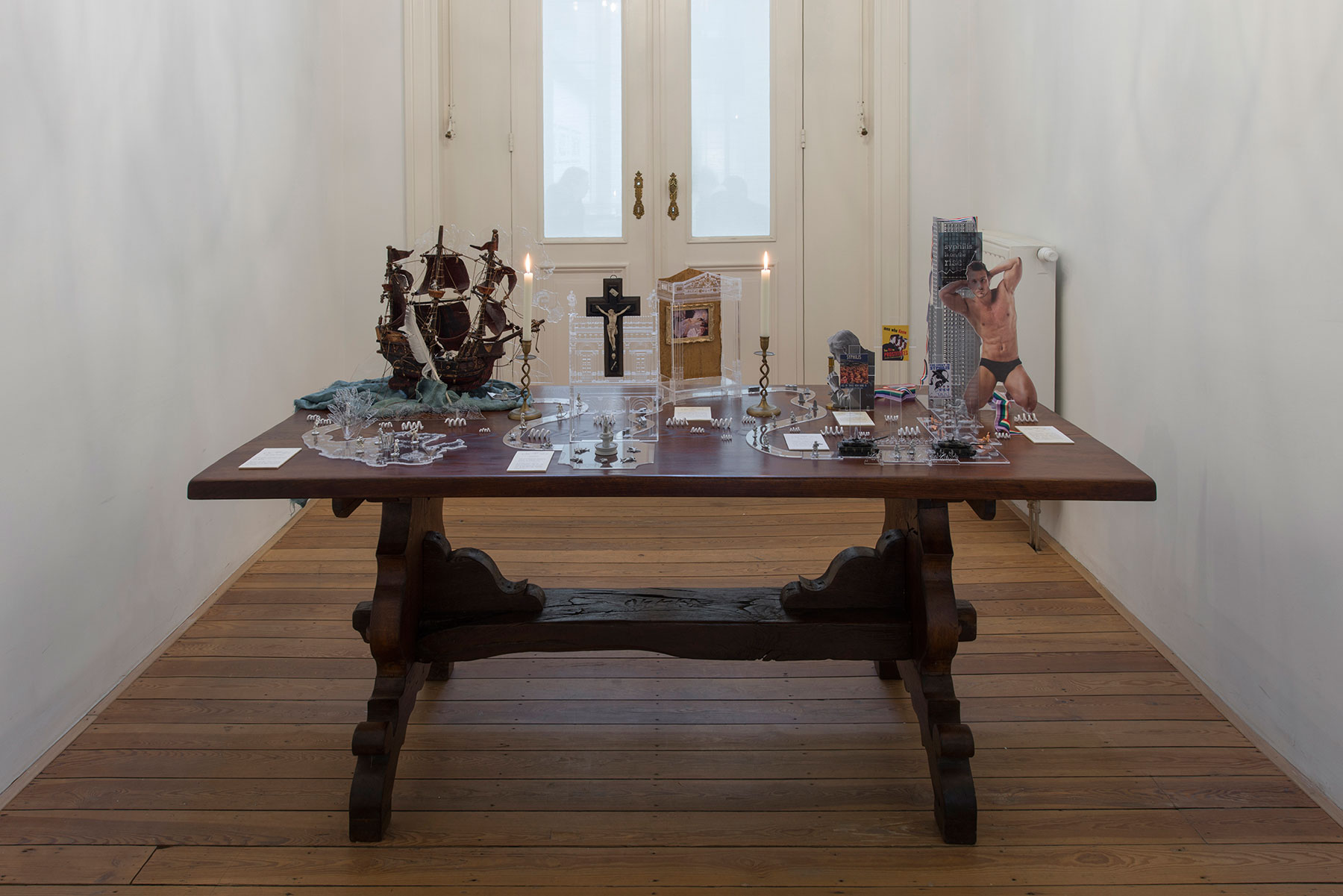
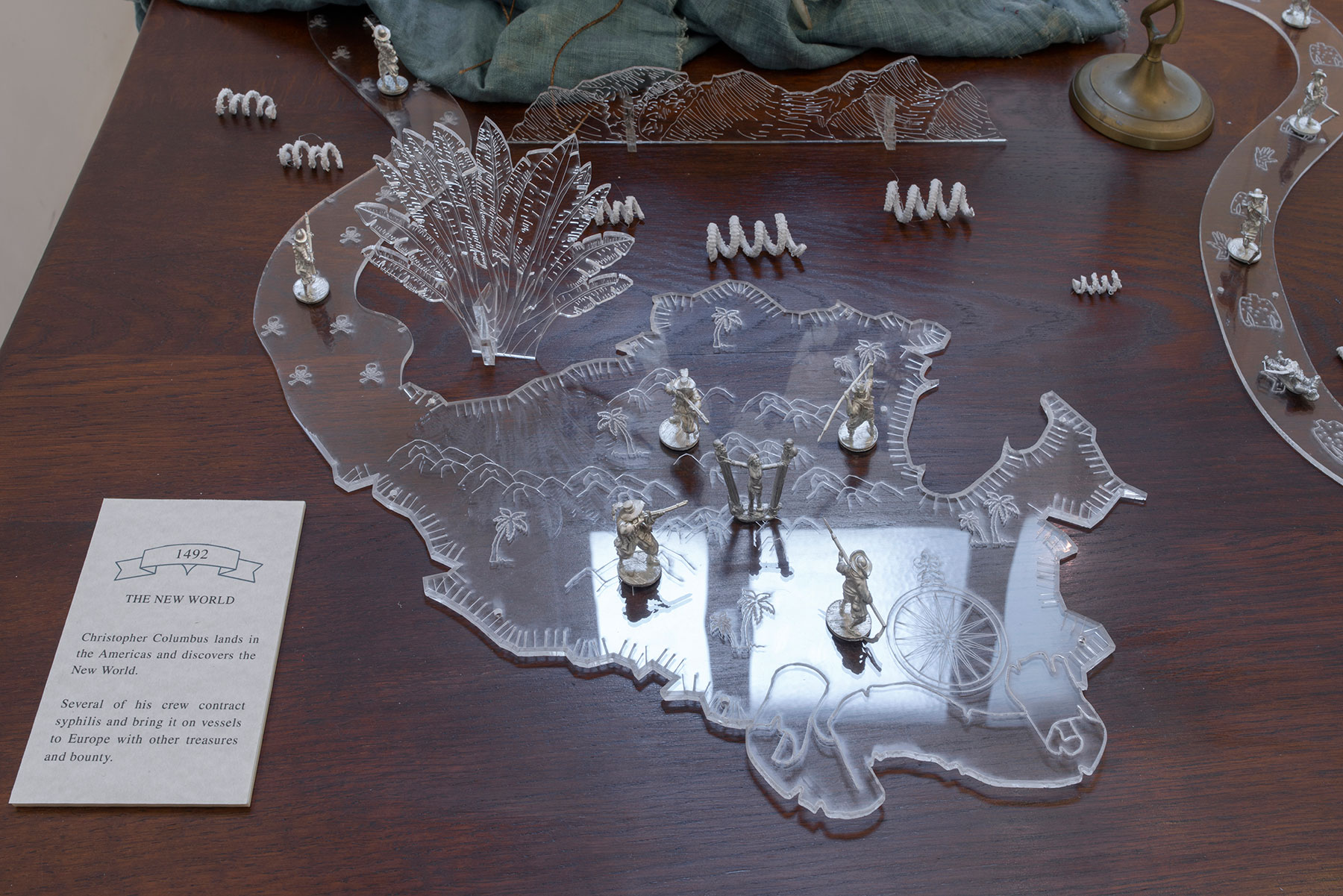
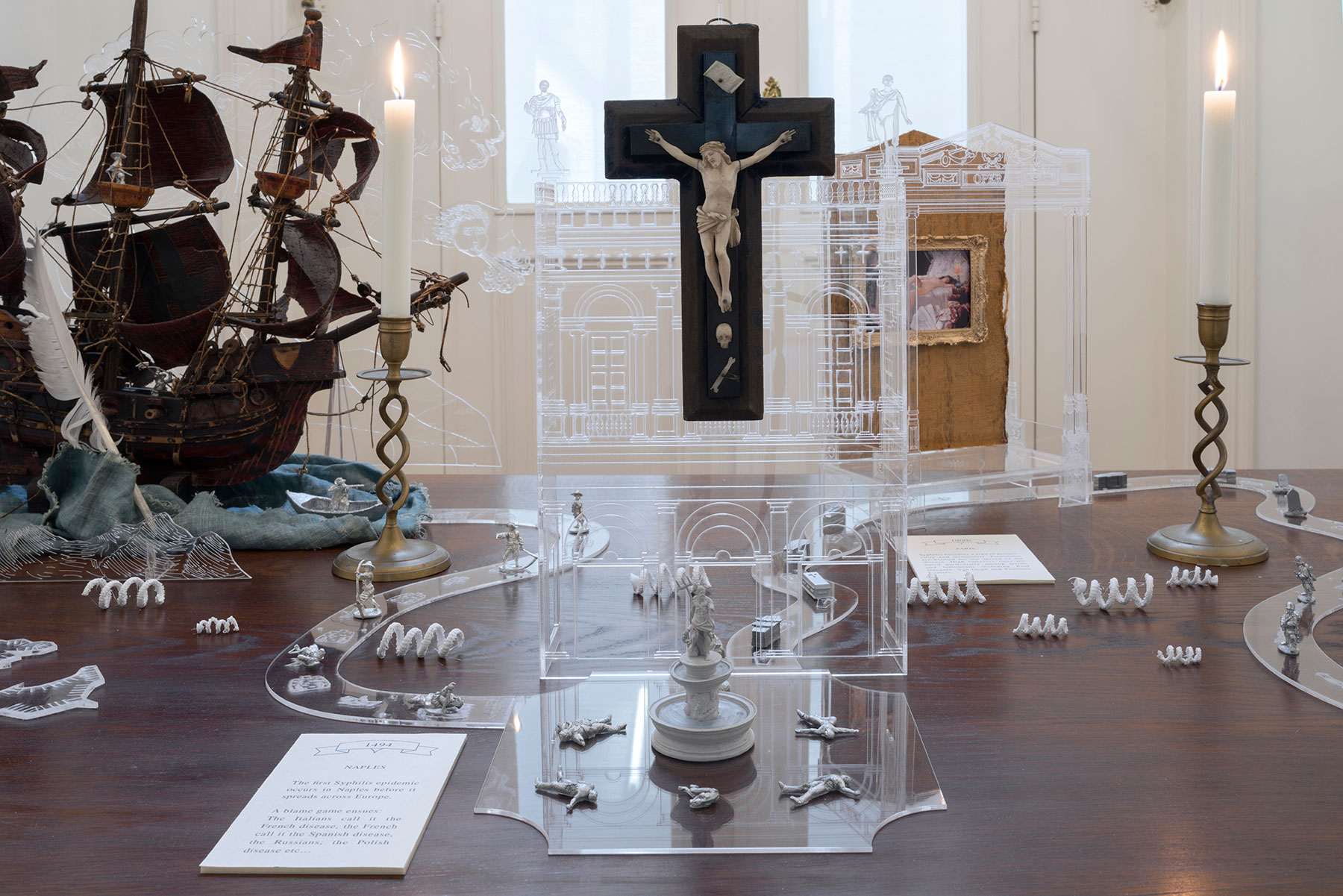
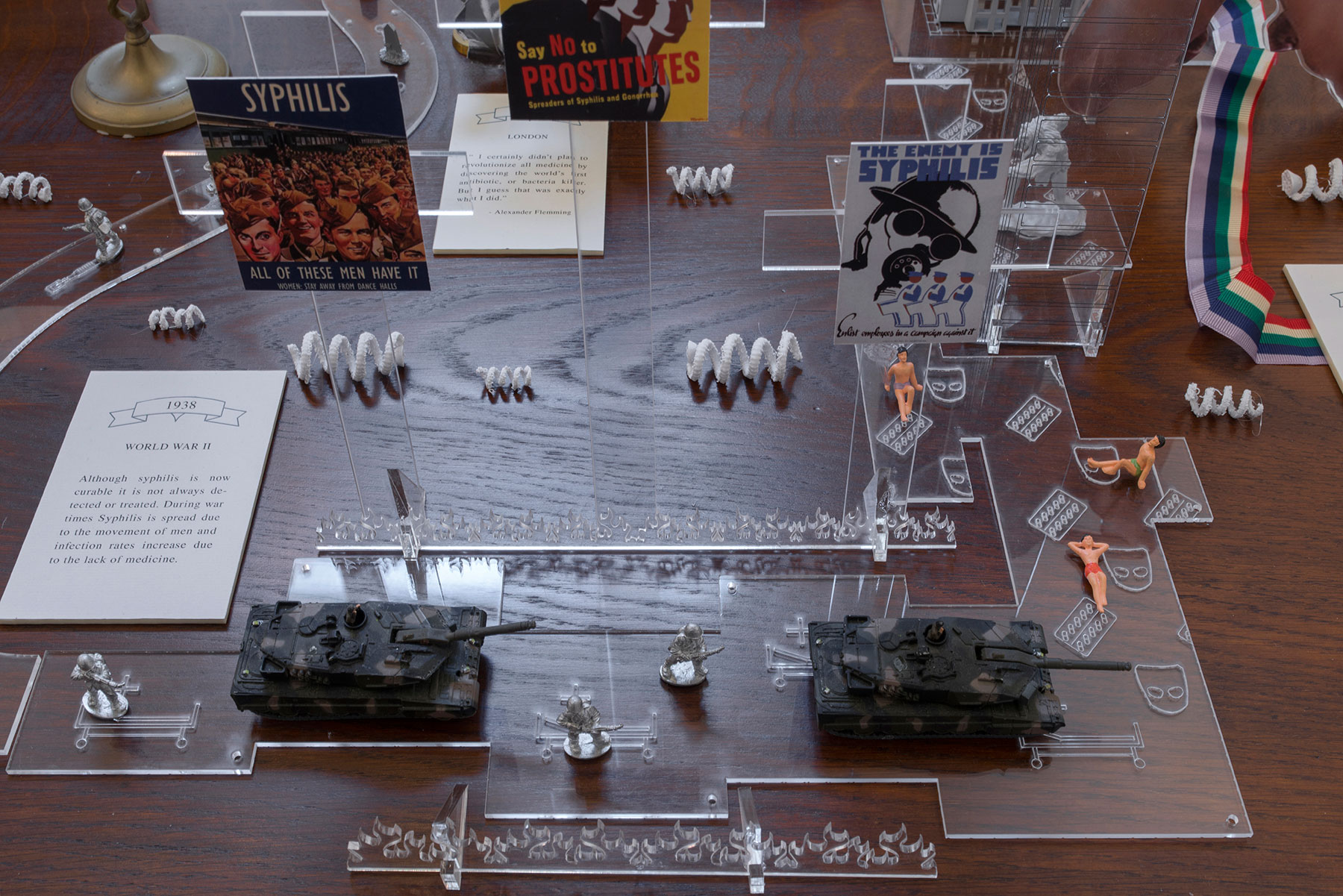
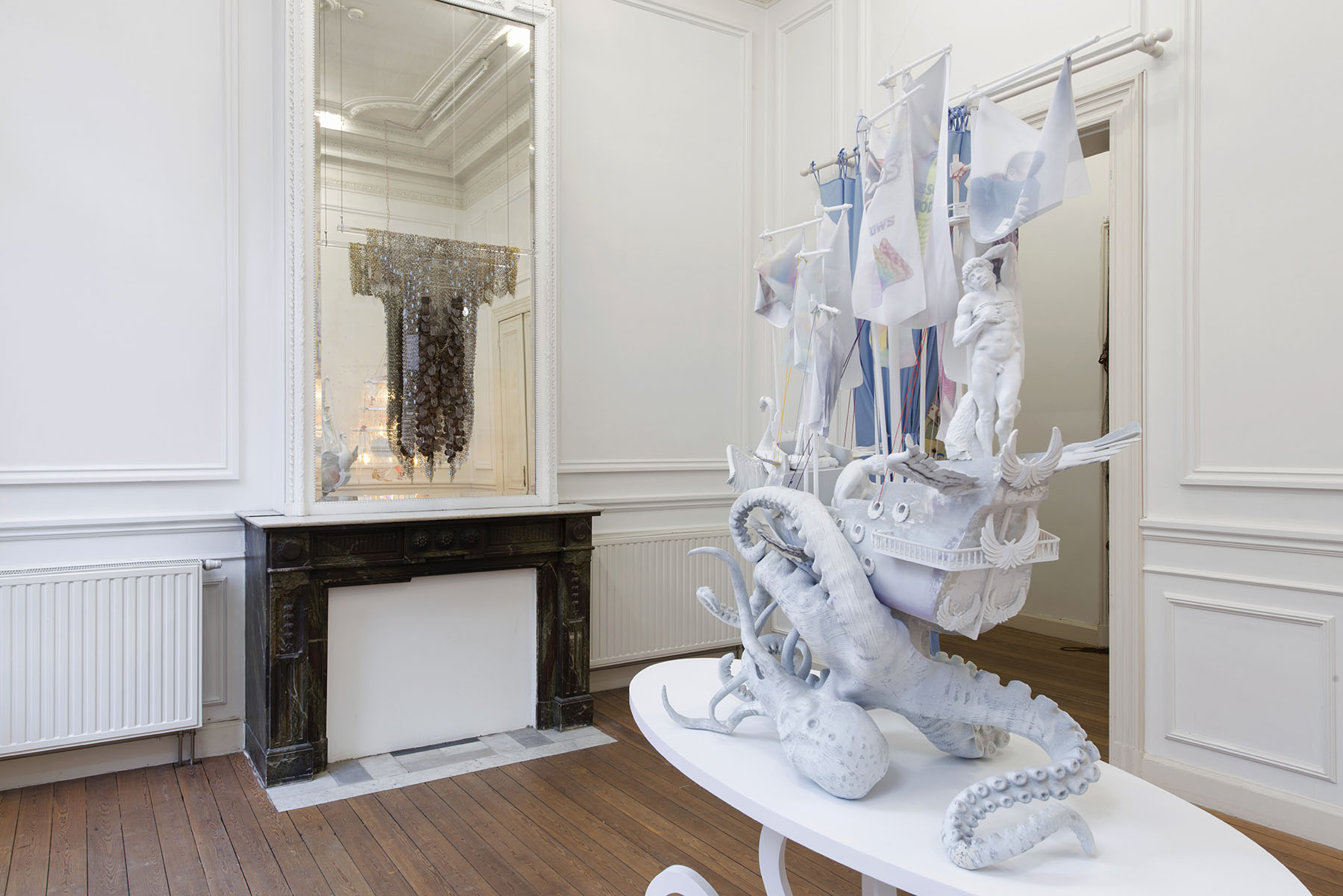
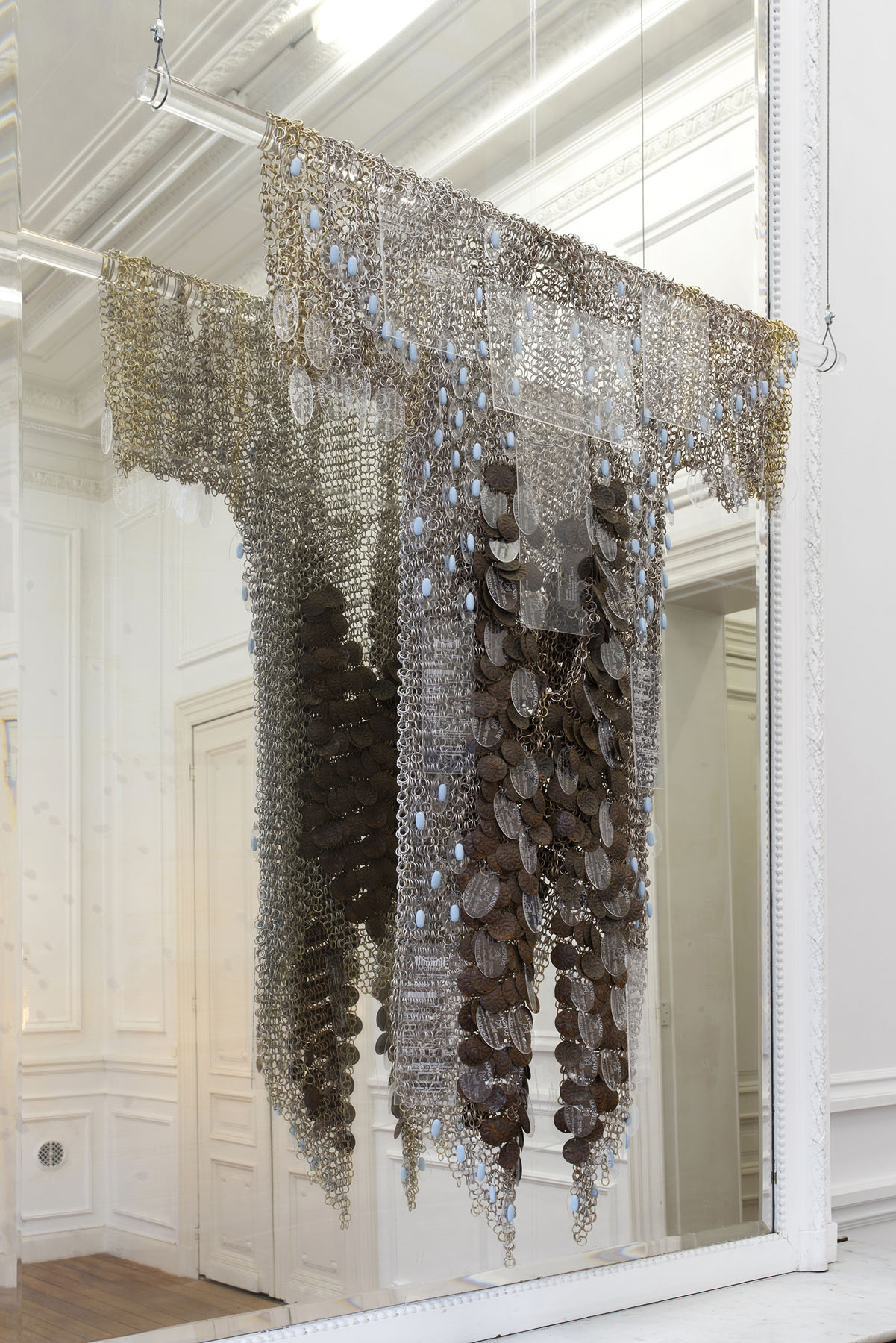
Prep is an antiretroviral drug used frequently in the gay community as a medicine preventing the infection of HIV. Together with receipts, medical letters and pharmacy stamps, these pills form an ethereal coat of armour to protect the body from viral invasion on its inhabitant’s sexual conquests.
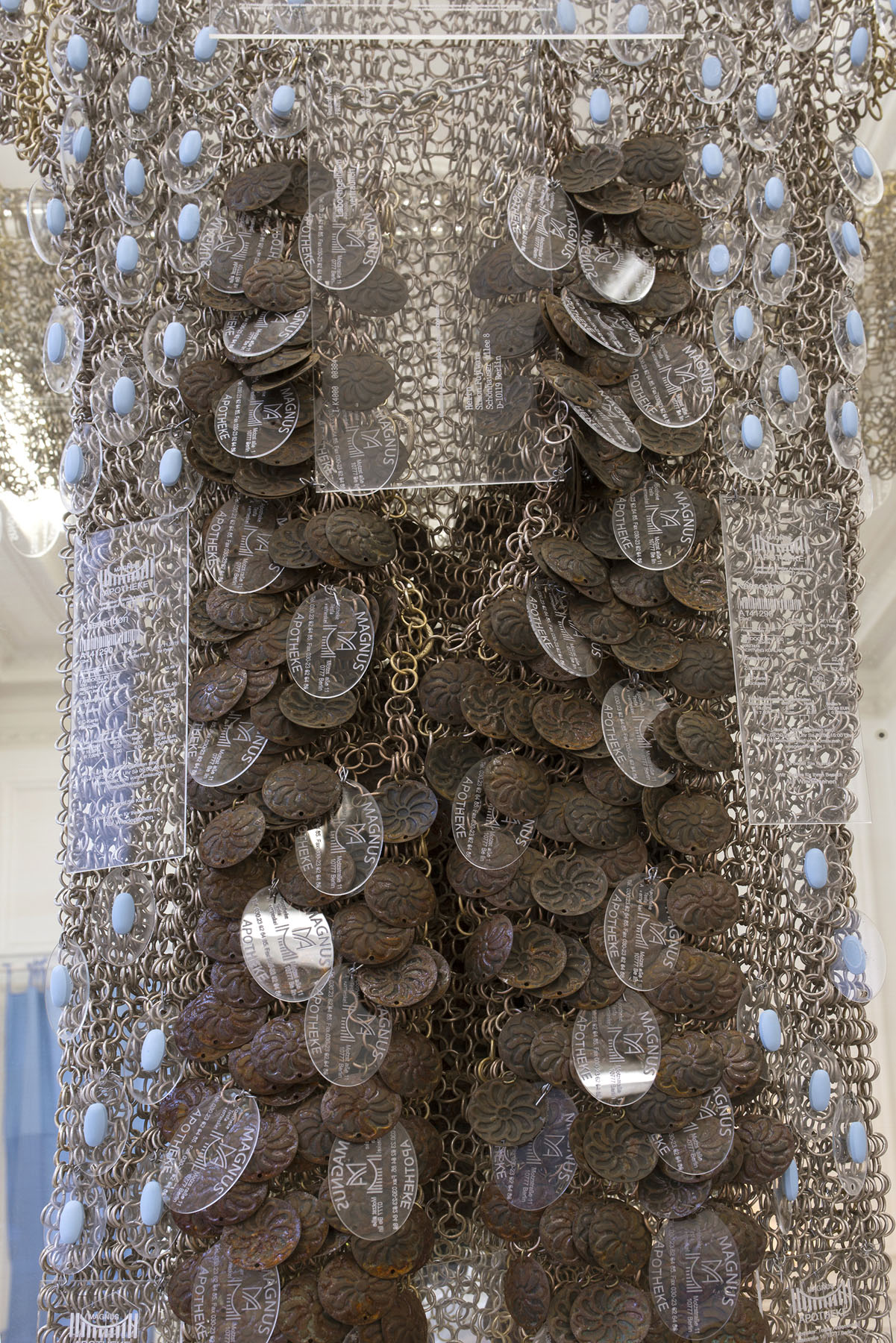
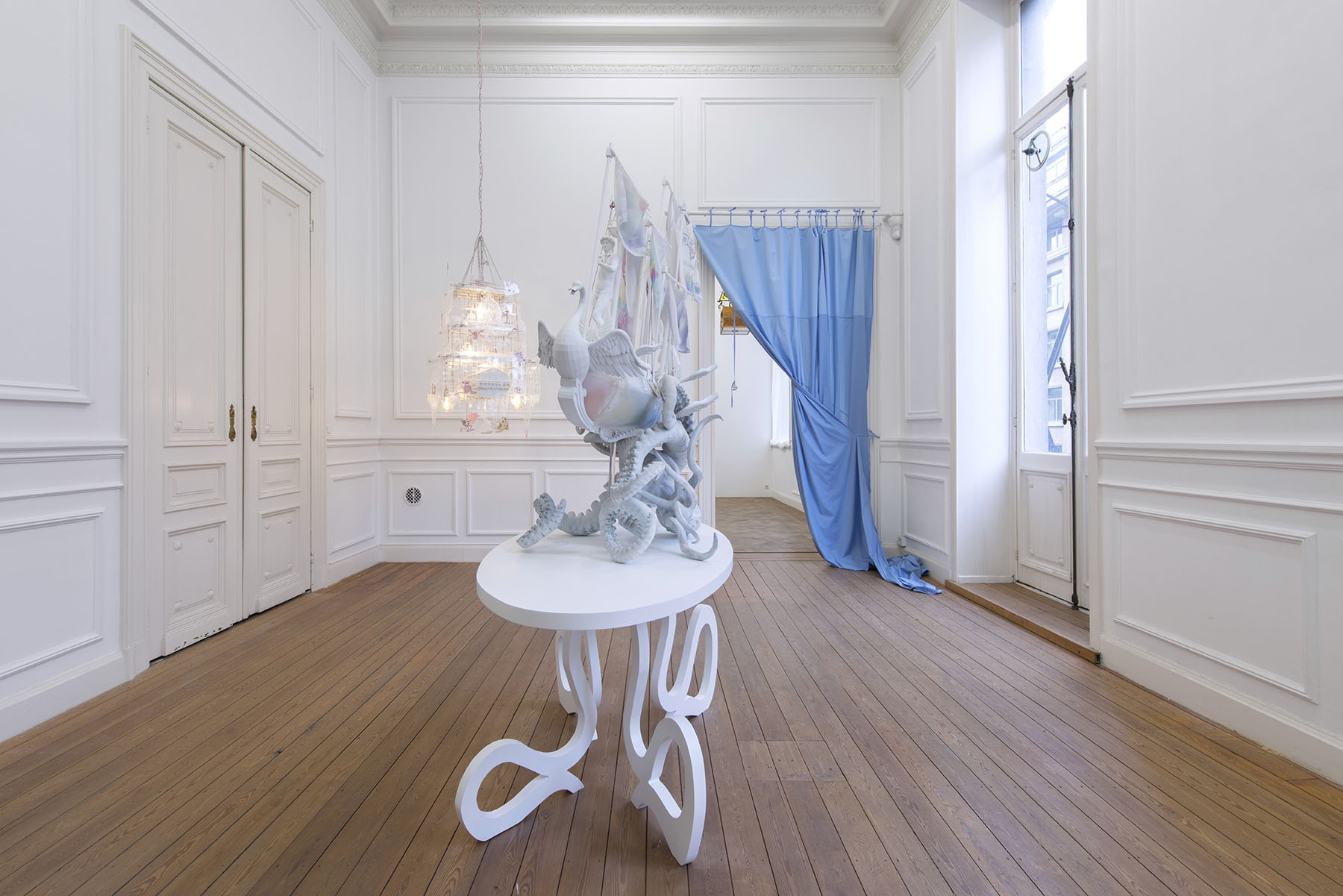
In this work, the artist explores his relationship with capitalism and personal liberation evoking a fairy tale or fantasy. A giant octopus appears to be pulling down a ship that wants to fly, adorned to hysterical levels with references to the homoerotic history. The sails show recent advertisements from companies capitalizing on the new market of positivity surrounding sexual diversity. The ship appears to be headed to an uncertain future.
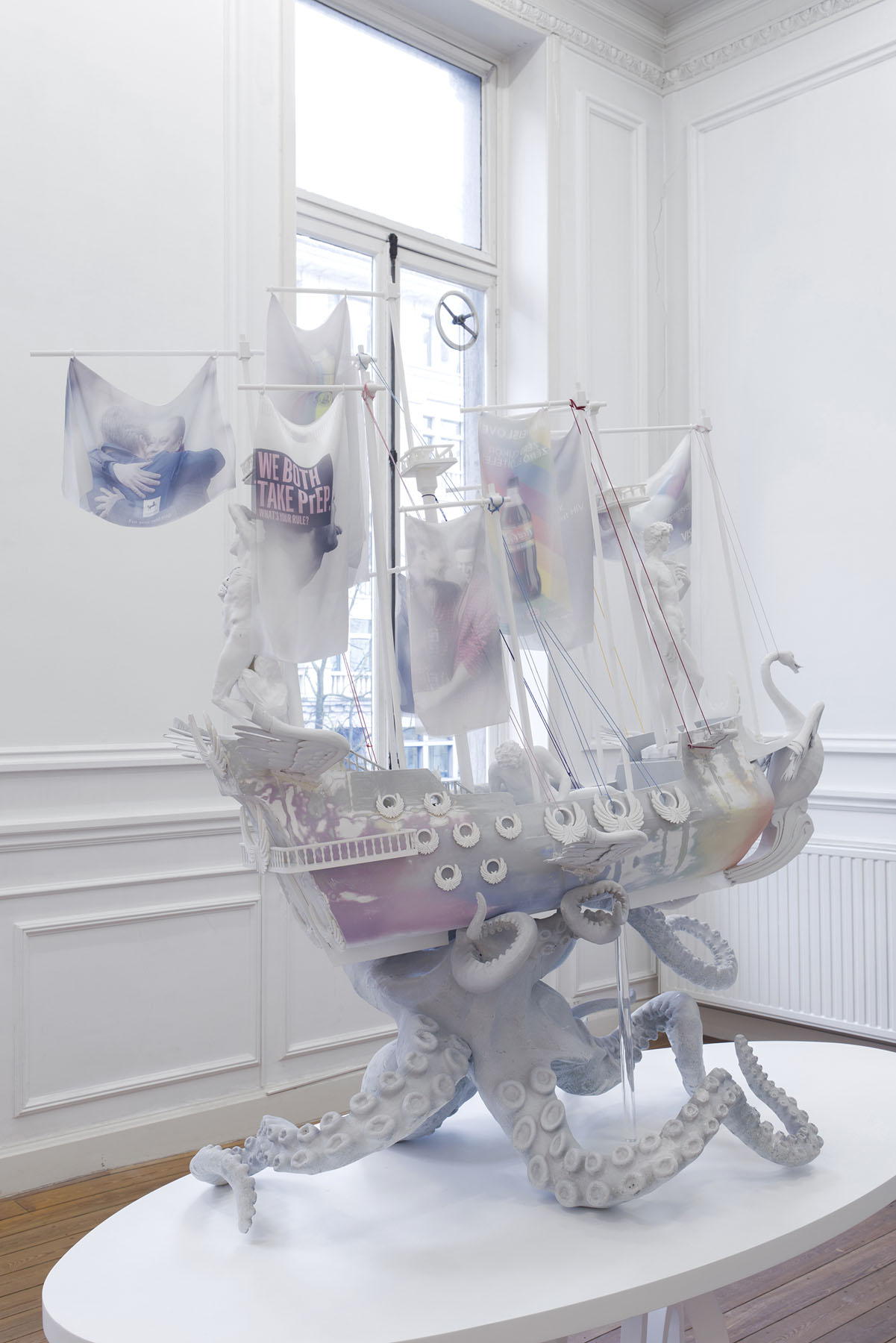
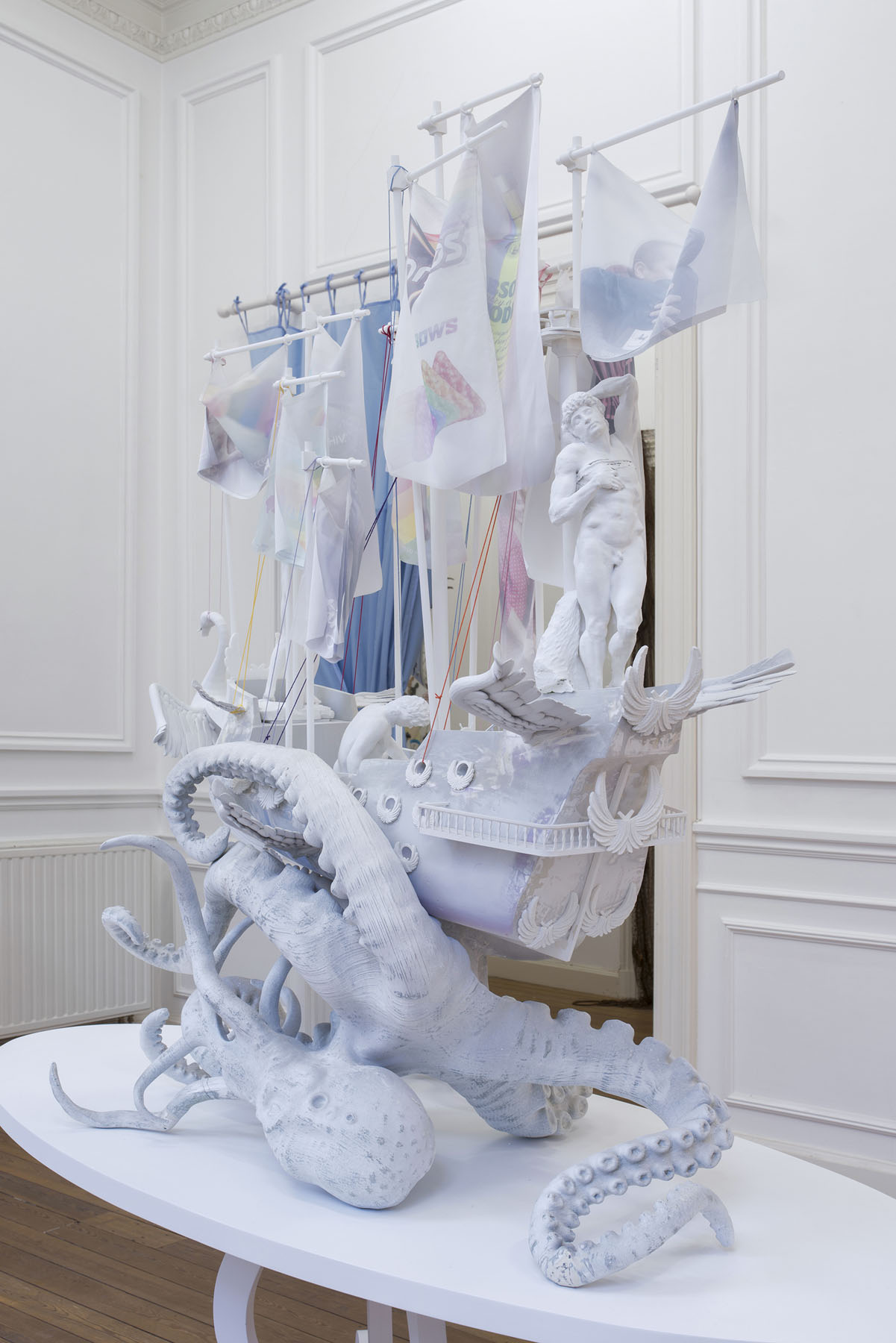
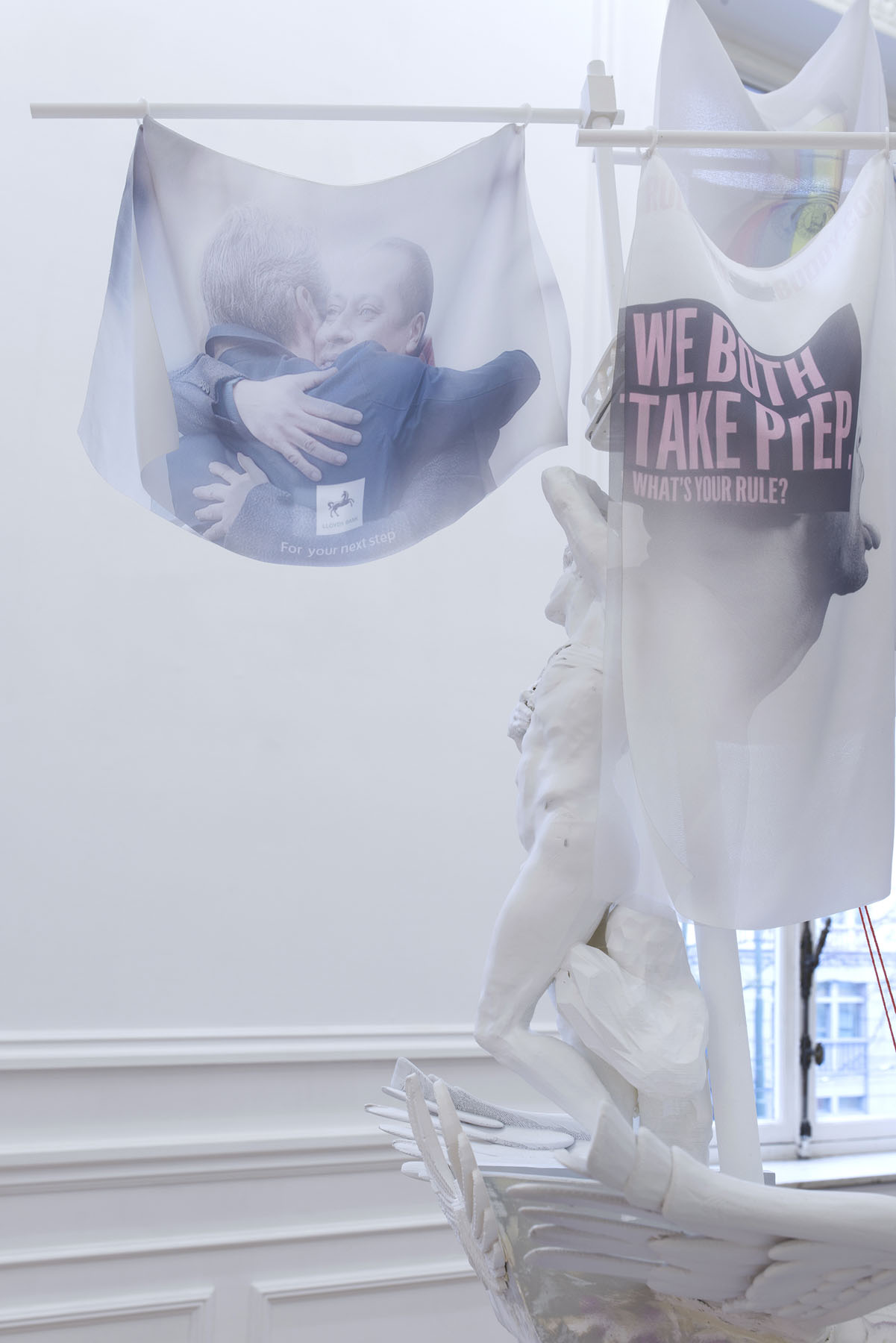
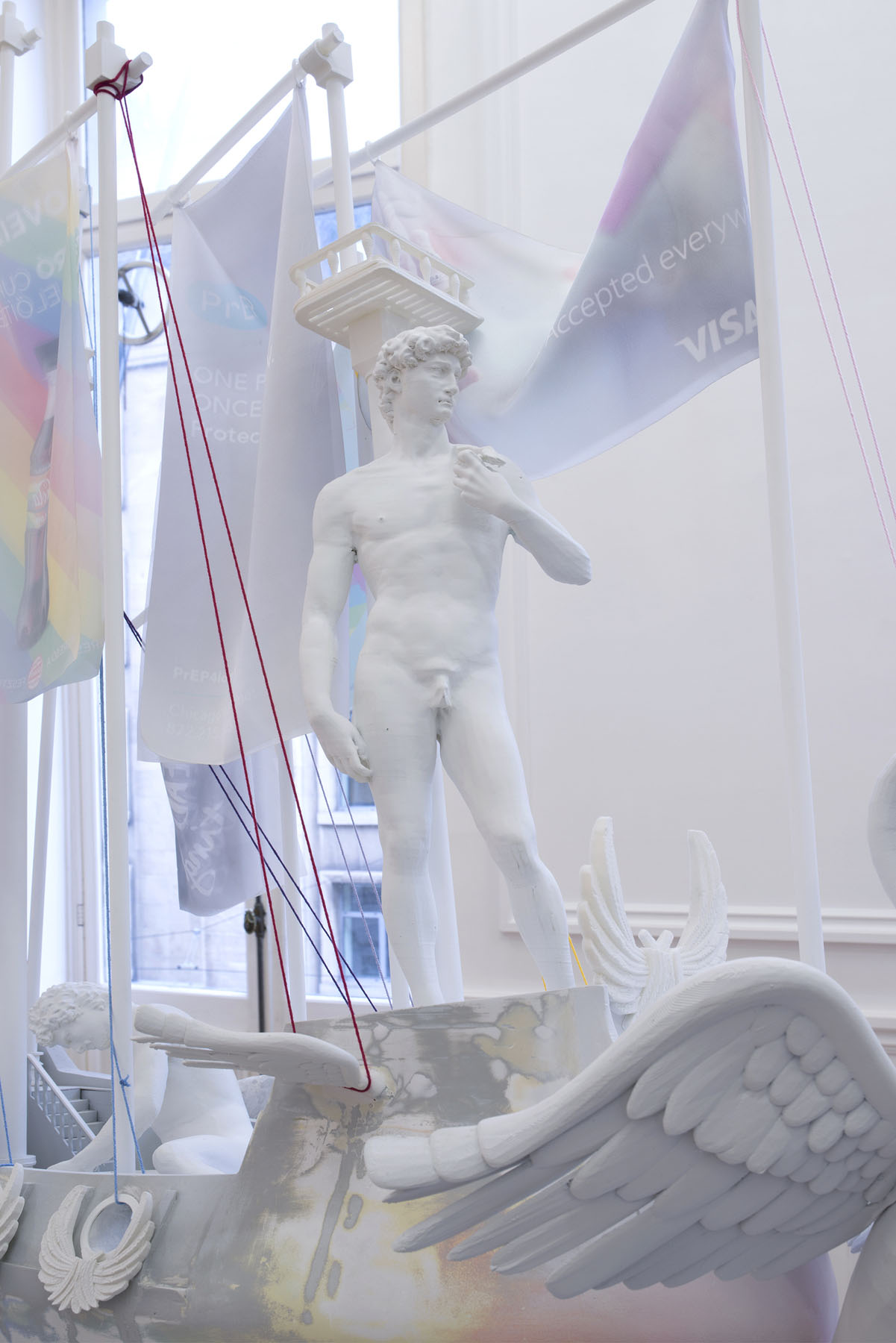
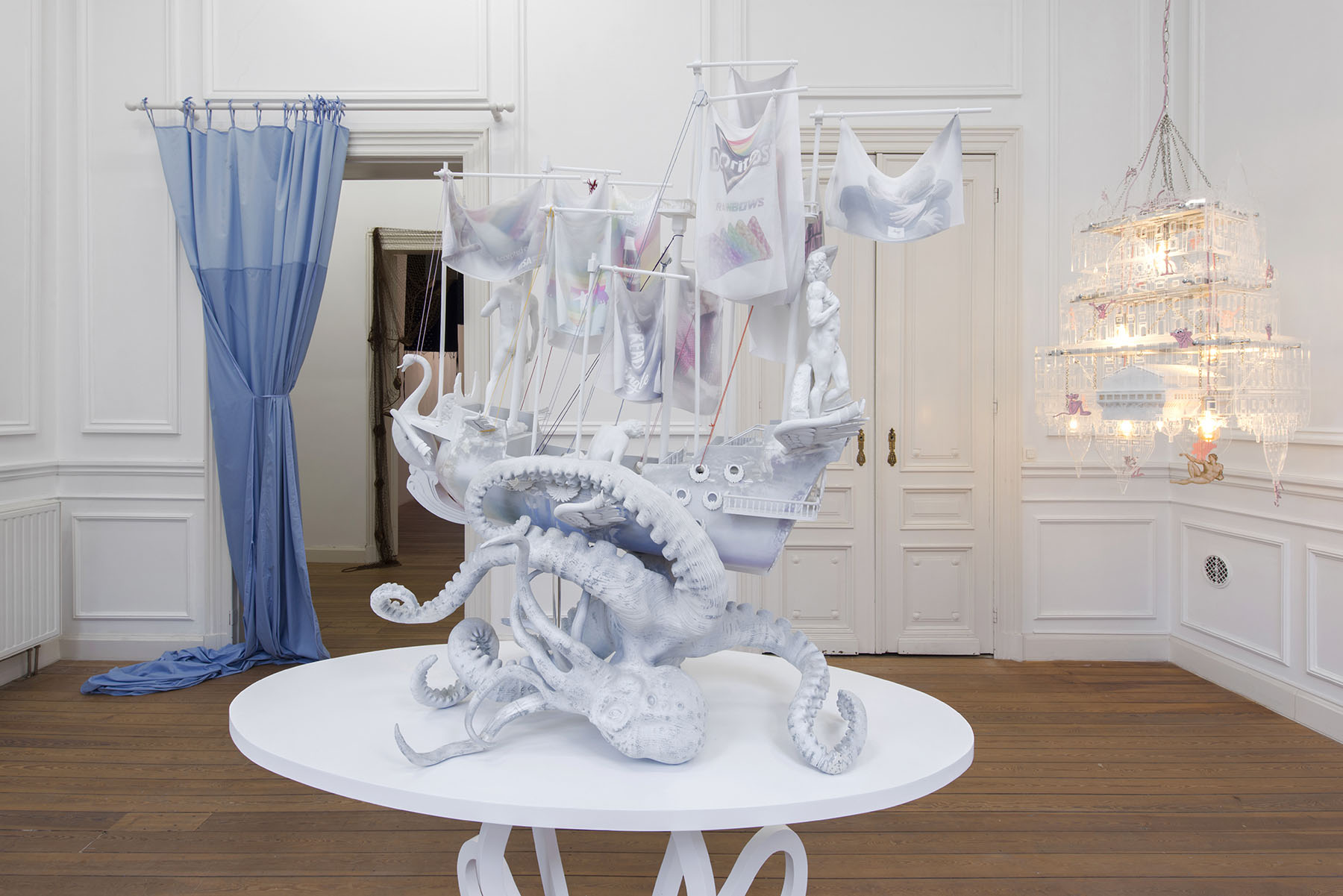
In this work, Simon Fujiwara makes sly references to the current condition of political and moral world leaders. Pink panther – a subversive figure sometimes associated with the gay community – appears to have infiltrated the catholic holy inner sanctum, the Vatican. He plays havoc, popping in and out of windows, hanging from the ceiling of the Sistine chapel. A cartoon figure, a puppet with no voice and a desire to only satisfy itself seems to be running the show now.
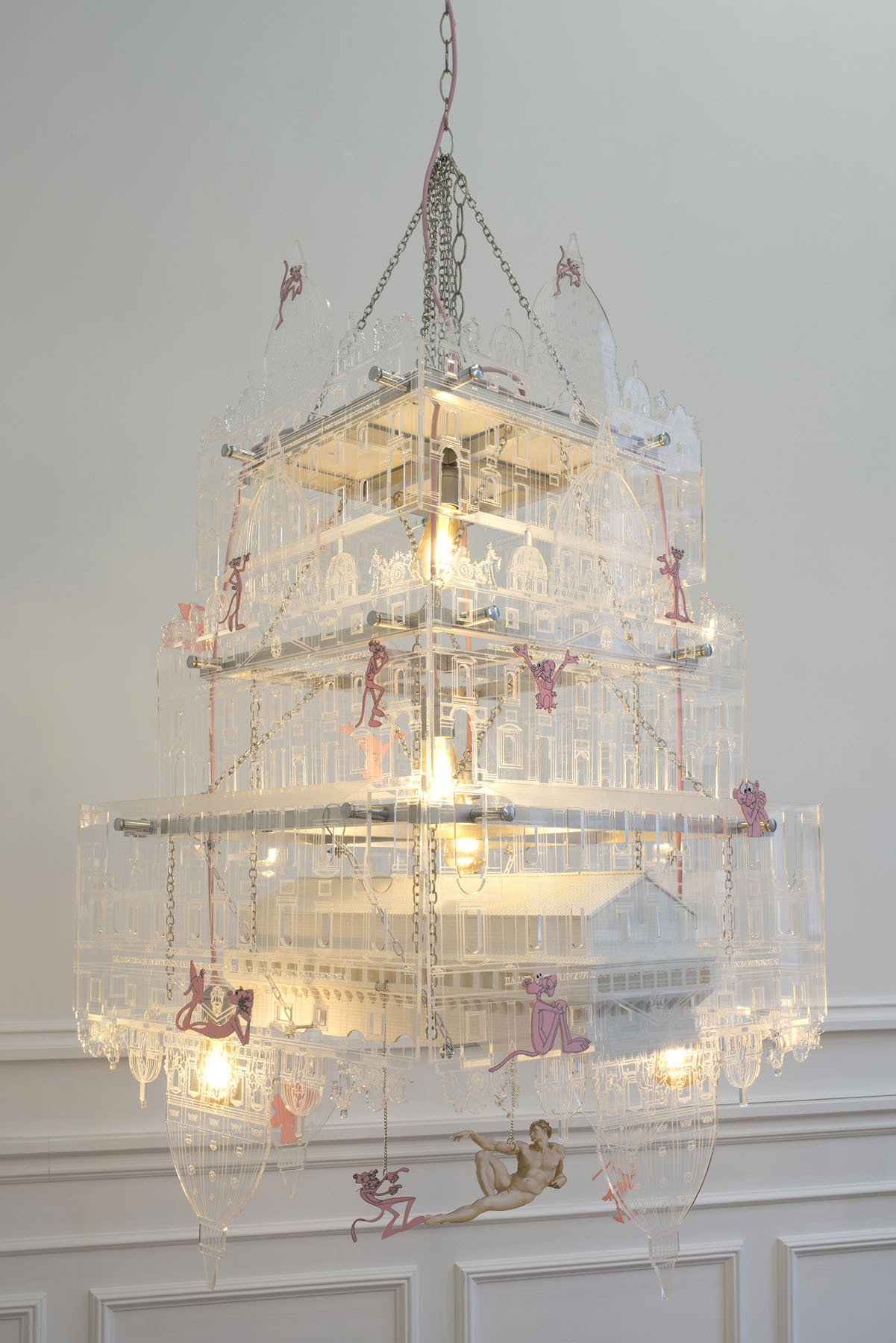
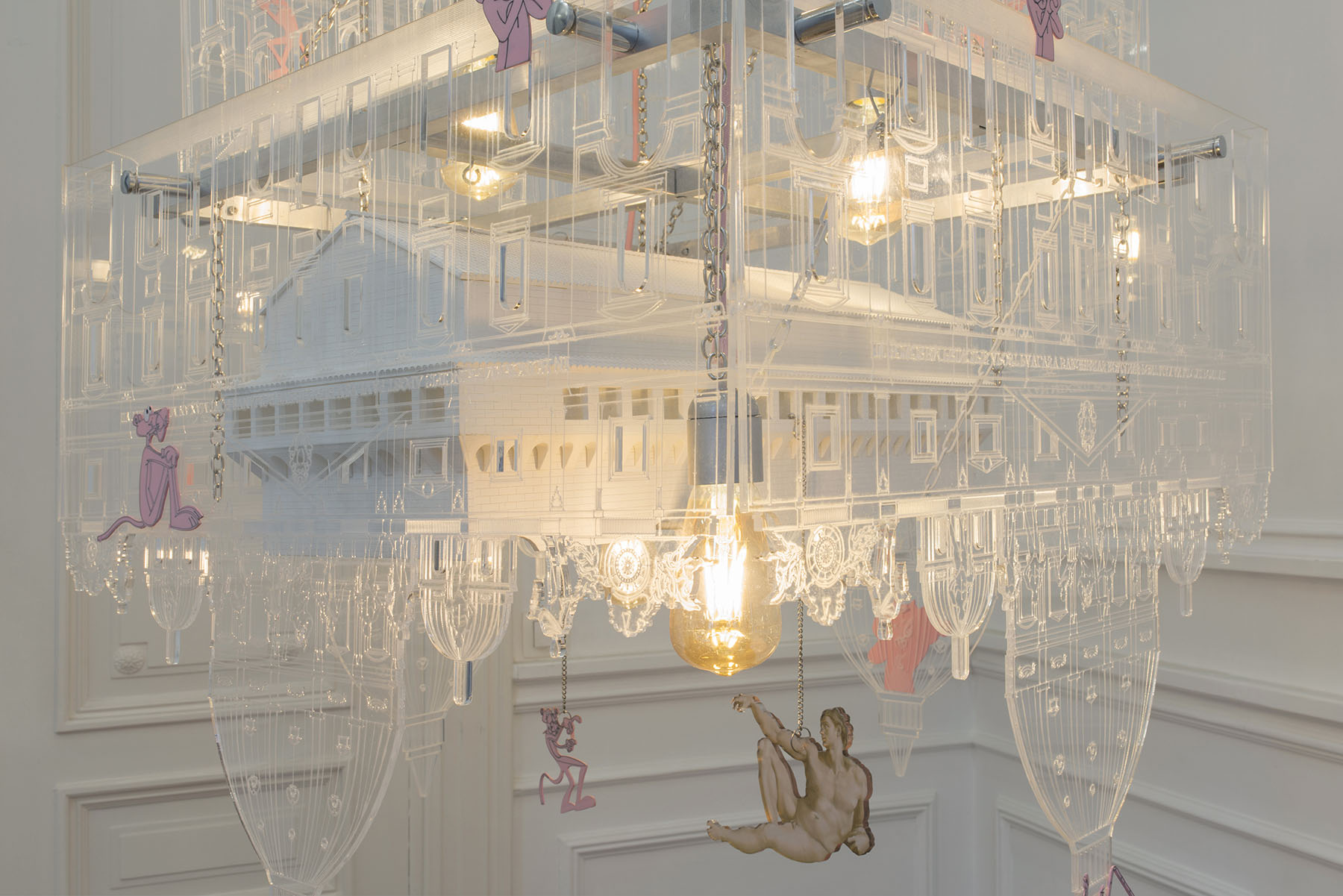
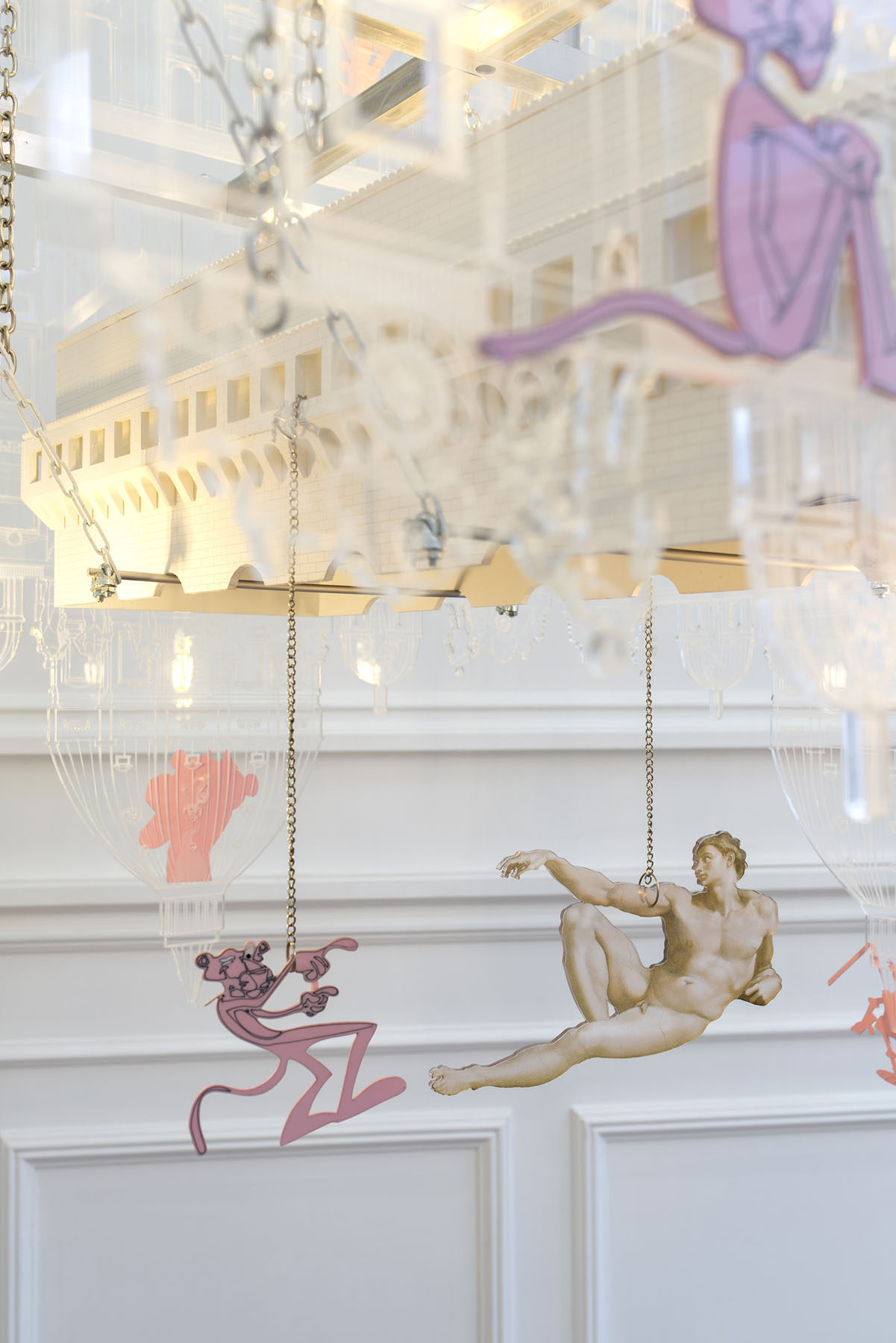
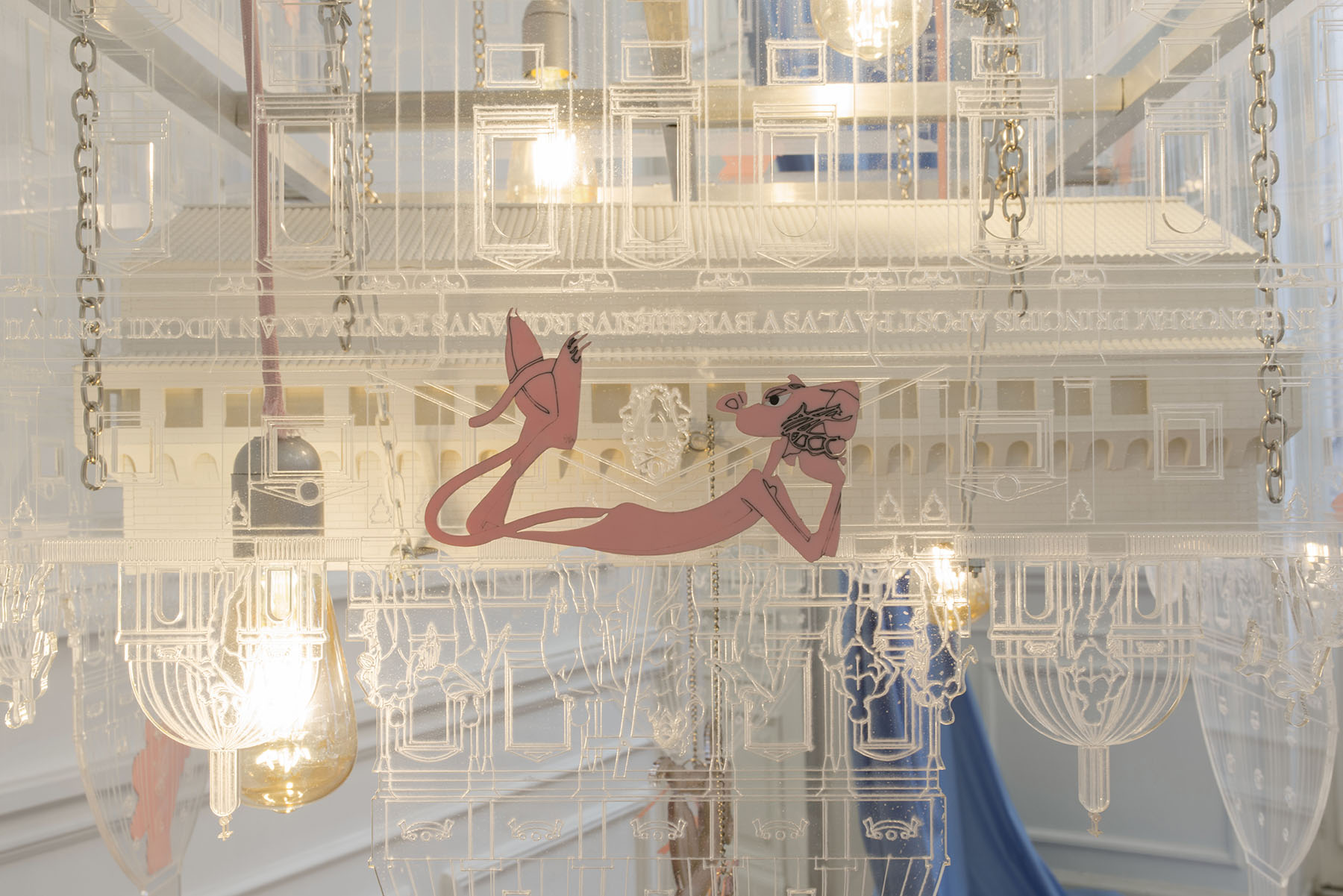
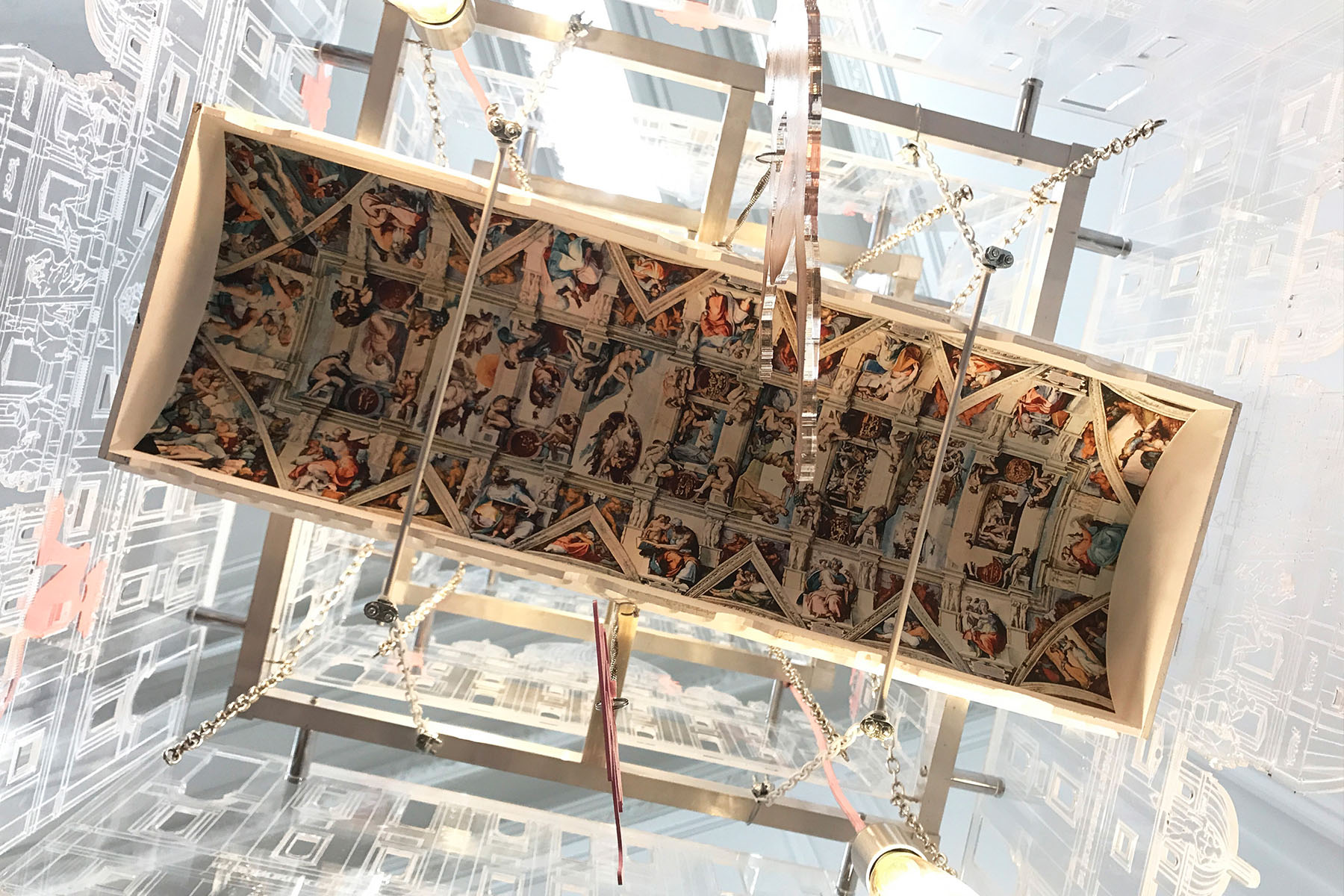
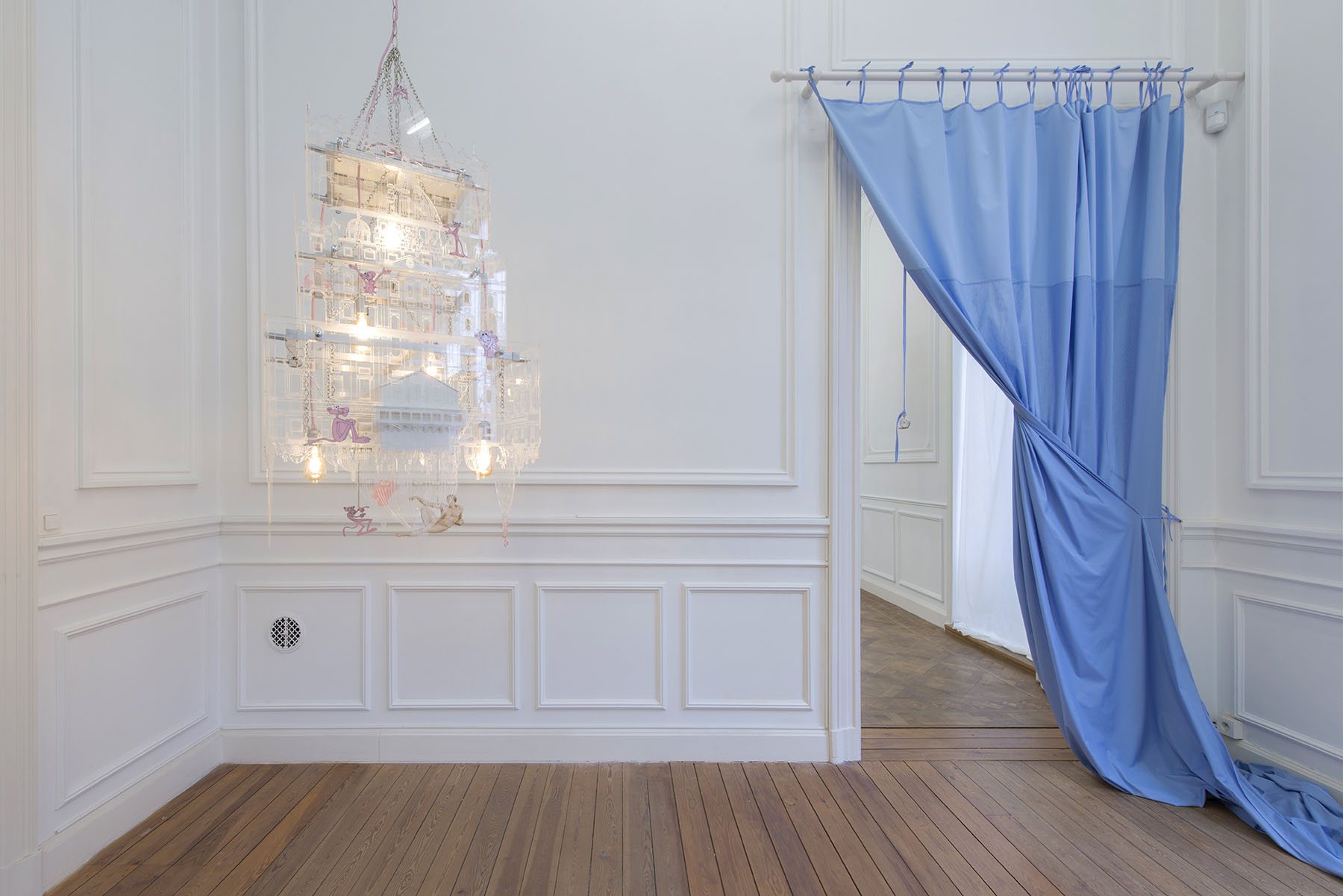
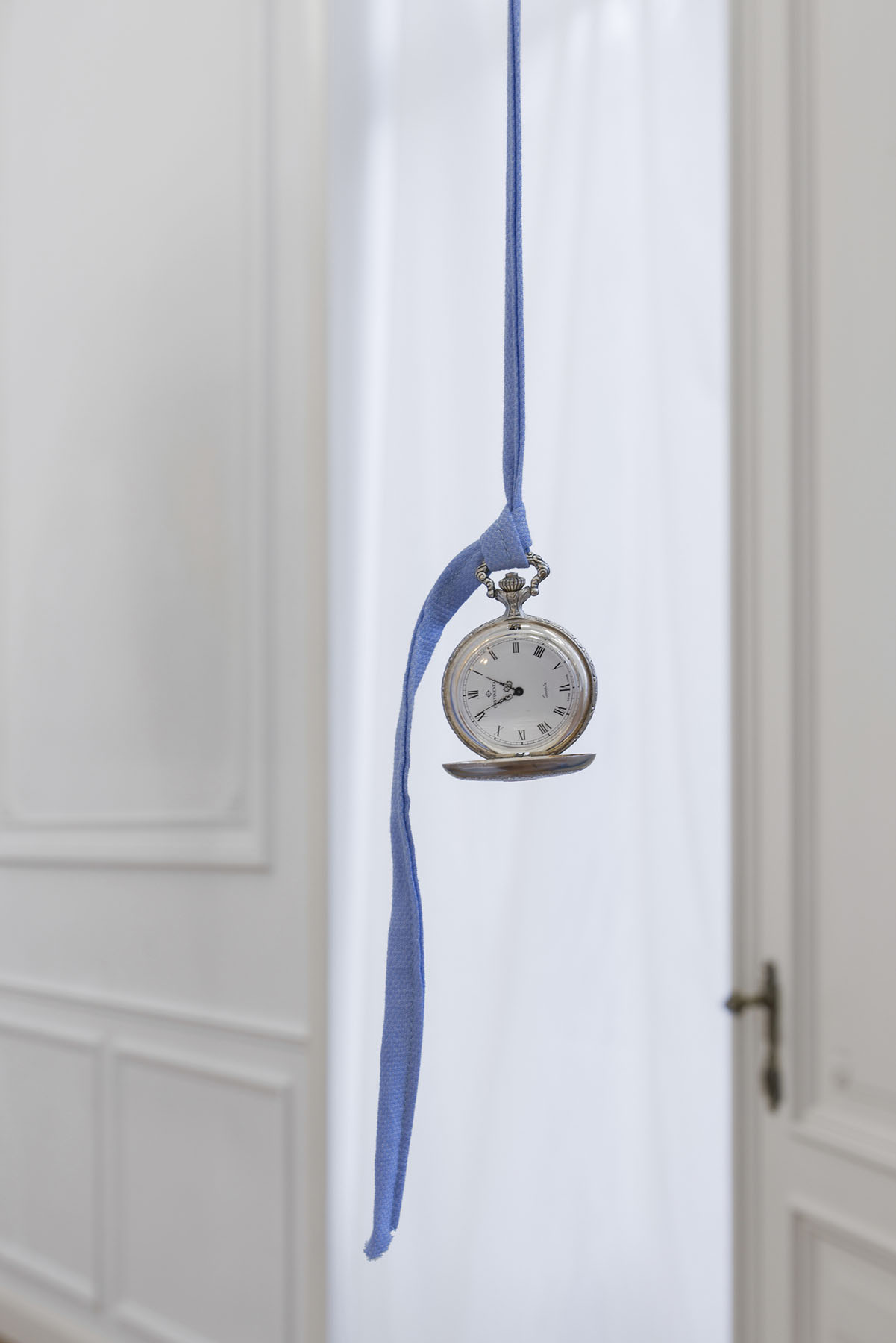
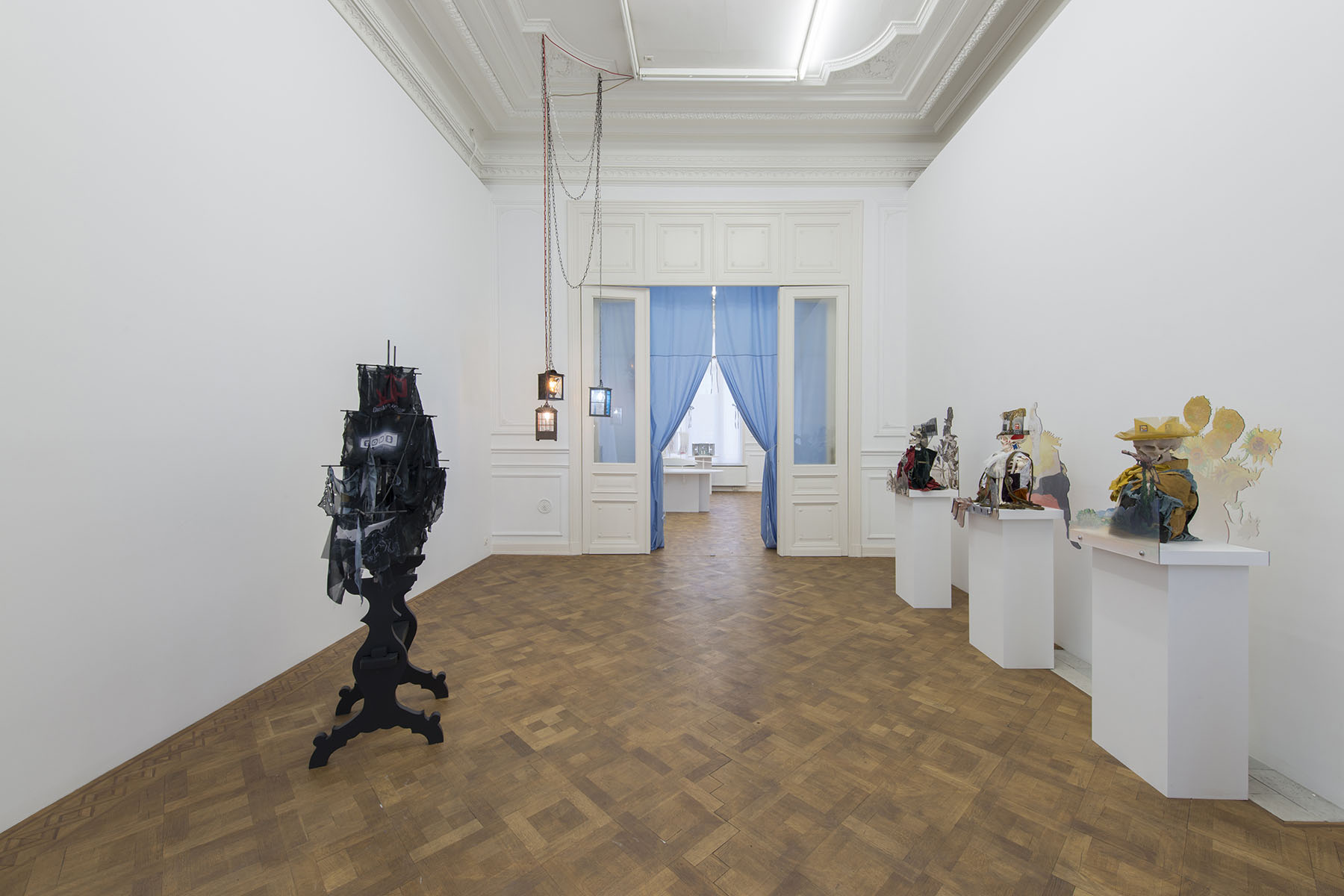
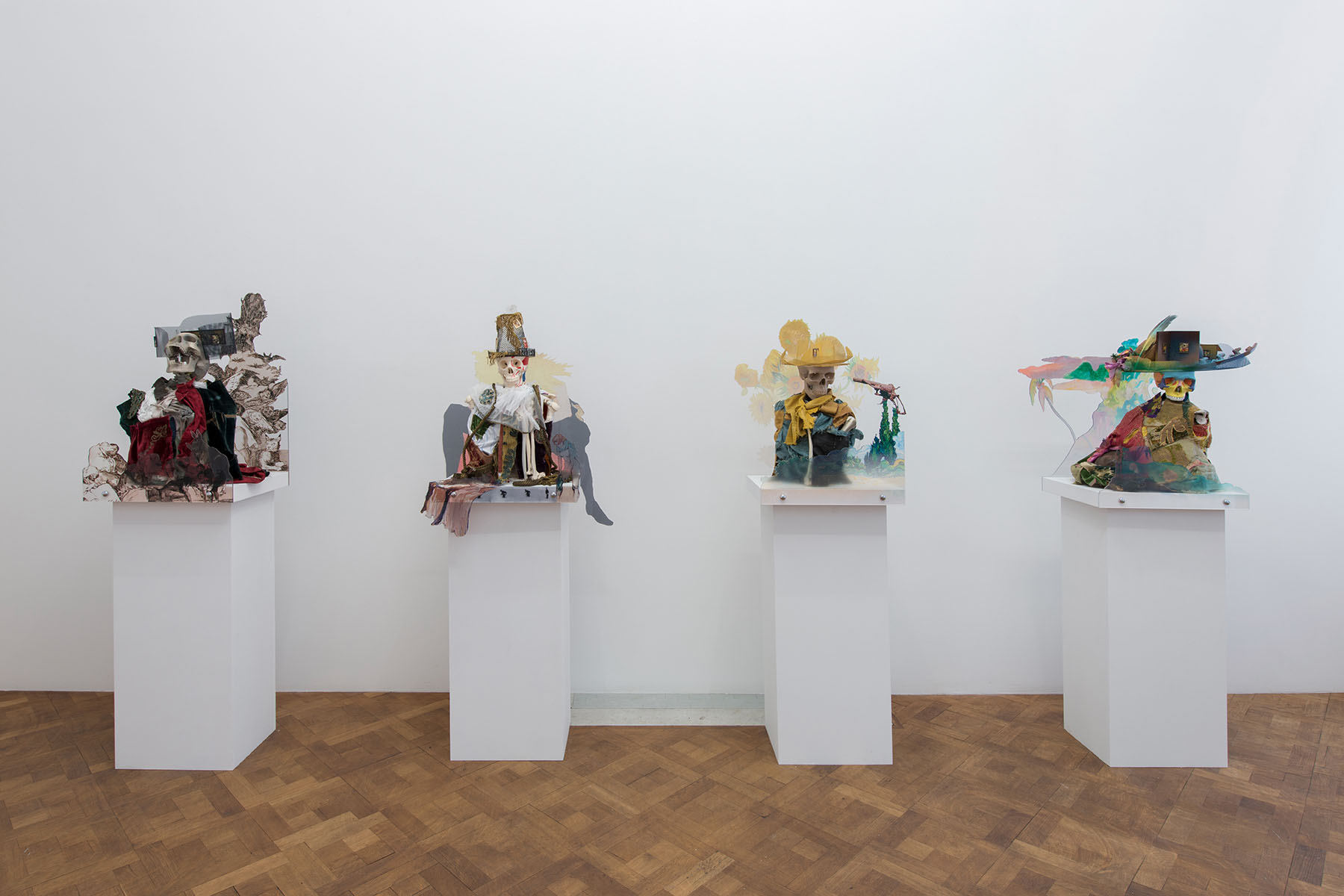
‘Syphilic Comrades’
During the artist’s own period of infection and fevers associated with syphilis he began to research the history of the disease only to find a broad legacy of great artist heroes of his who had all suffered from the same disease. These portraits of artists are on the one hand tributes to his “comrades” but in their hysterical almost architectural forms also become mausoleums of themselves. The use of their own masterpieces within the framing of their bodies presents them as a series of mad clowns, ready to be consumed for our entertainment relating to the personal fears of Fujiwara associated with producing work in the age of social media and entertainment.
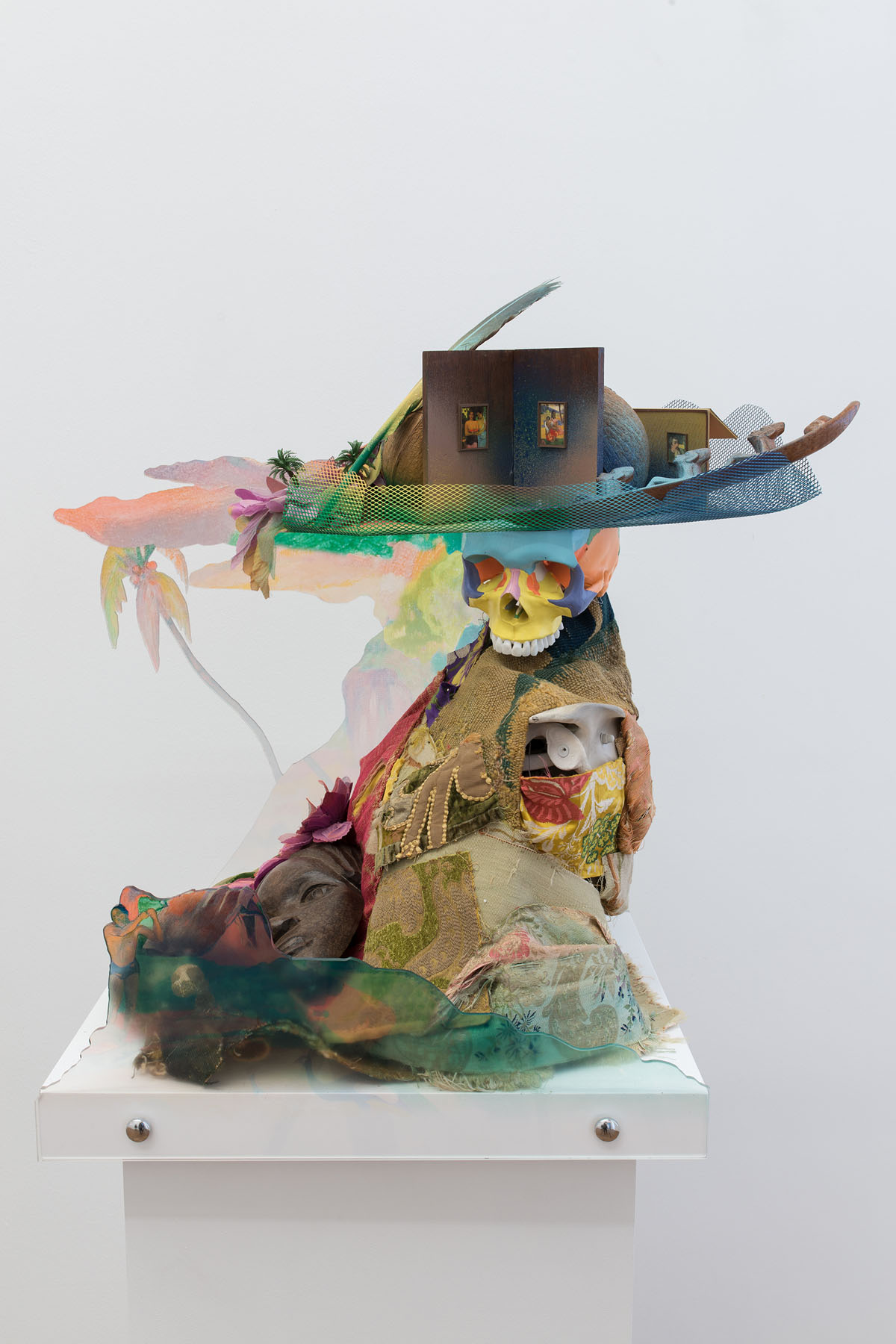
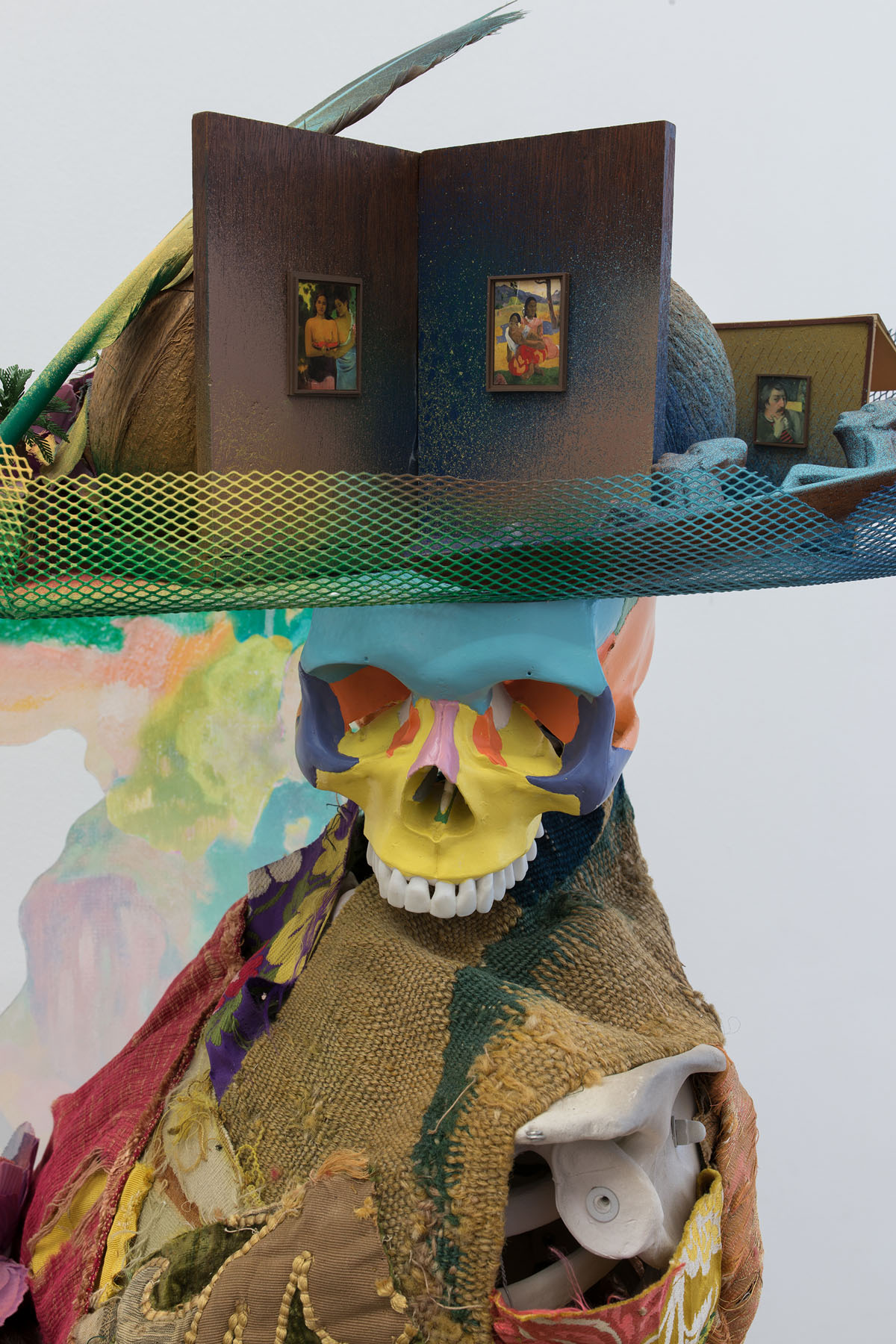
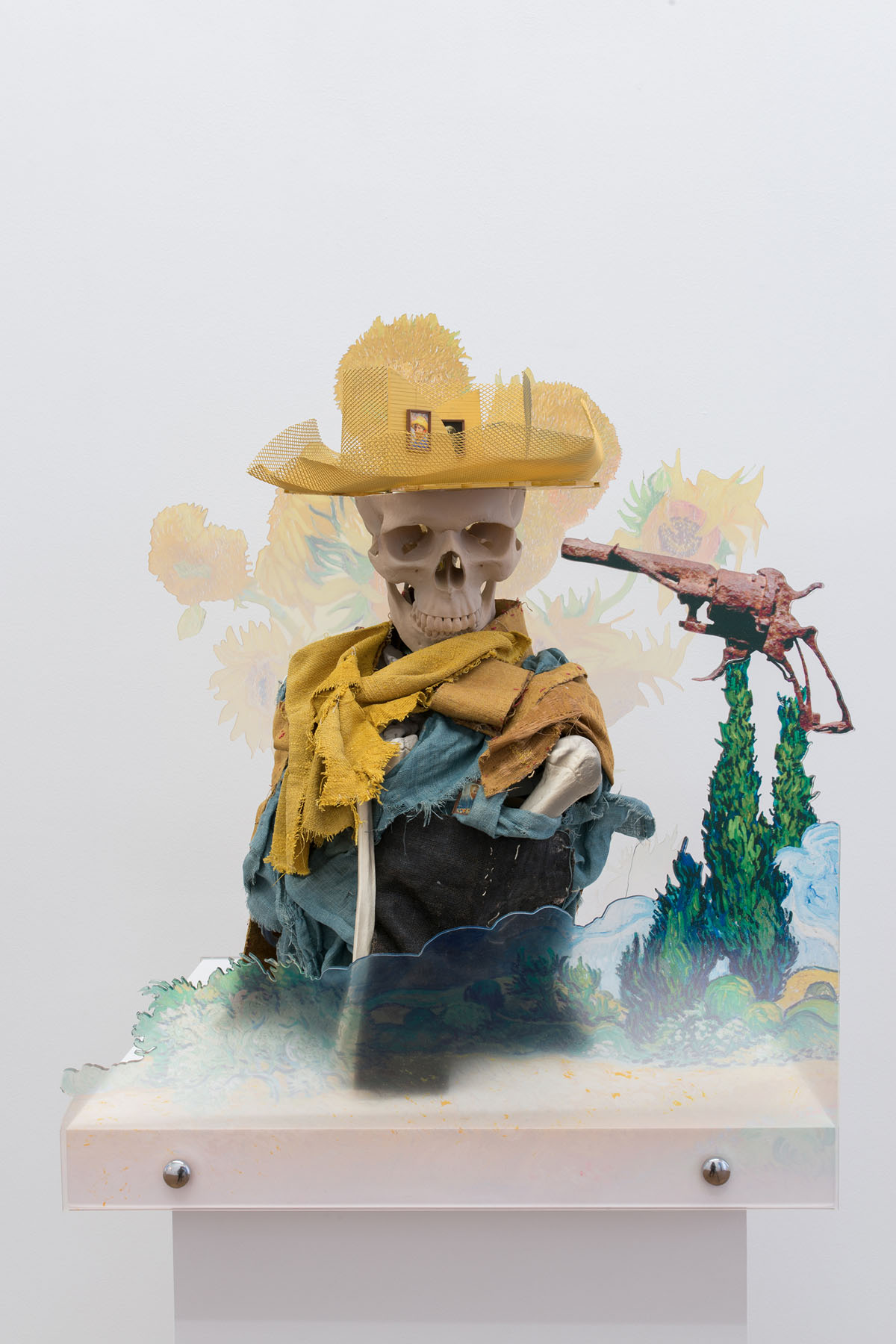
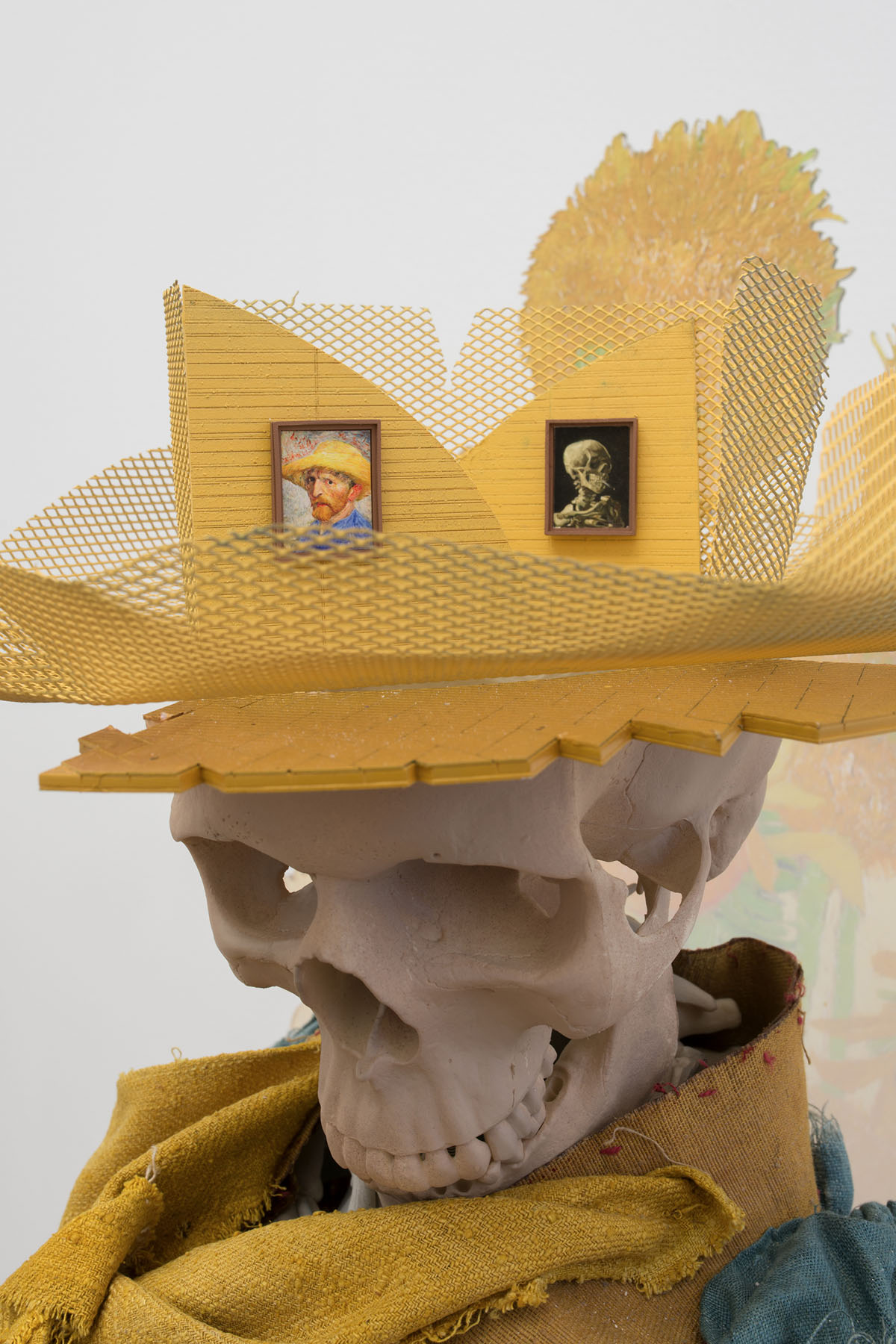
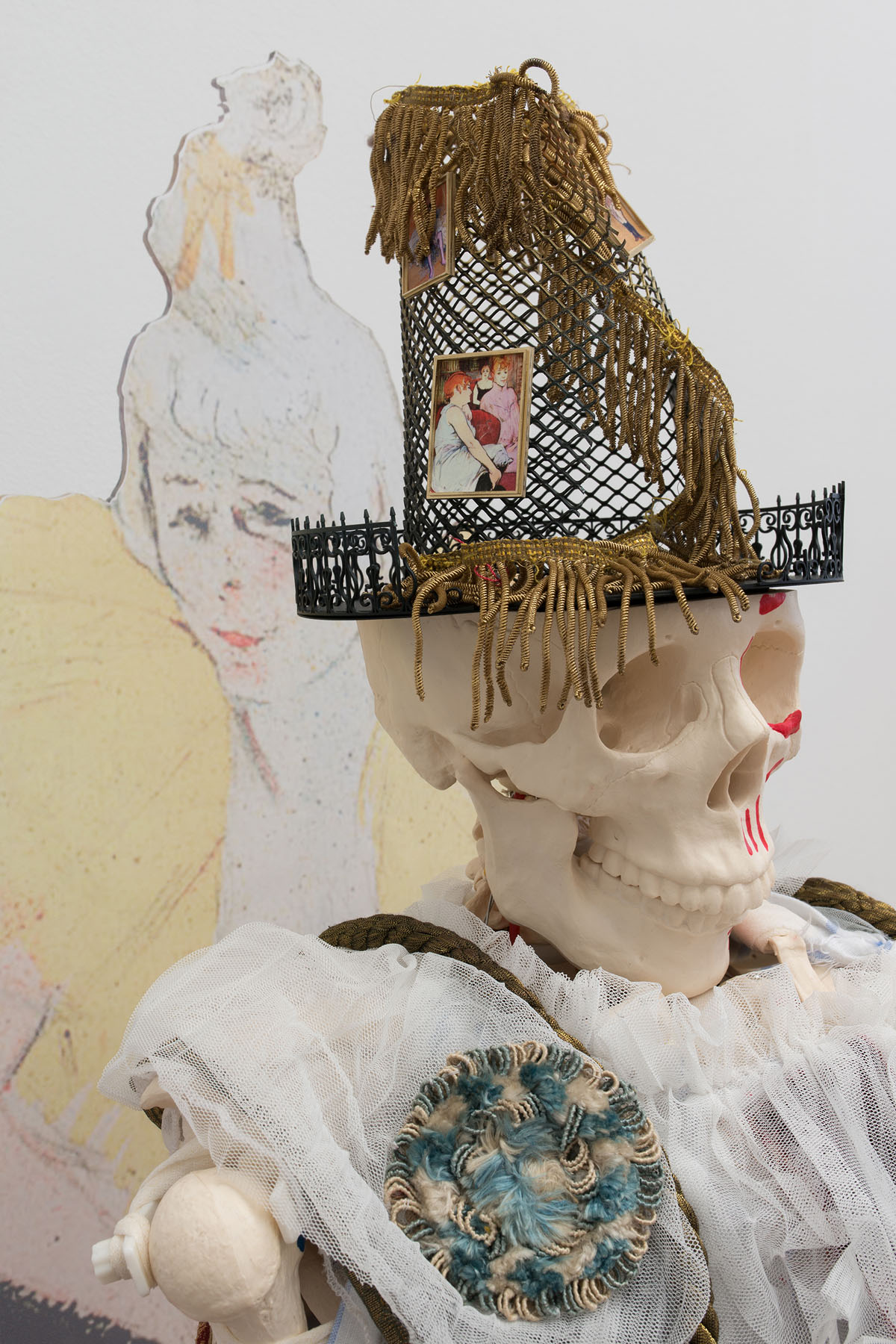

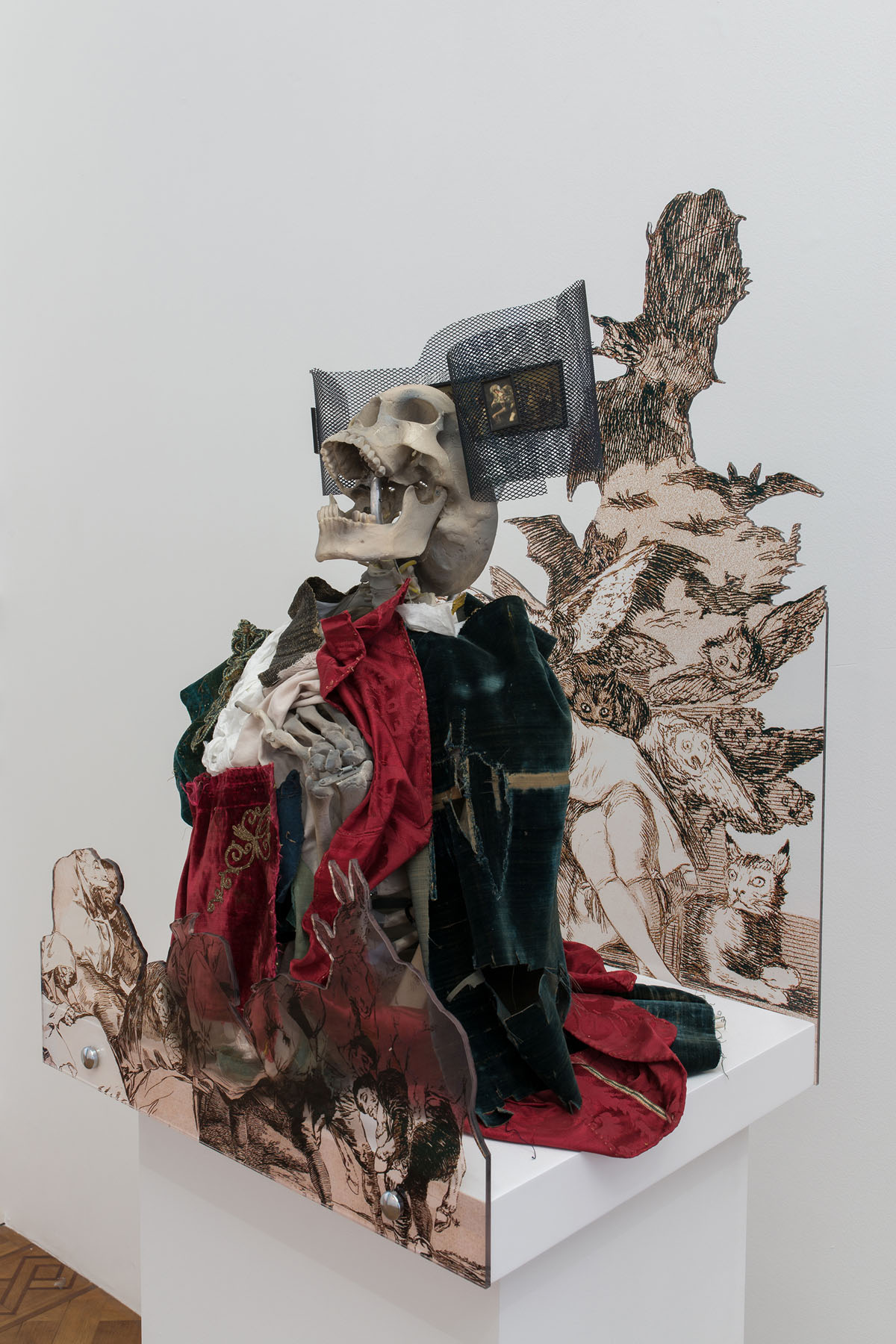
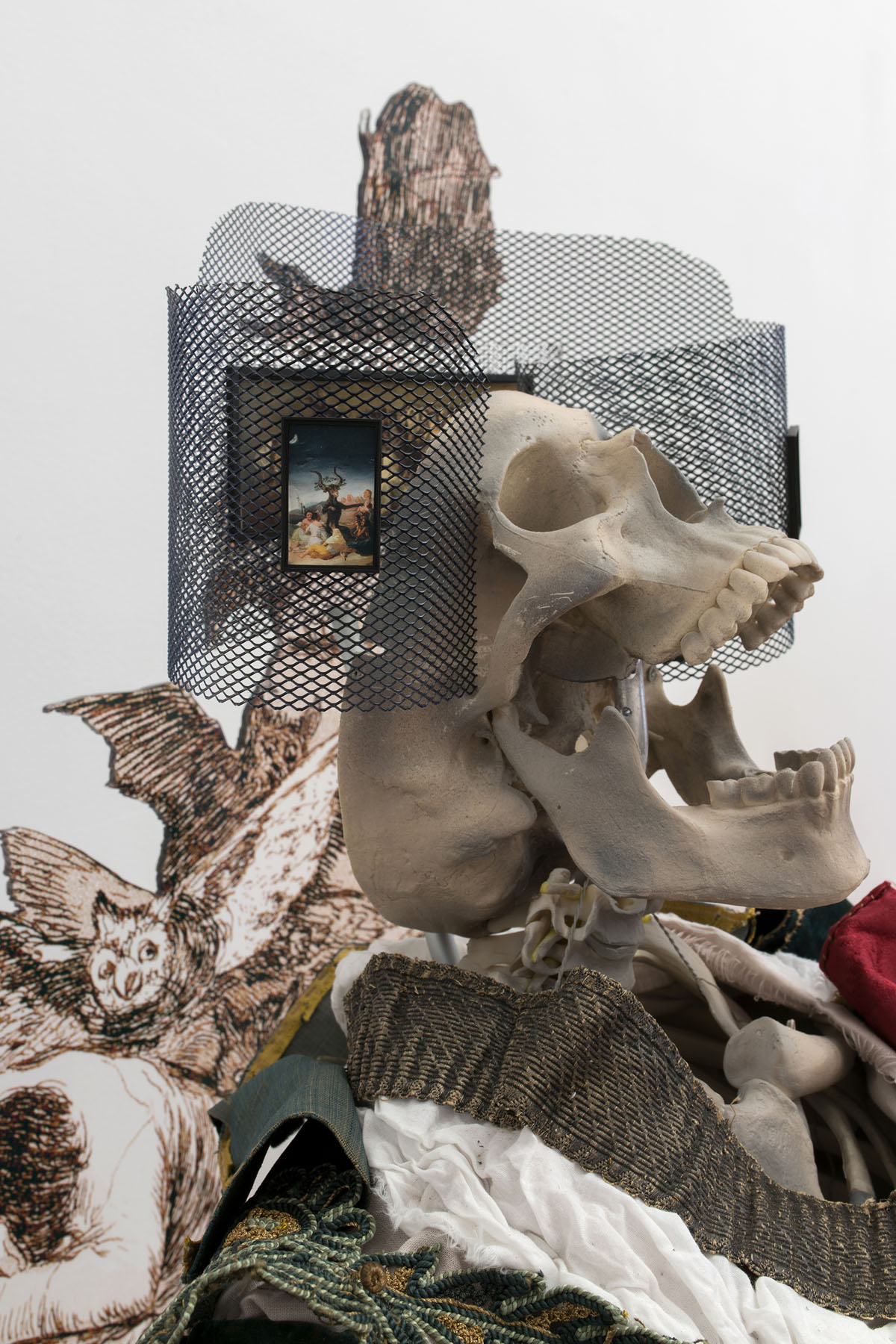
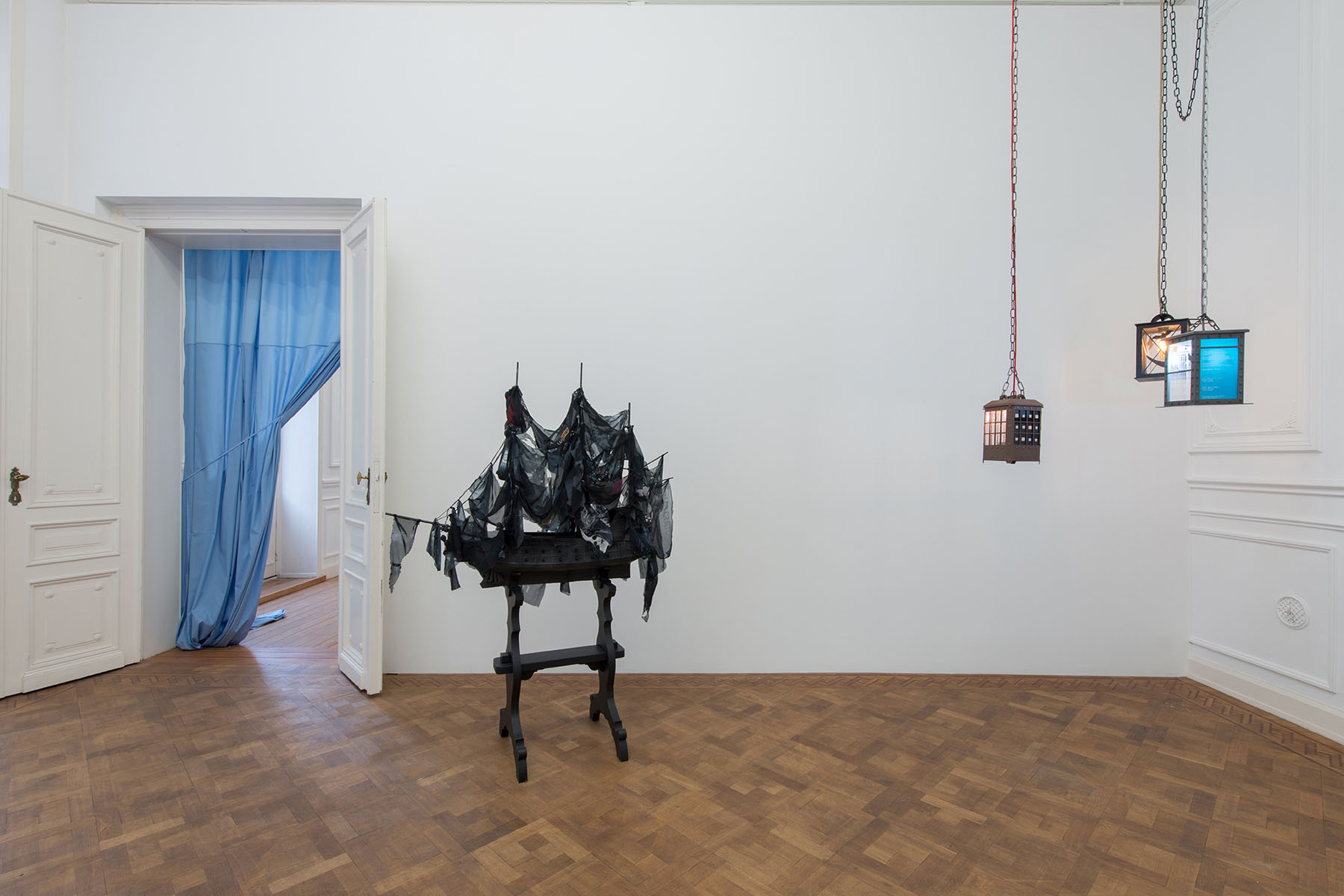
In this sculpture, the gay life in Berlin is documented through screenshots of the artist’s conversations on Grindr – a gay sex dating app – self-portraits, pornography, club and nightlife scenes and pixelated naked selfies. Together they form the sails of a ravaged black ship, decorated with skeletons and symbols of the syphilis virus. The artist made this work after contracting the disease, as a playful exorcism of the images of abjection and sexual deviance that often cast shame on those suffering from STDs. Here Fujiwara over exploits their potential to shock or disturb, by turning the imagery into a fantastical dark pirate ship and pushing a hyper confirmation of our desire to cast our hidden sexual lives in the dark.
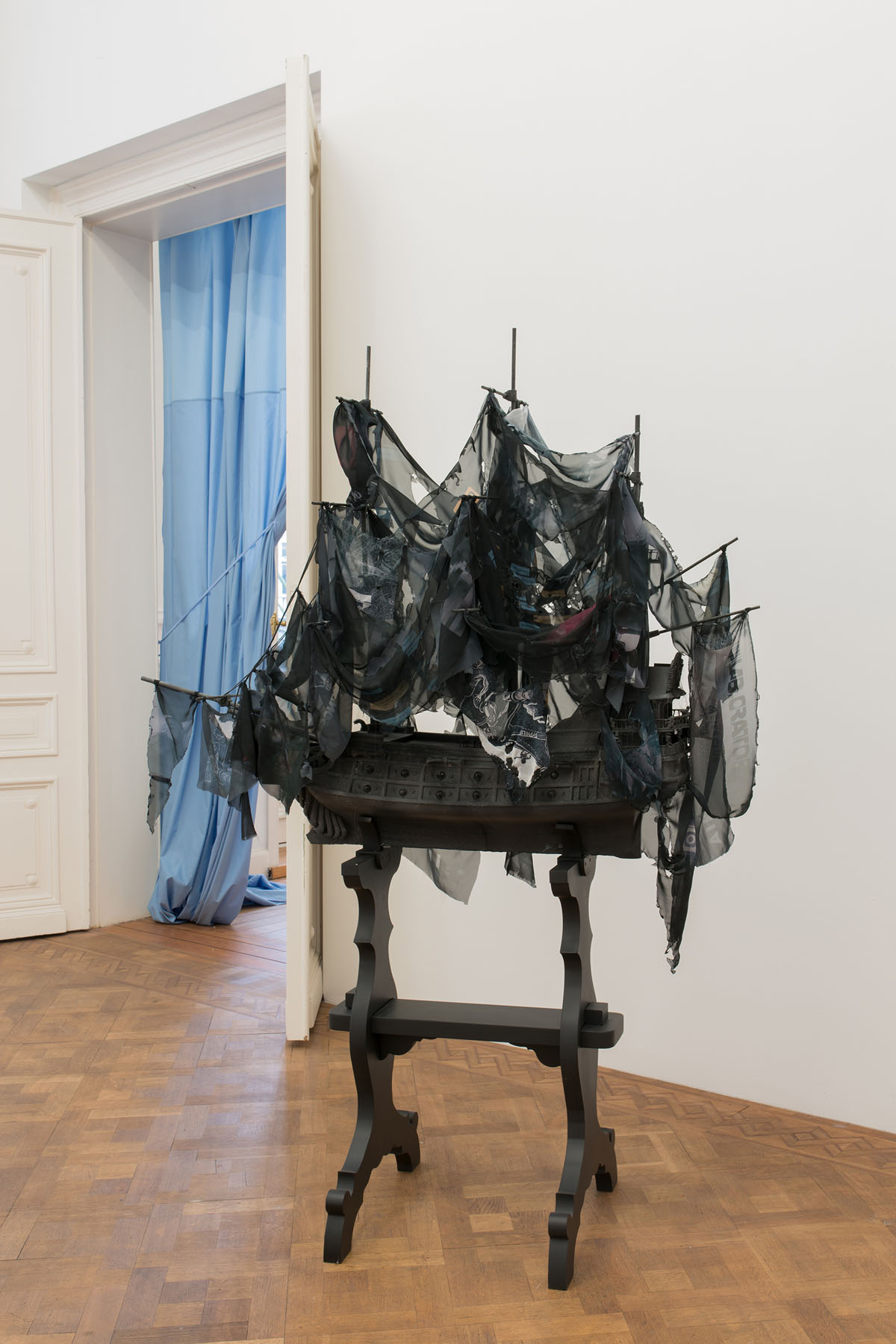
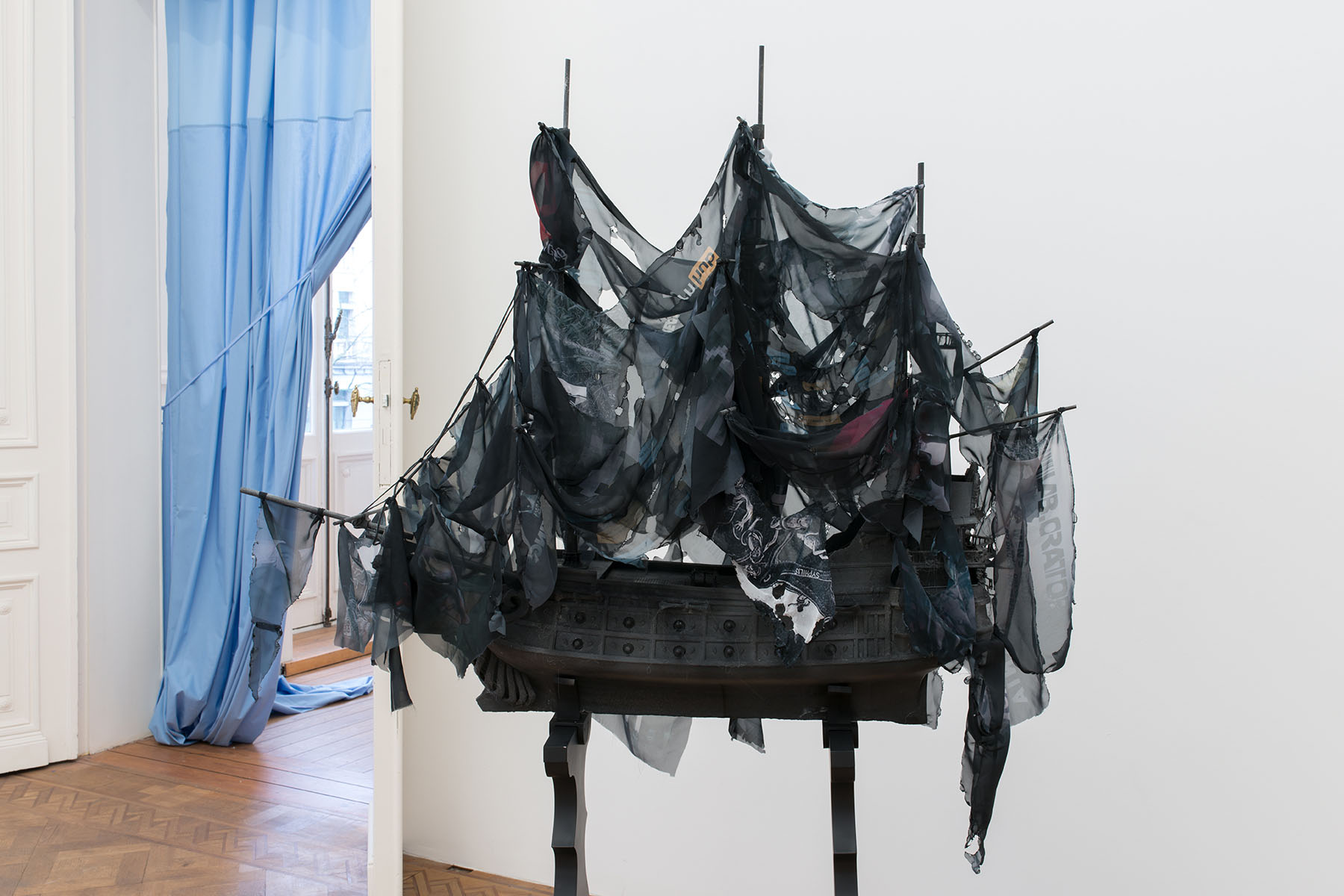
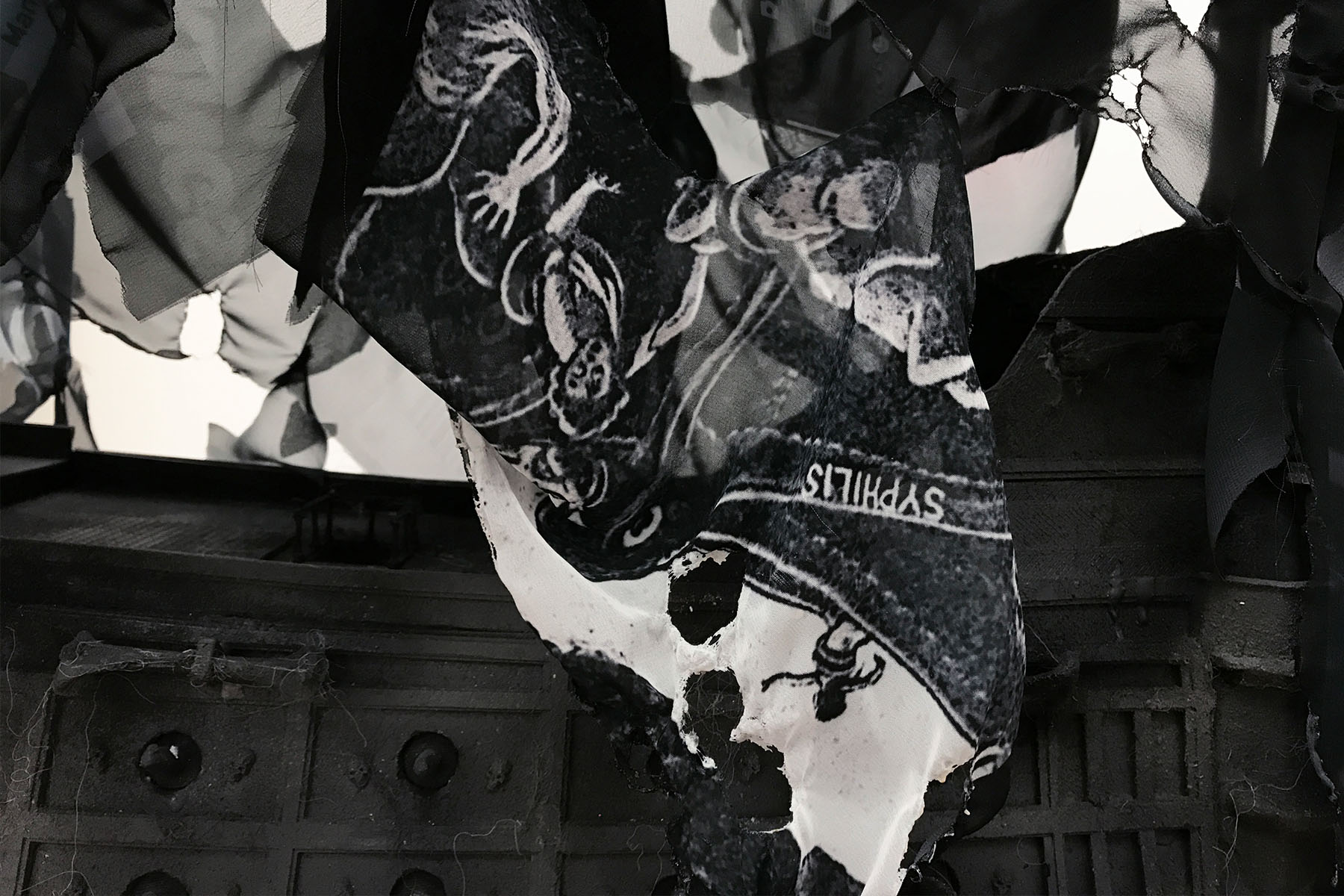
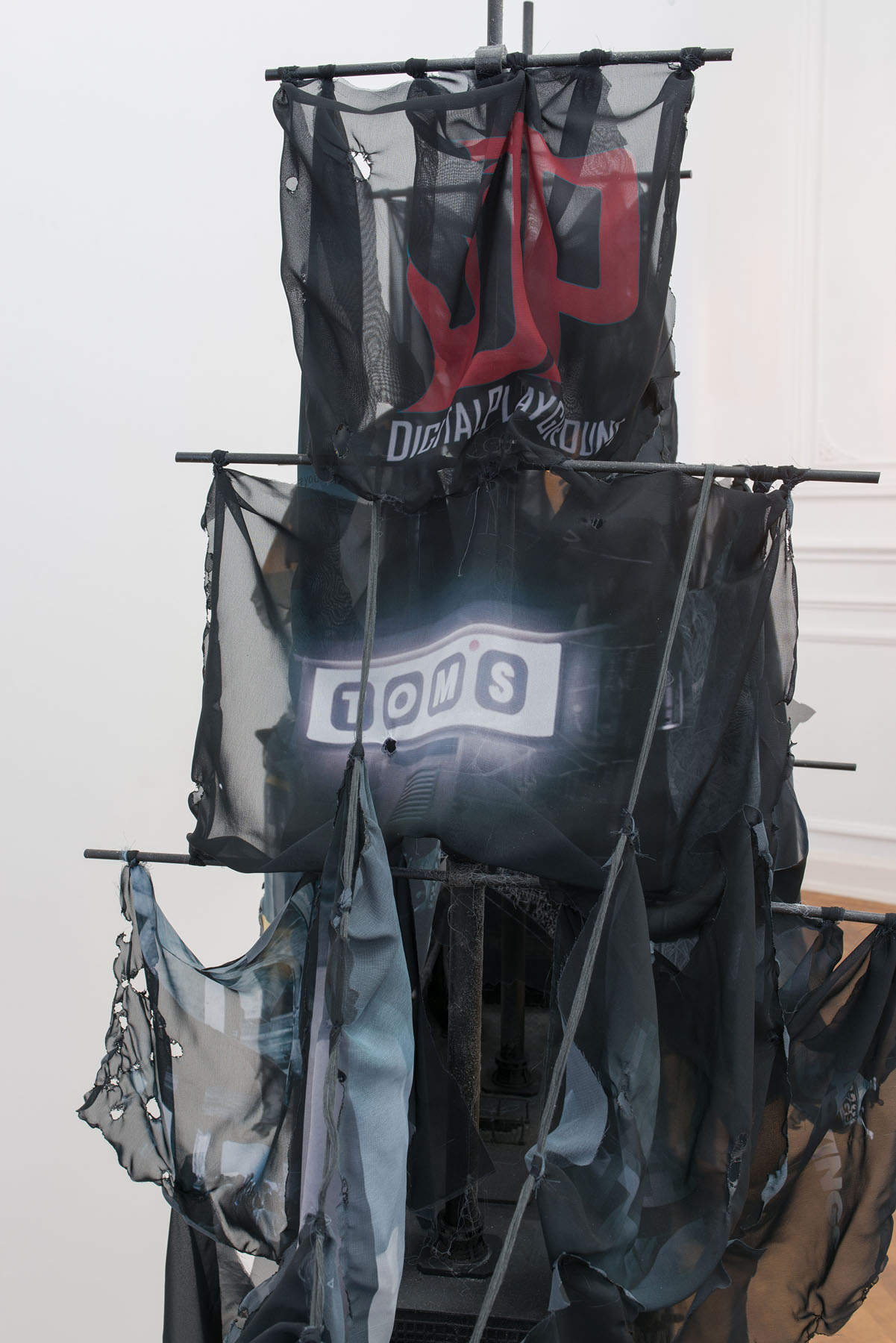
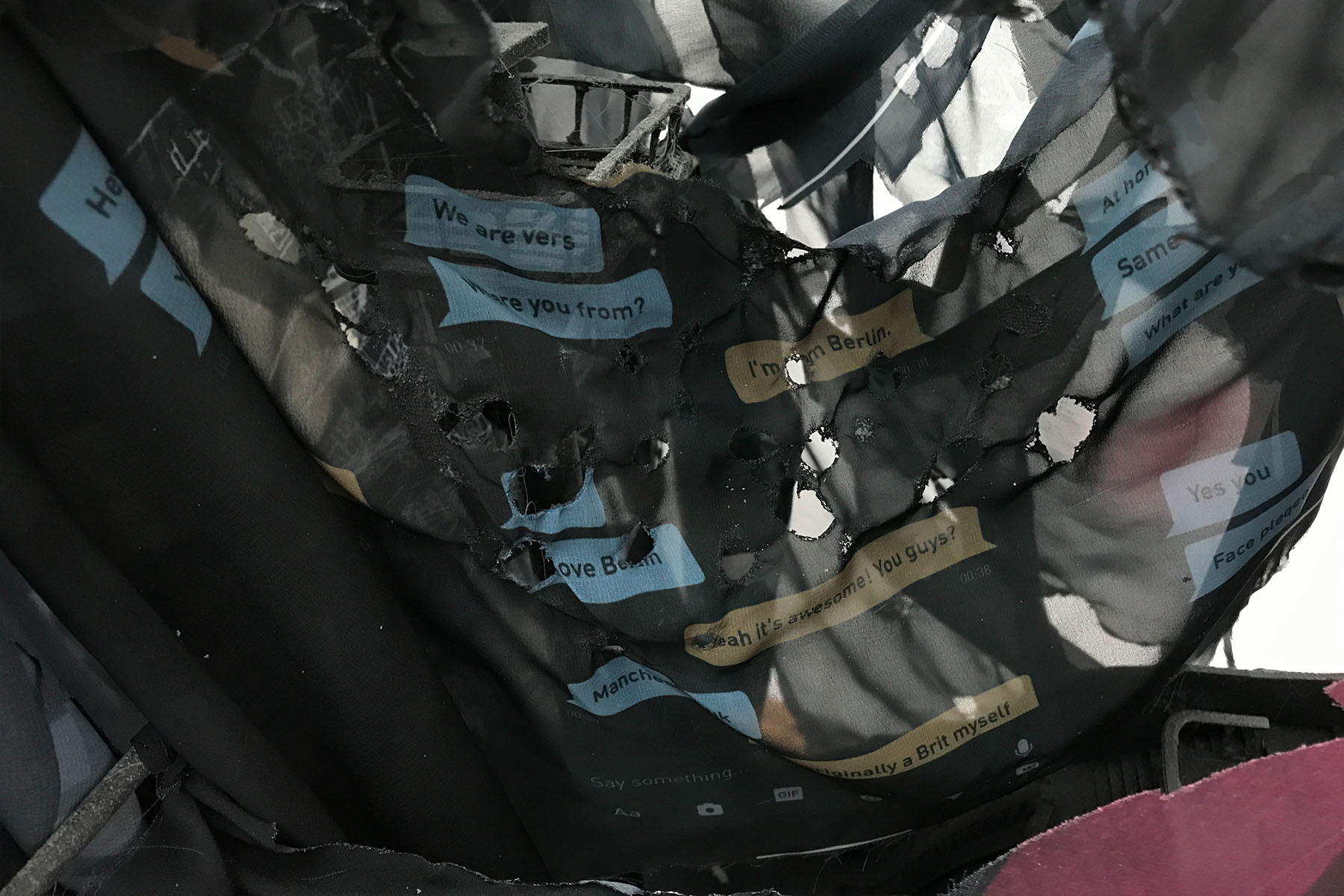
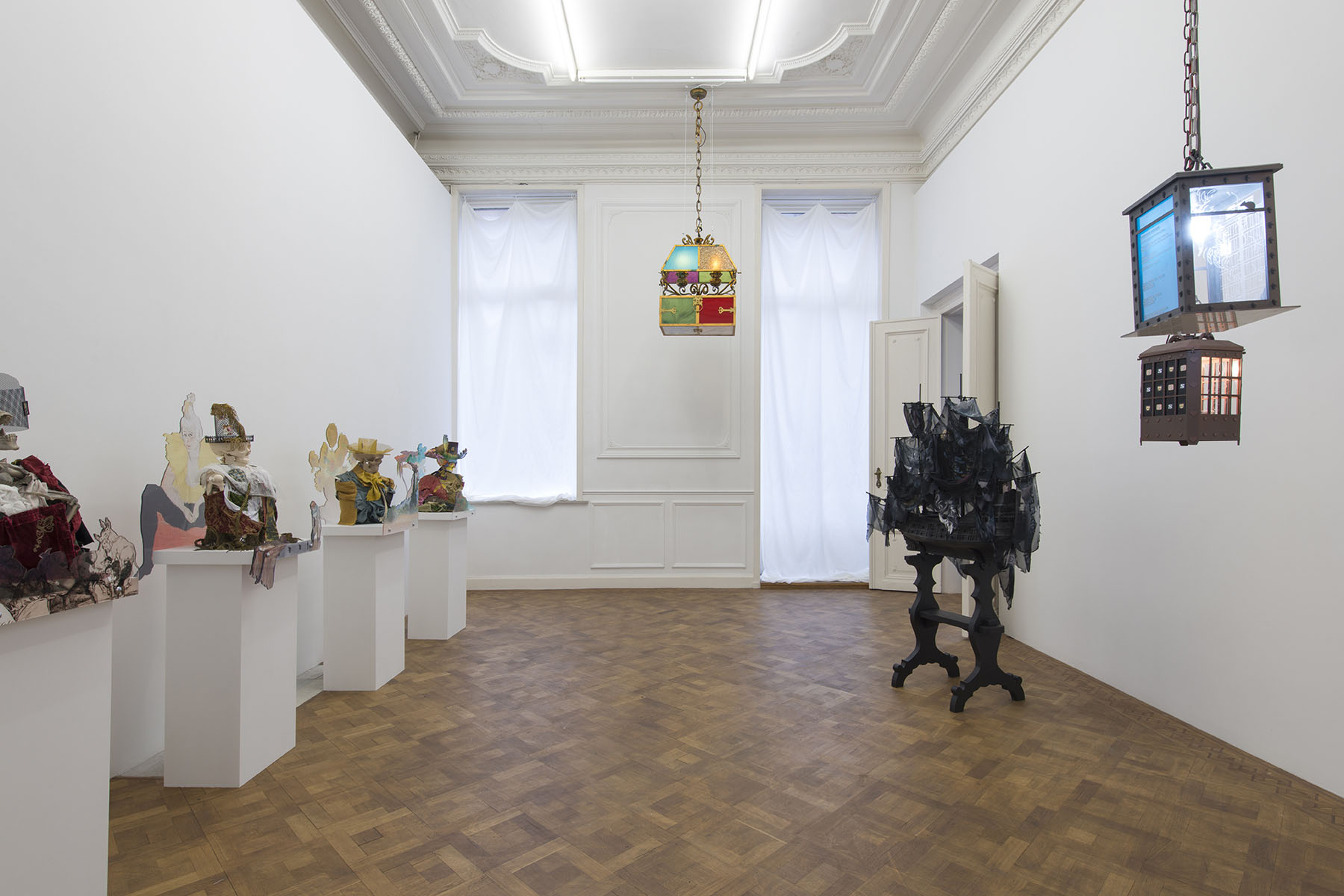
This fantastical lamp converted into a treasure chest was conceived by the artist during the fevers he suffered from while being treated for syphilis. His battle with the disease became a fairy tale told with imagery related to the historic nature of the disease. At the end of a fairy tale there is often a moral, a goal or a treasure chest. This one, filled with some personal belongings that the artist would take on a night out in Berlin, becomes the protagonist’s travel trunk of necessities for a journey through pleasure and pain to sexual freedom.
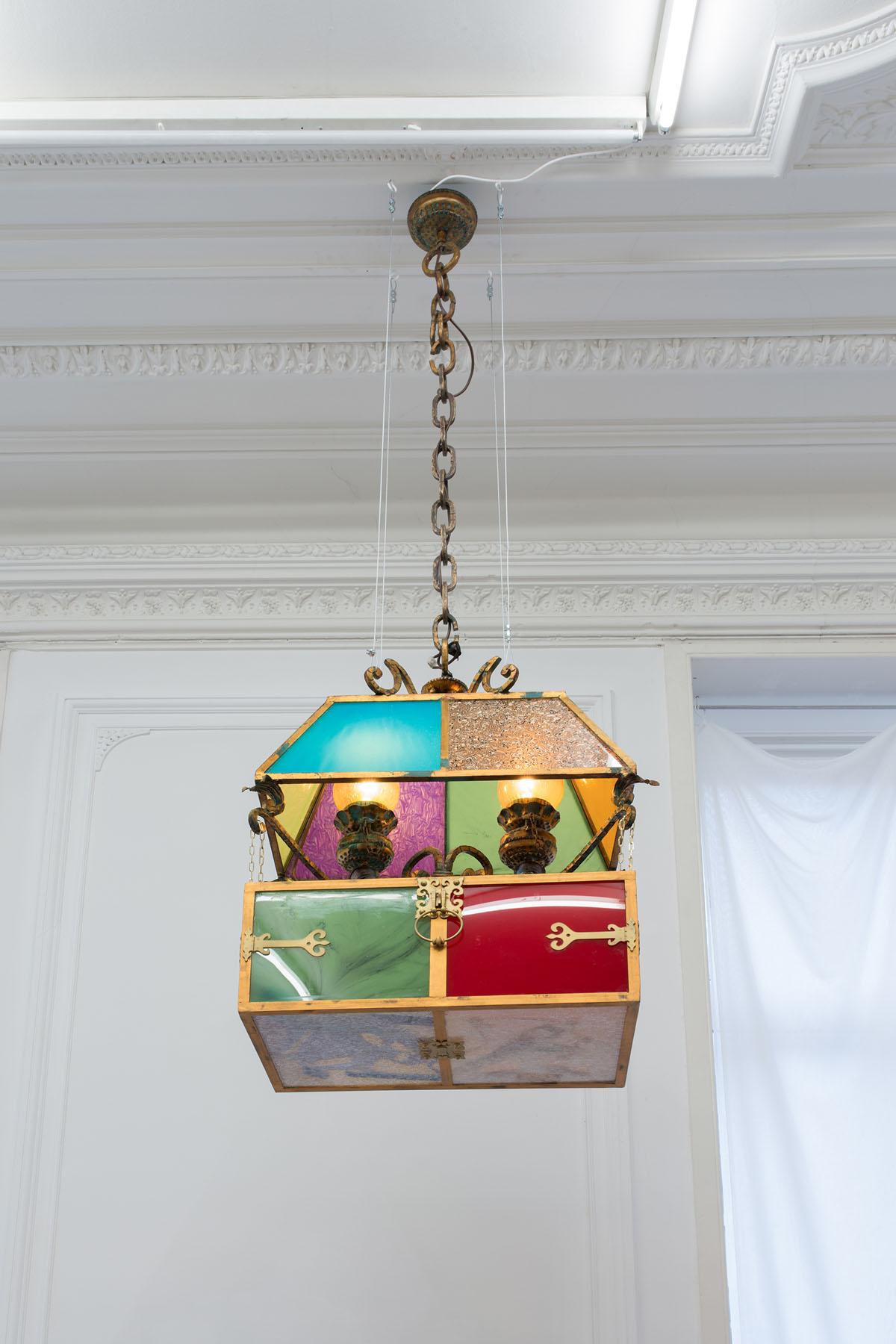
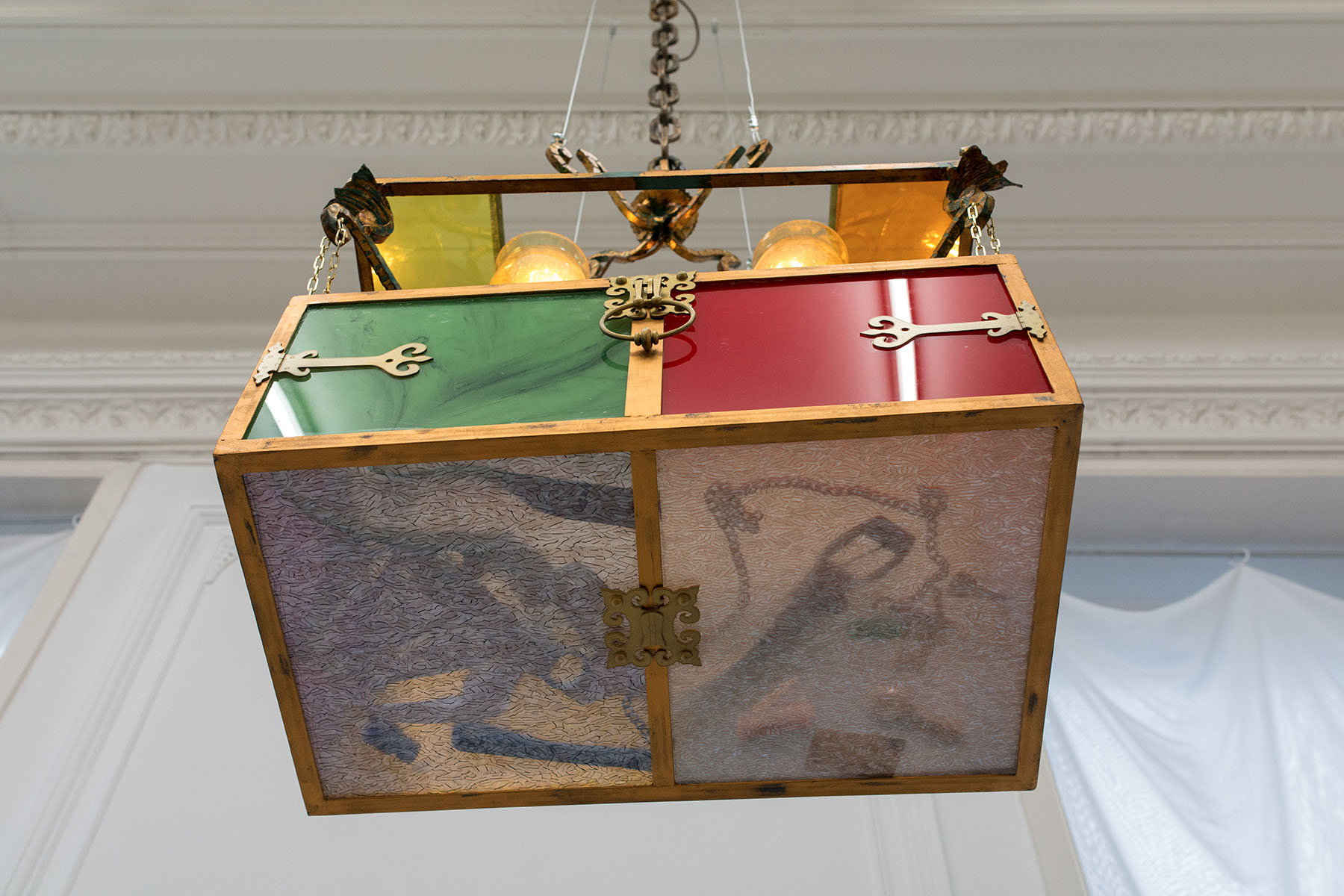
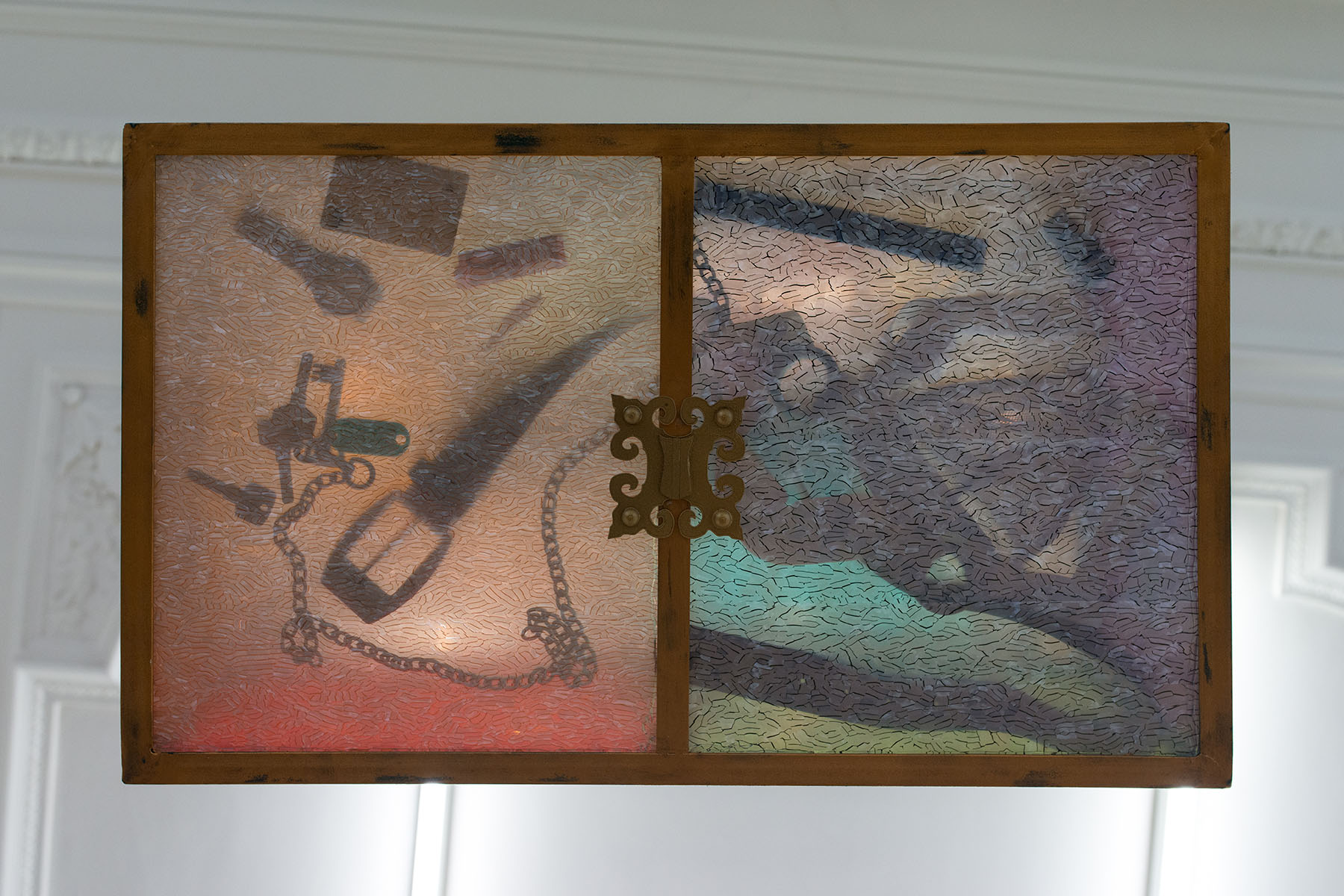
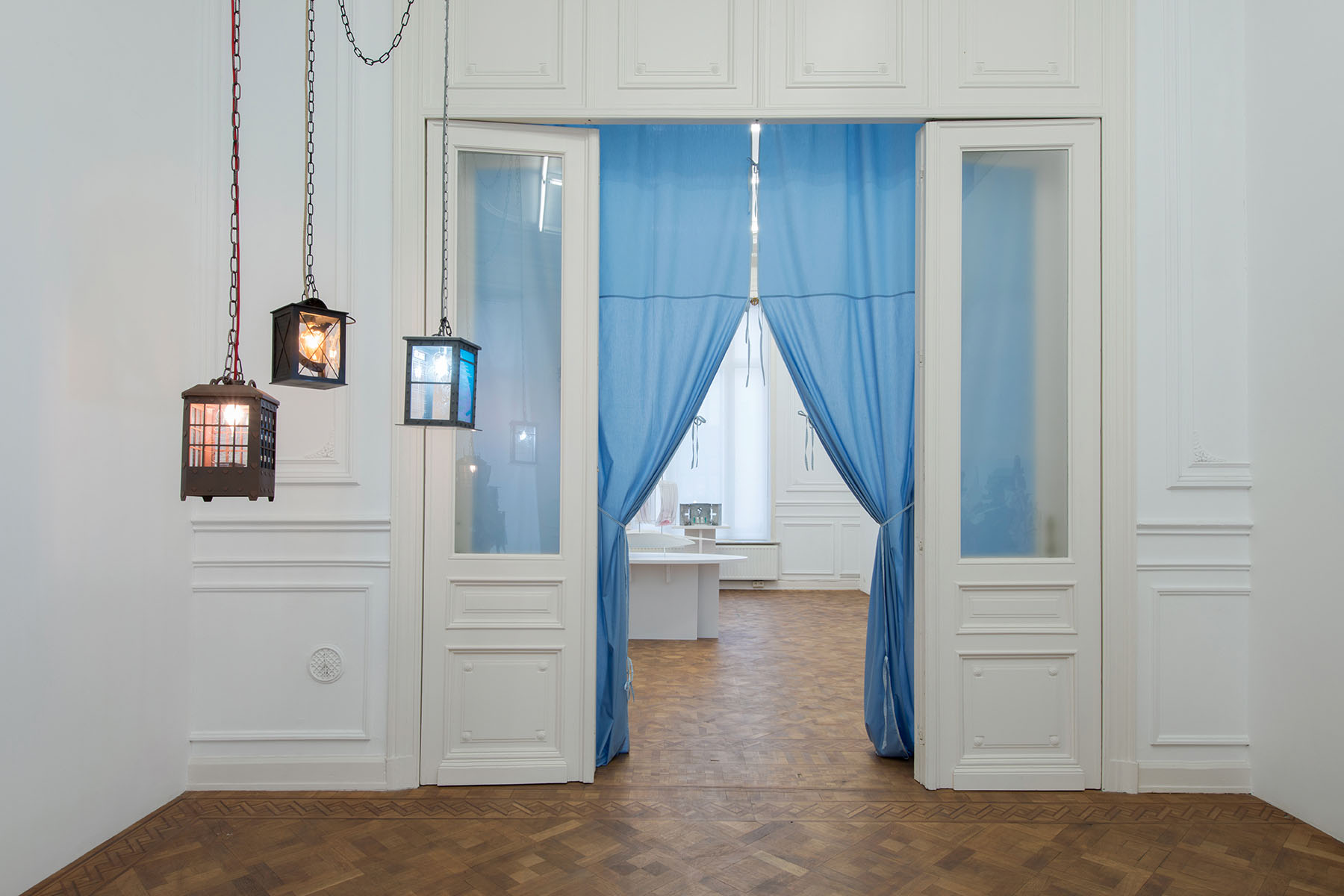
In ‘Animal Kingdom’ real locations for gay sexual encounters in Berlin (bath house, massage parlour and sex club) are turned into lanterns and given animal identities. The artist reimagines the underground life of Berlin as a fun miniature theme park, with an almost childlike pleasure and innocence usually not associated with places designed for anonymous sex.
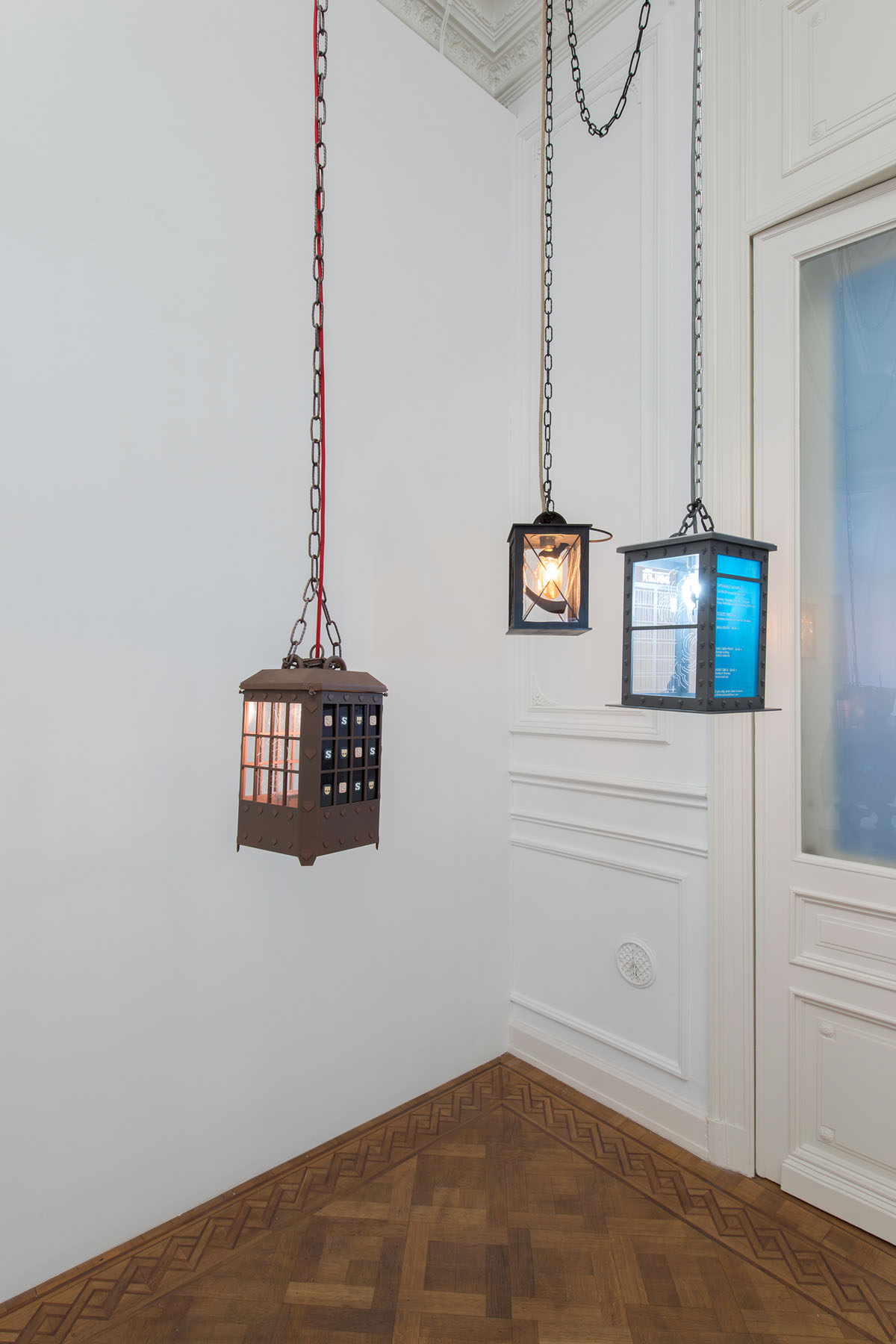
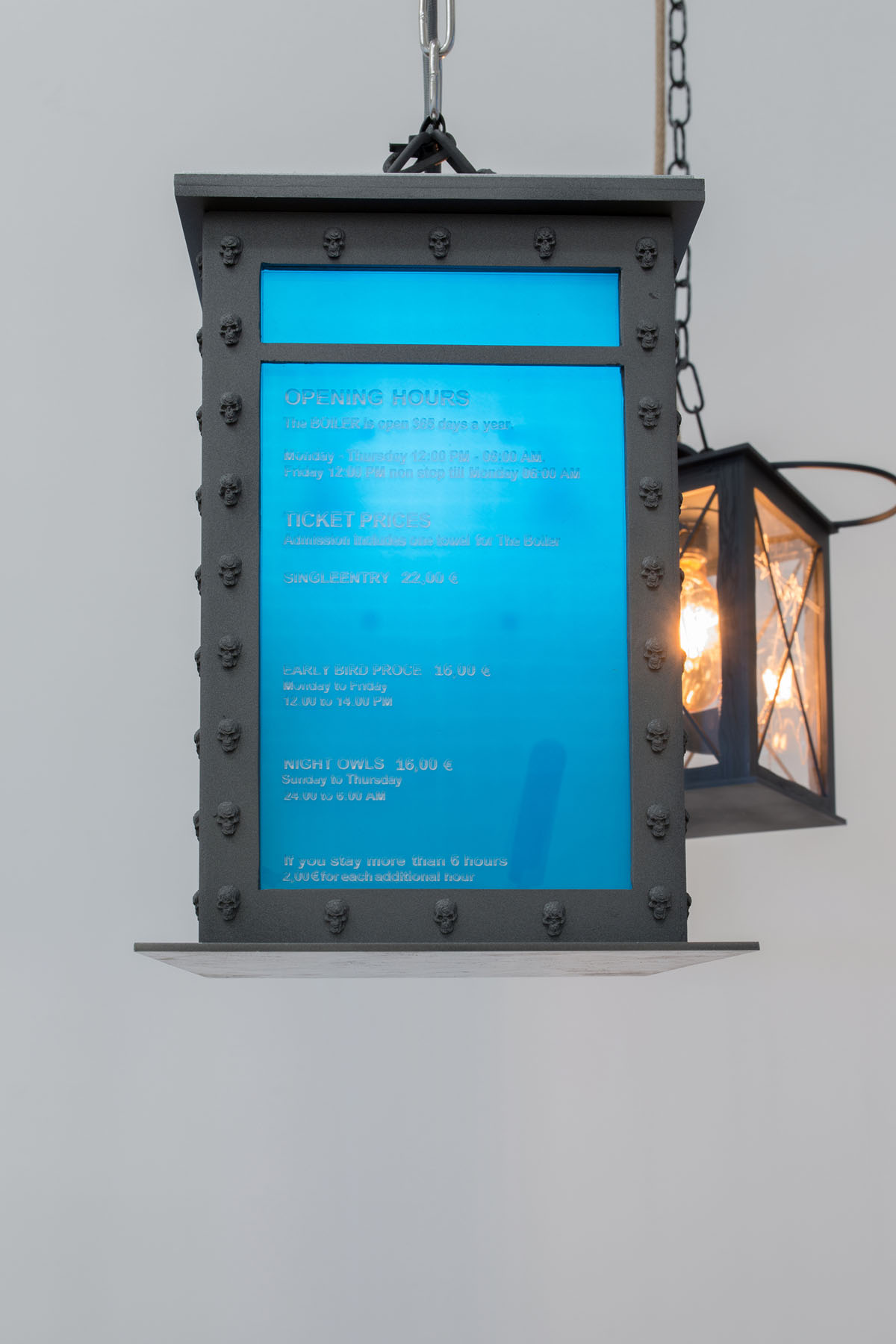
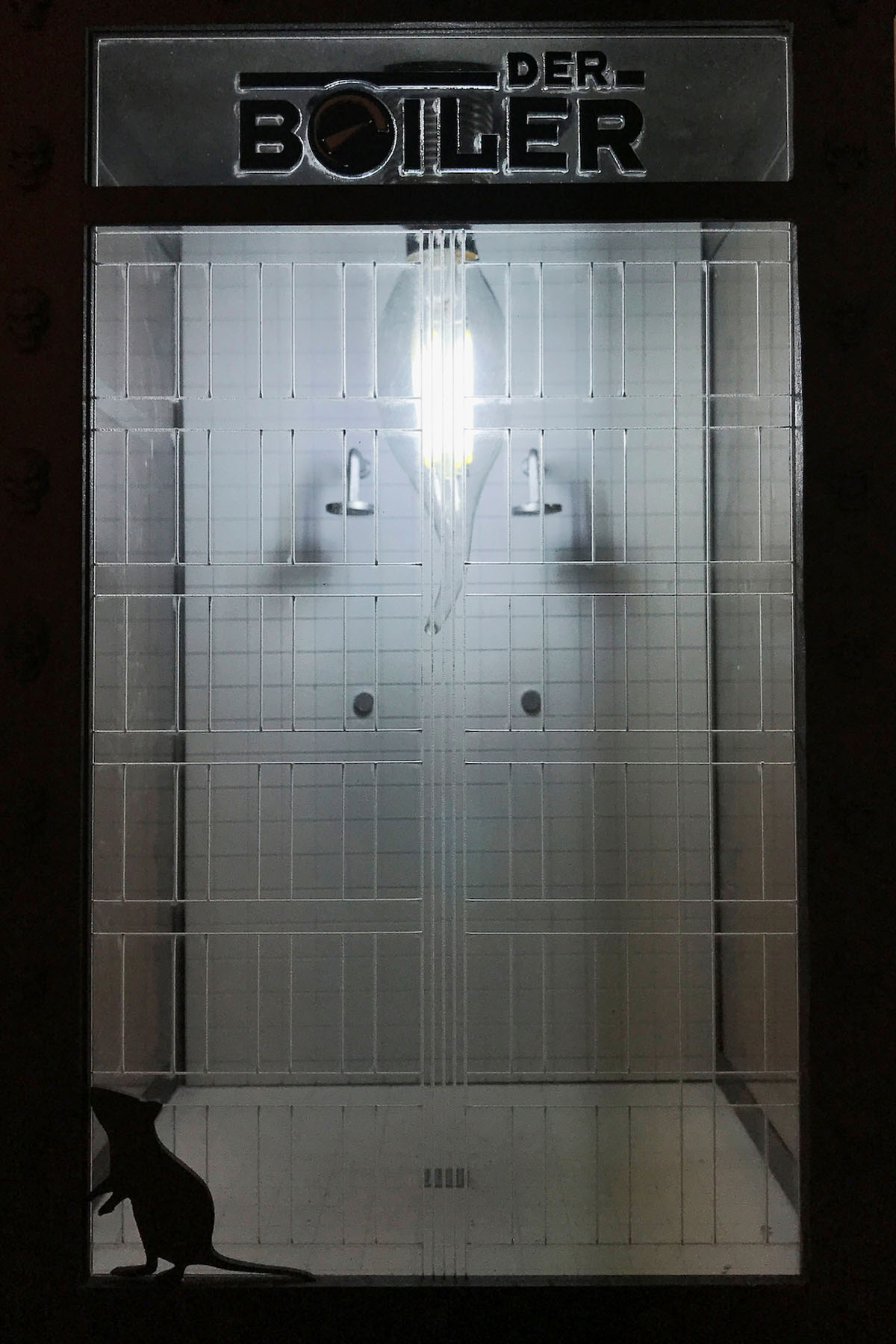
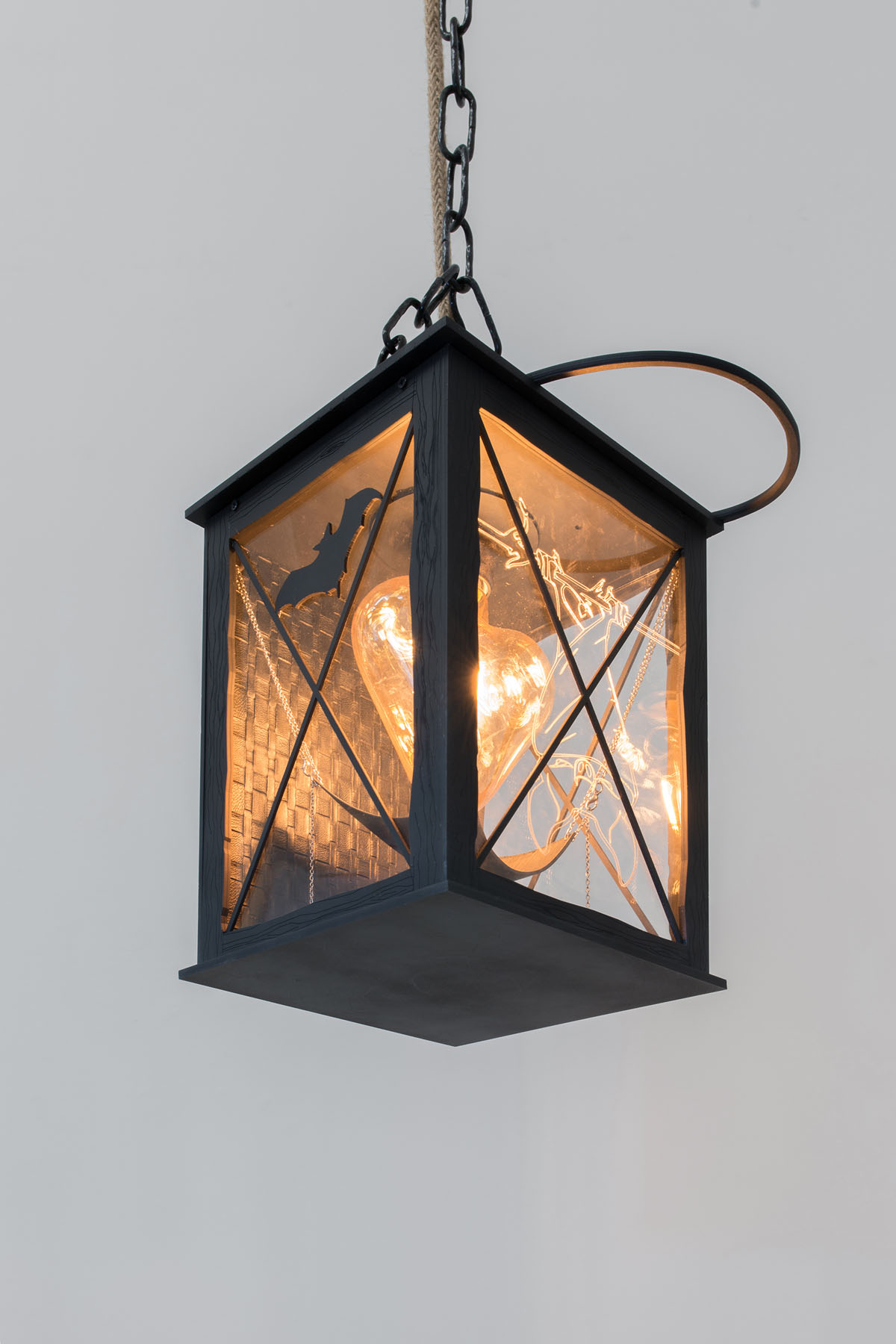
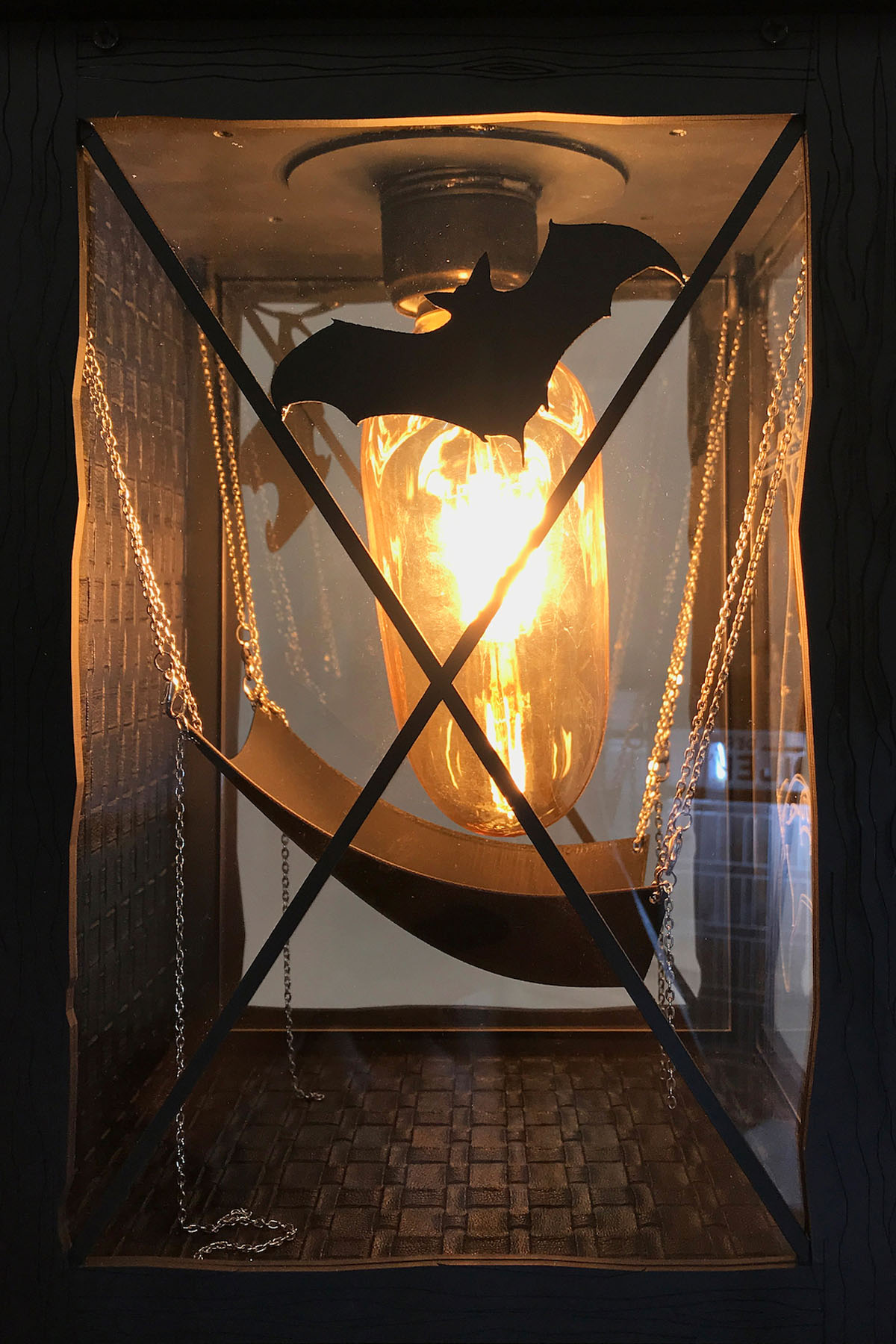
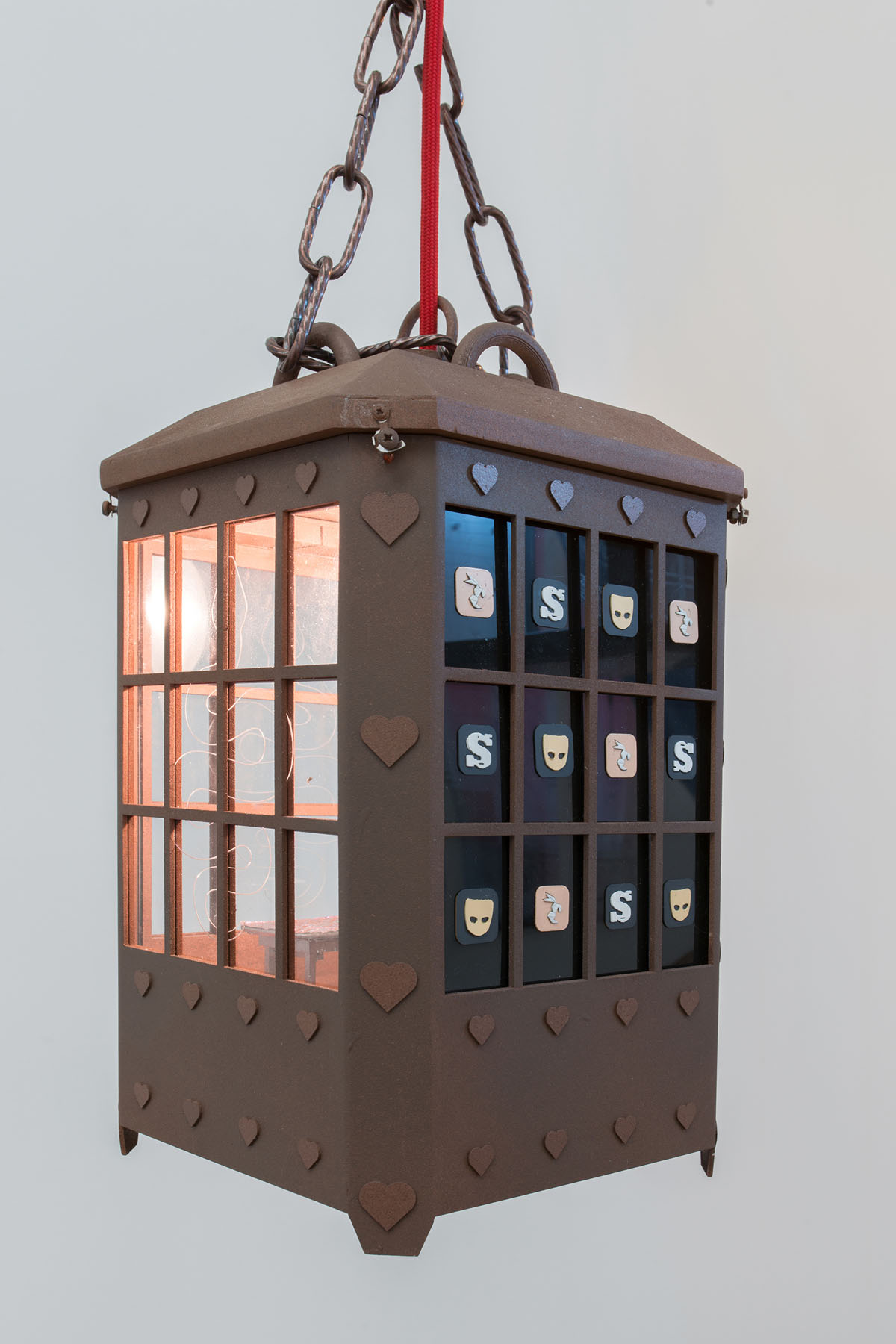
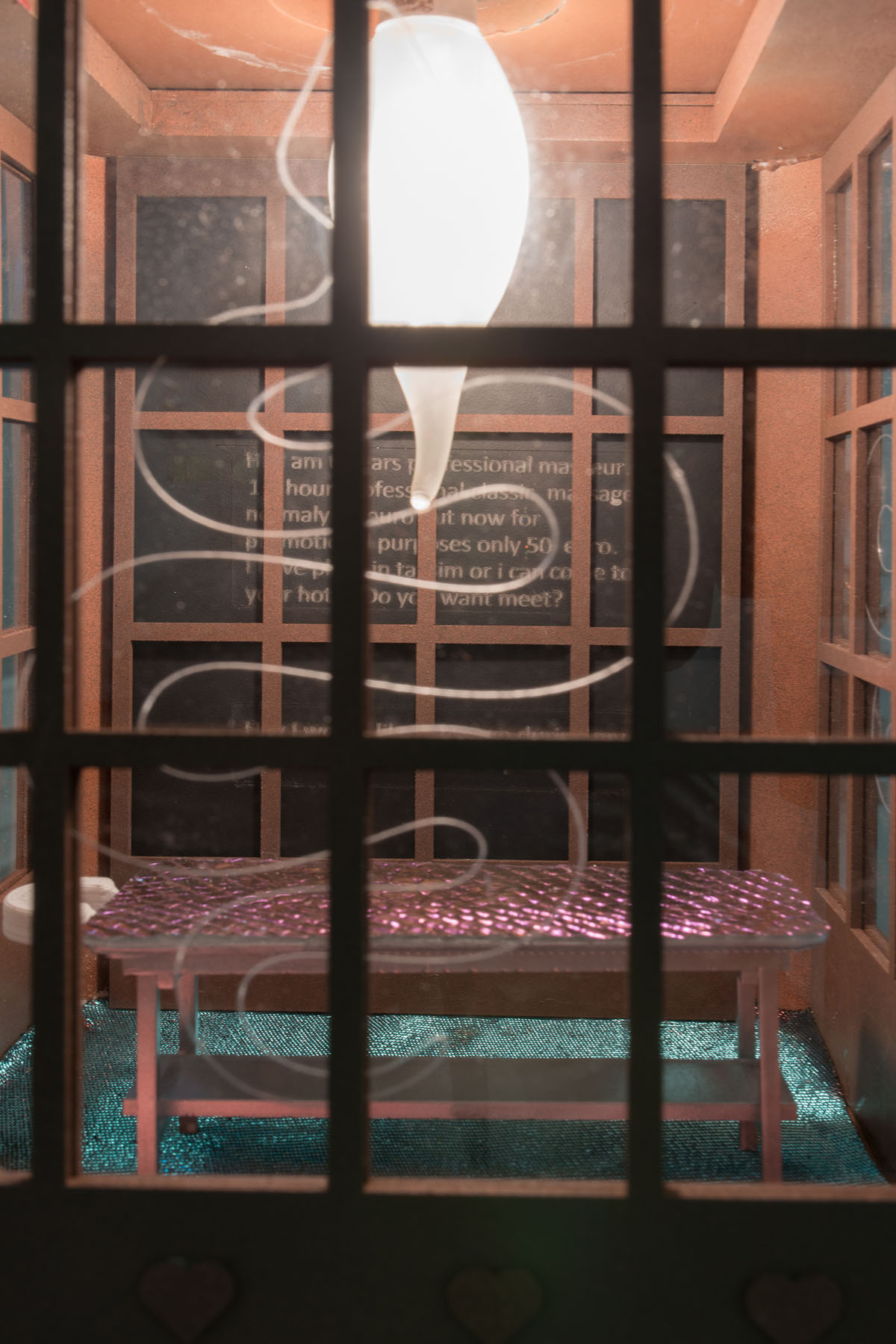
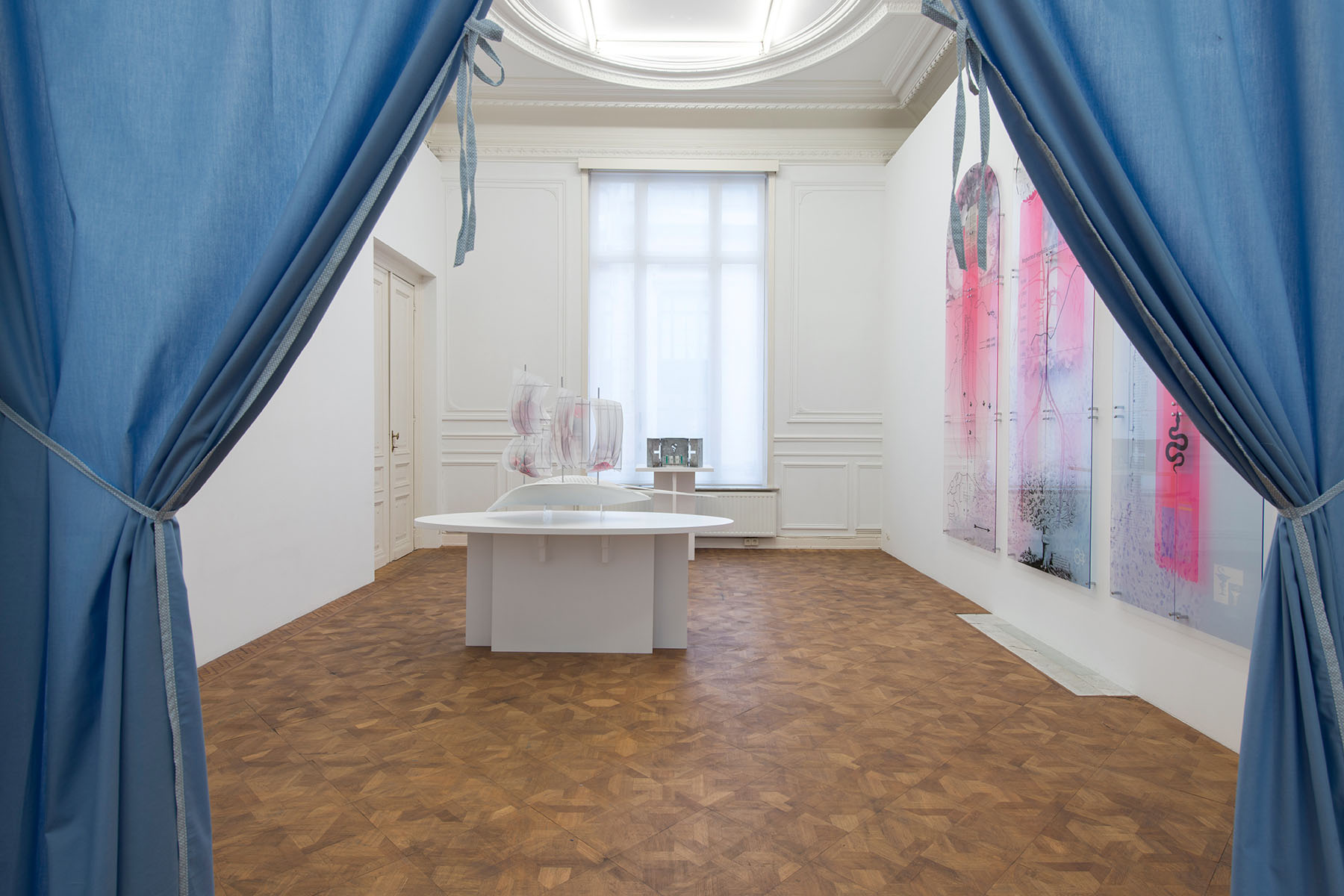
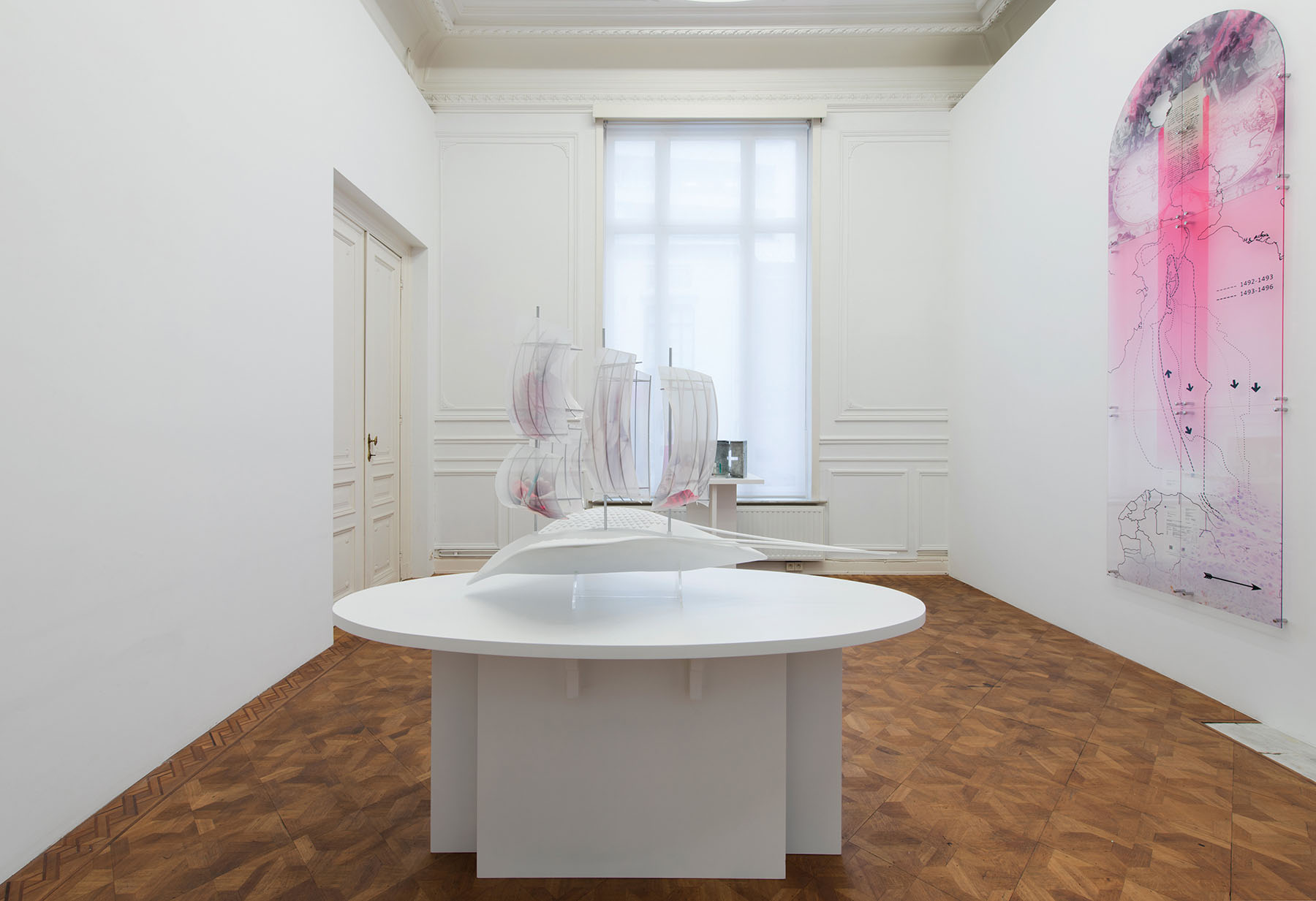
‘SS Salvation’
‘Salvation’ is a futuristic ship inspired by contemporary organic architecture from Zaha Hadid to Frank Gehry (in recent years, returning references in Fujiwara’s works). Morphing into a vessel that resembles a fantastical stingray sea creature where the sails of the ship show real documentation of the artist’s treatment of syphilis in 2019, including the shots of antibiotics for which he had to come in to the clinic on several occasions.
Inspired by the history of syphilis and its origins in the conquest of the Americas by Christopher Columbus who brought the disease to Europe in the late XV century, Fujiwara fuses his own infection by the disease with a deep connection to the history of modern Europe. By doing so, the artist uses the virus as a vessel to “time travel” and in the case of SS Salvation, he appears to travel to a sterile future. The cold yet fantastical materiality of the work forms a deeply personal self portrait of the artist in conflict between the worlds of imagination and pragmatism, capitalism and ecology, the self-celebration and objectification. Questions that run deeply through his practice.
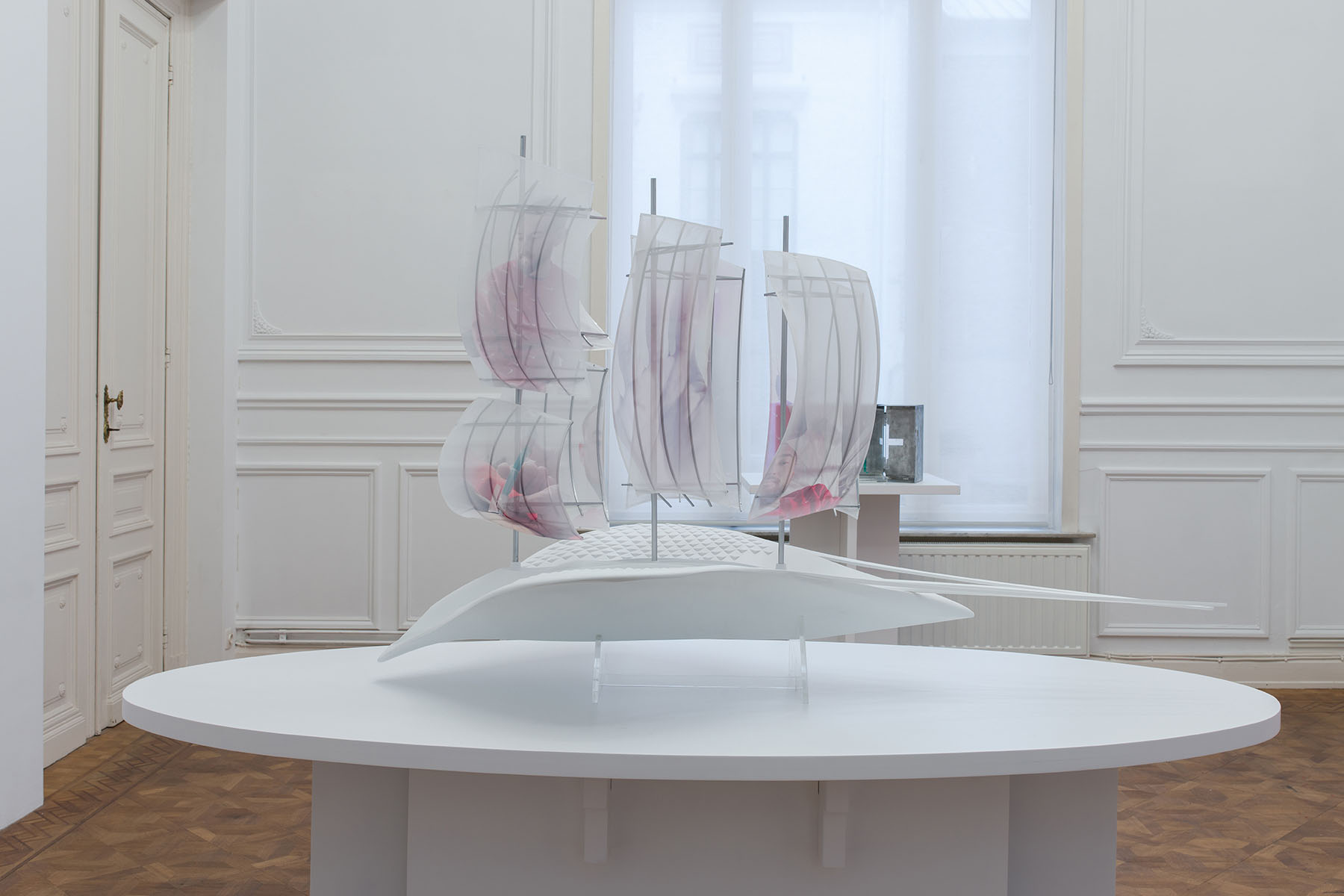
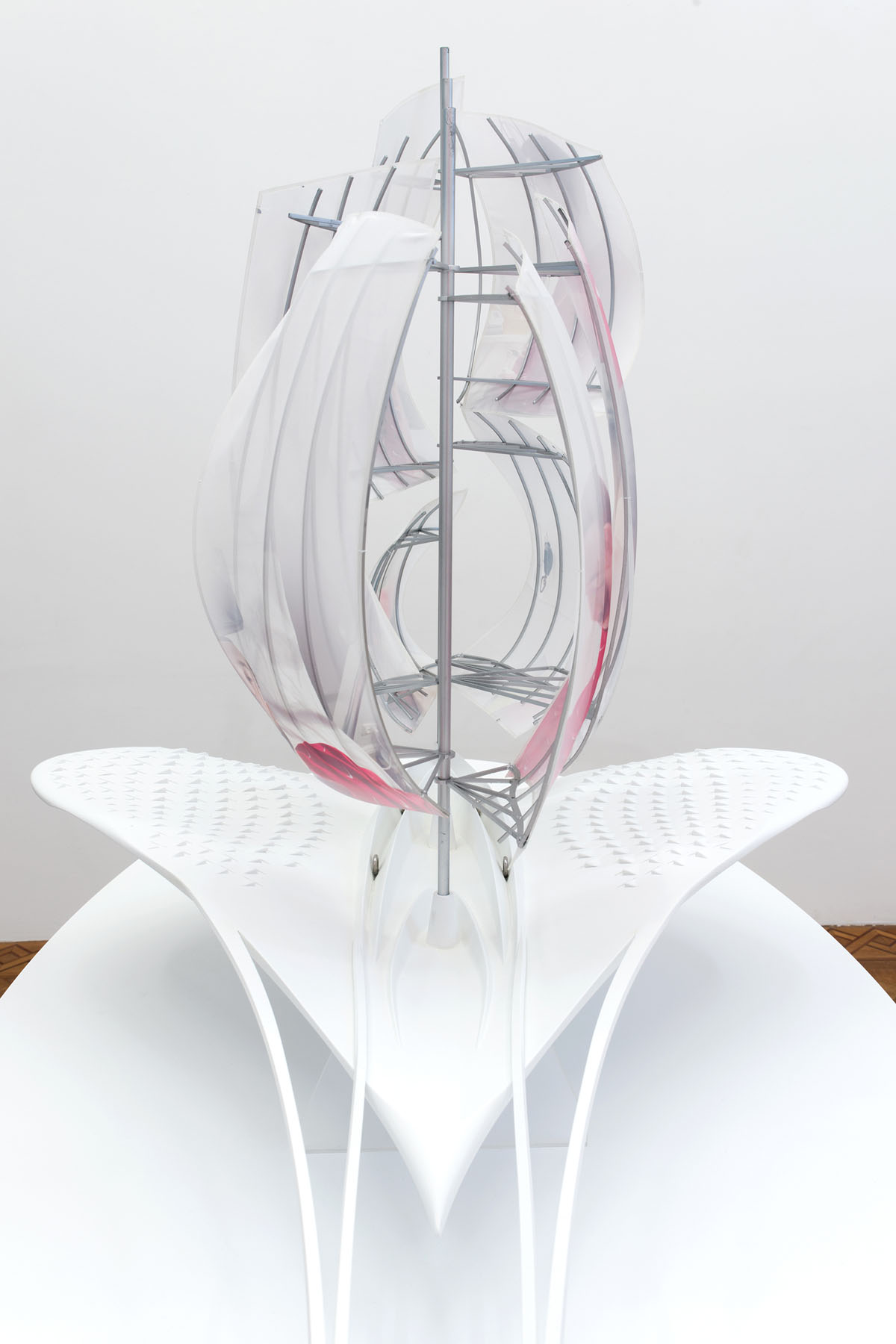
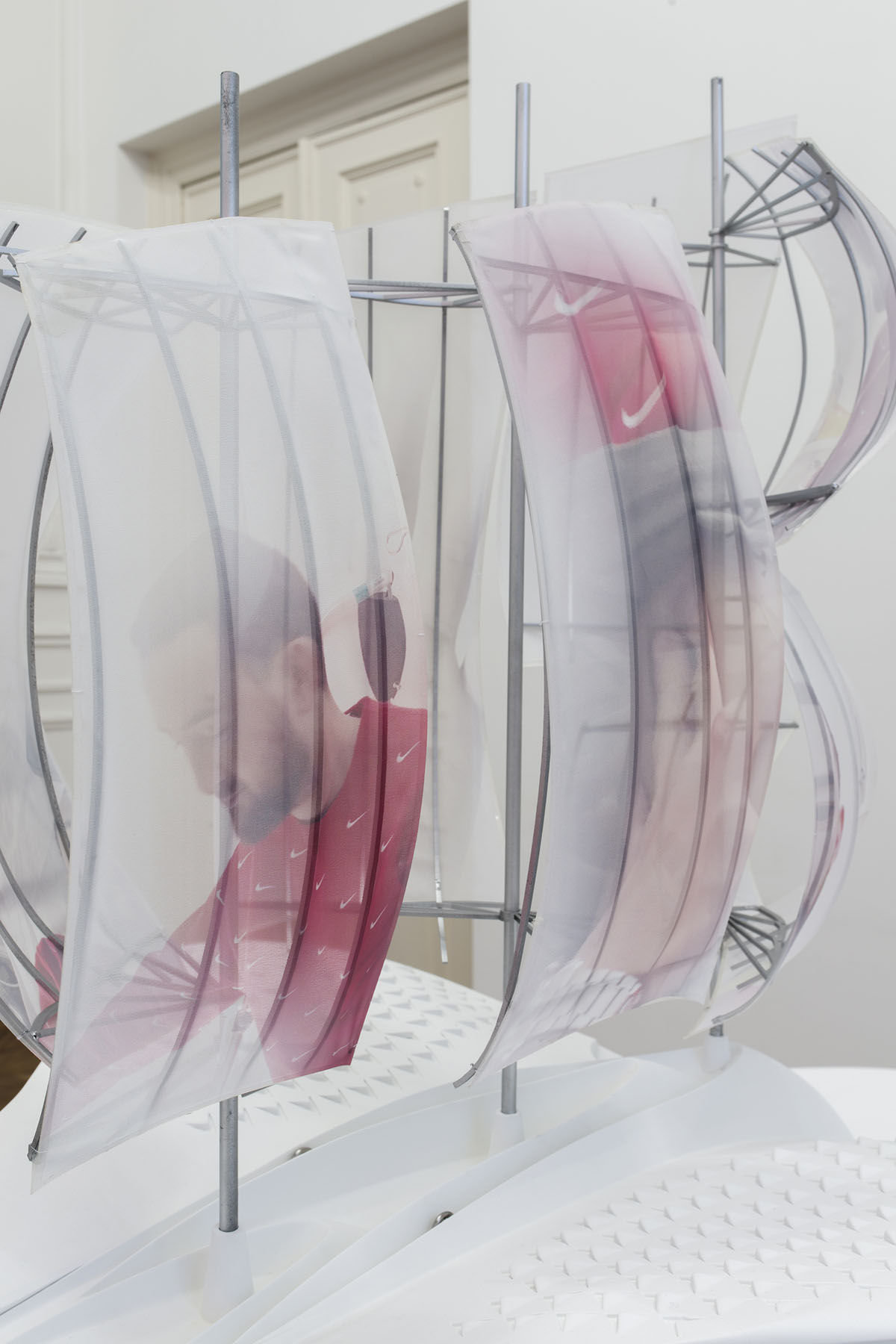
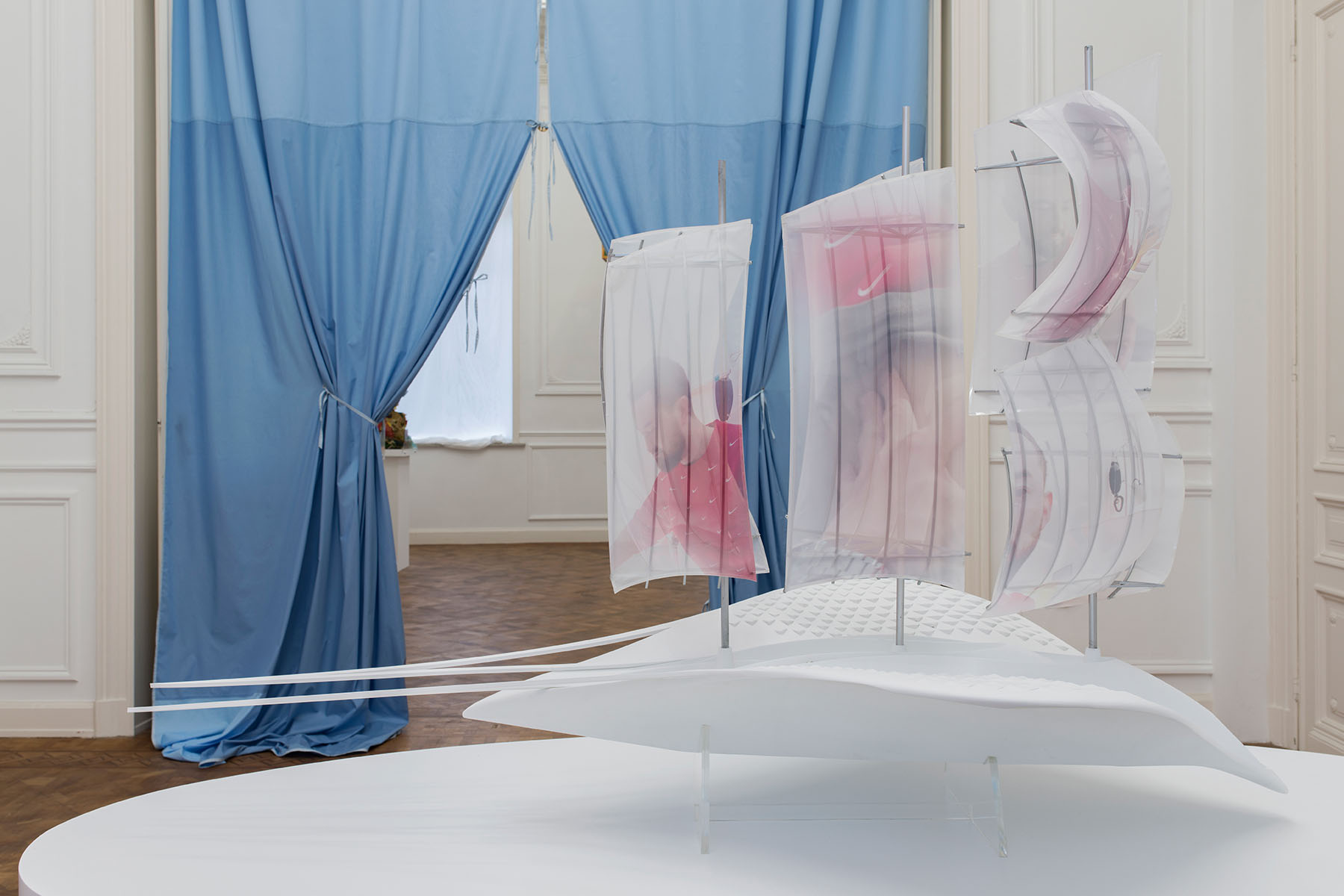
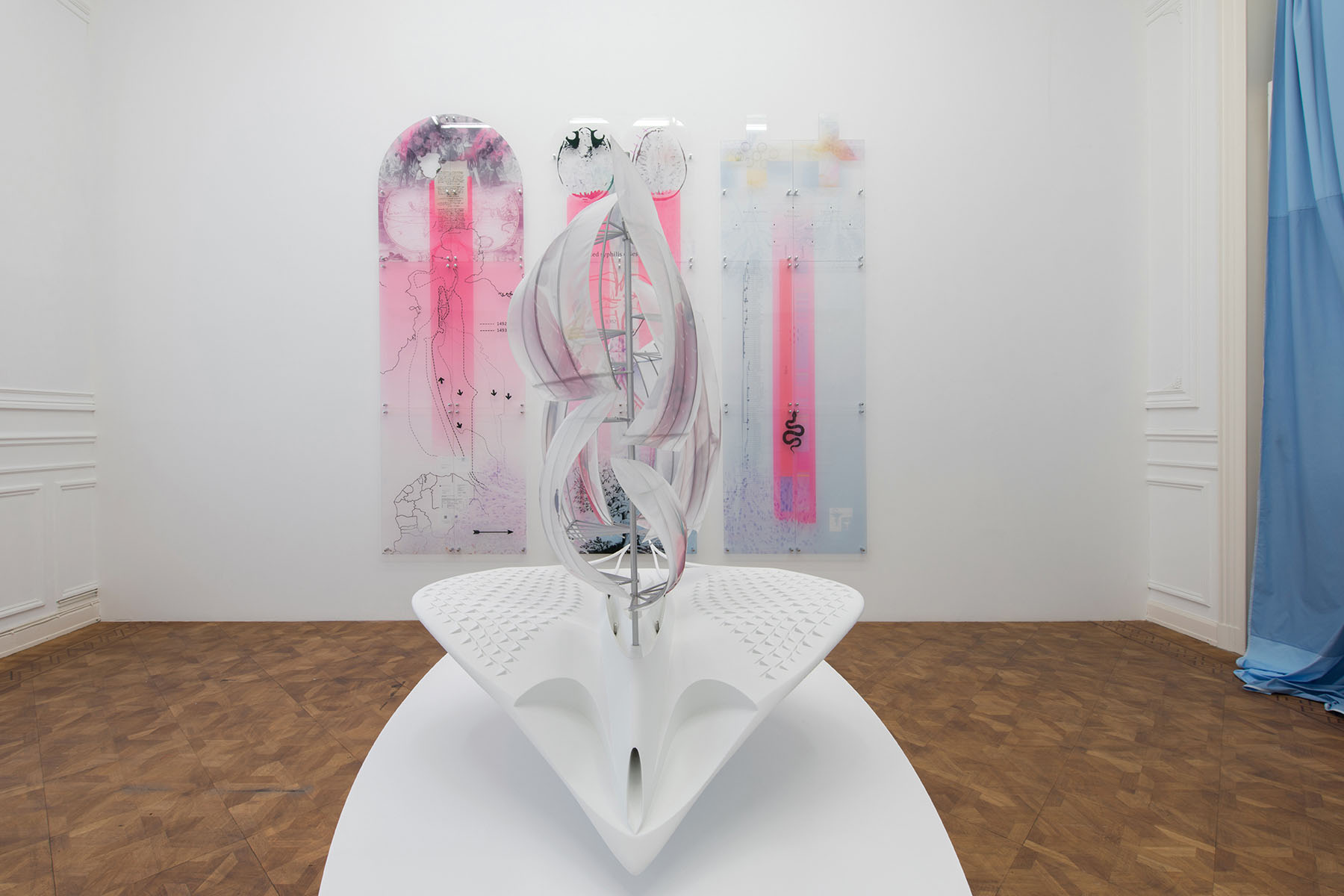
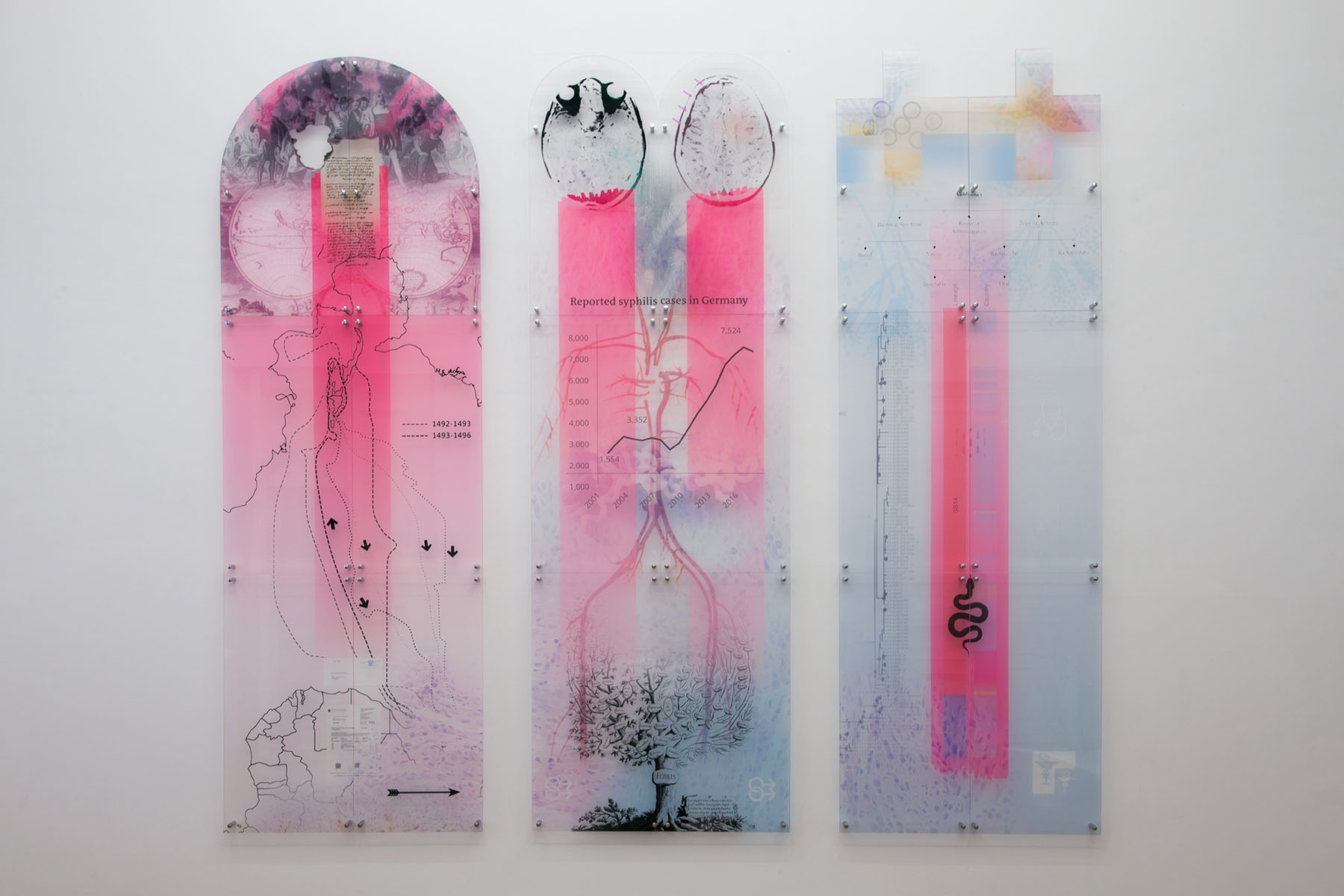
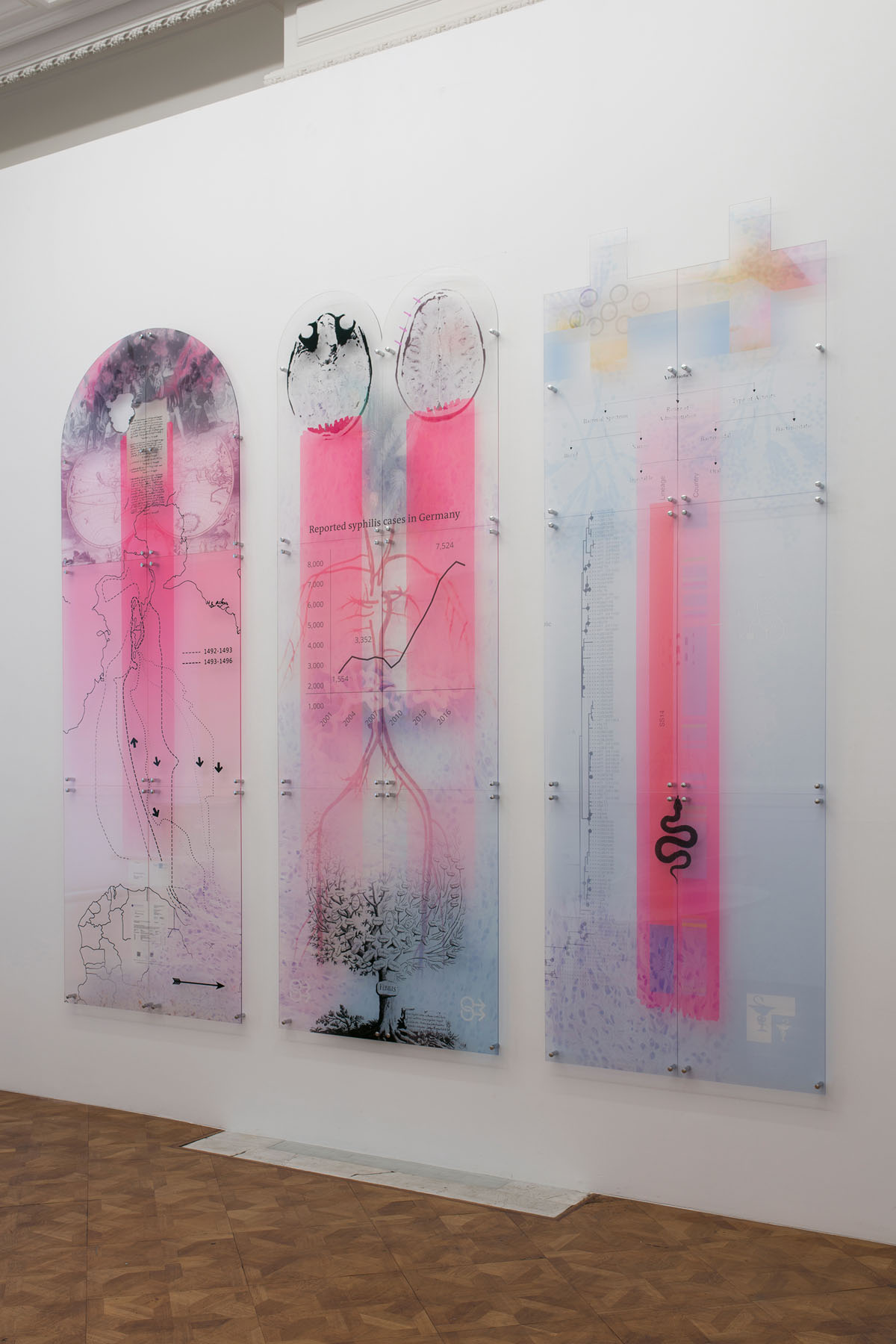
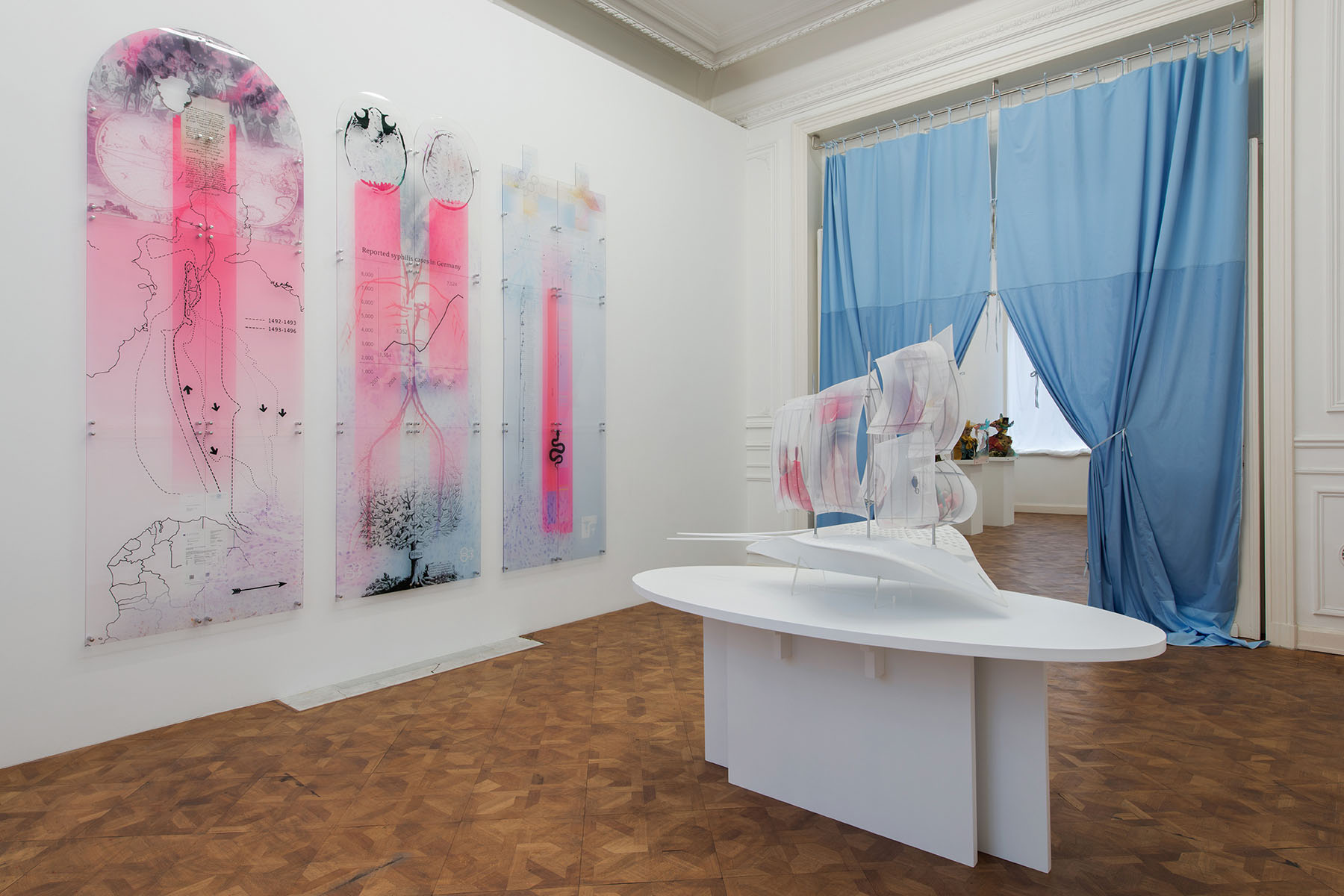
‘The Ark’
The ark or treasure chest is often the end point of an adventure story, containing the treasure, a code or an answer to a question or at least some crucial information. Here it contains both the problem and the solution, the beginning and the end. A self-portrait as a virus – containing swab samples of the artists DNA with the syphilis disease and the antibiotic cure. This ark short-circuits the story, removing all traces of adventure offering the problem and the solution at once.
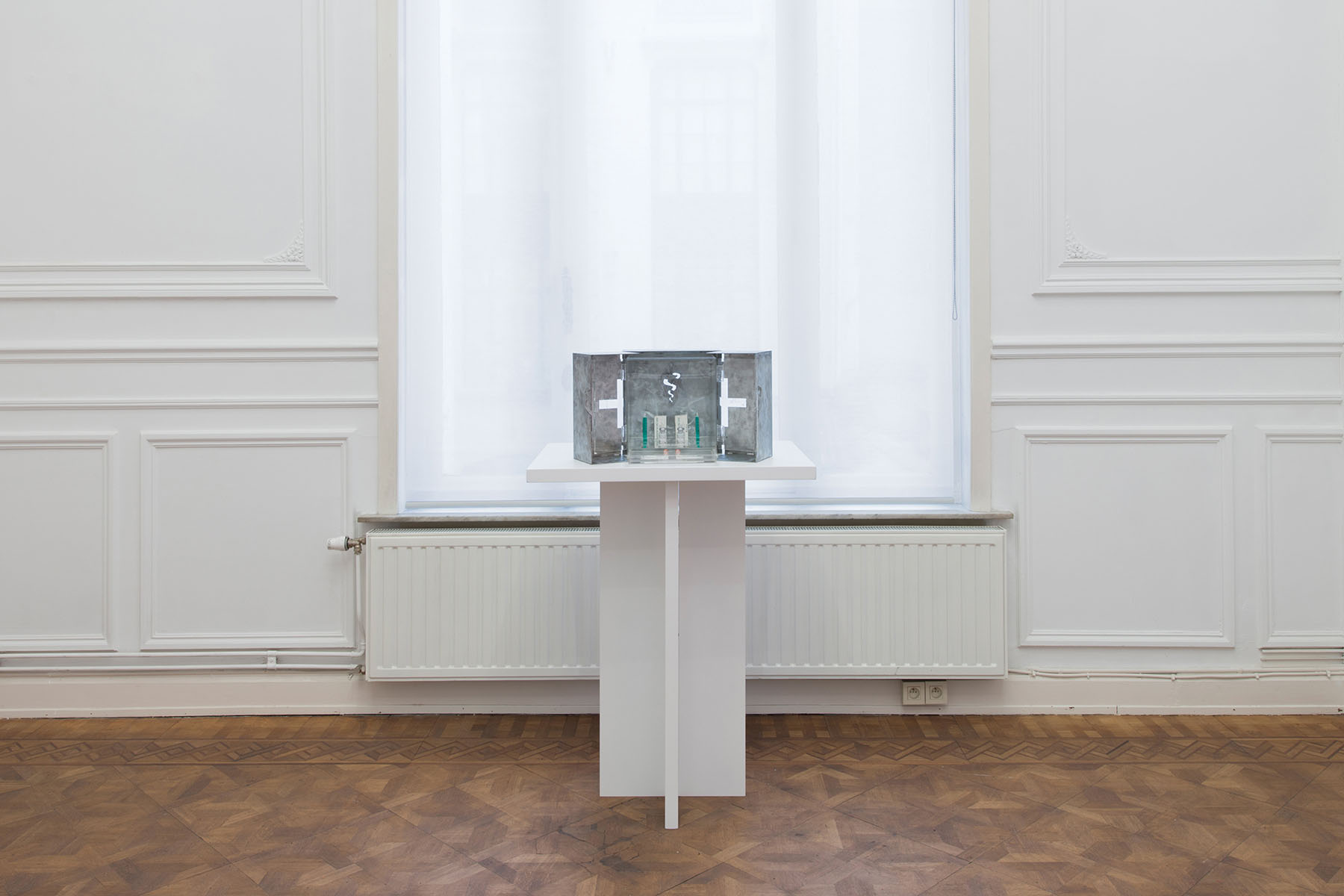
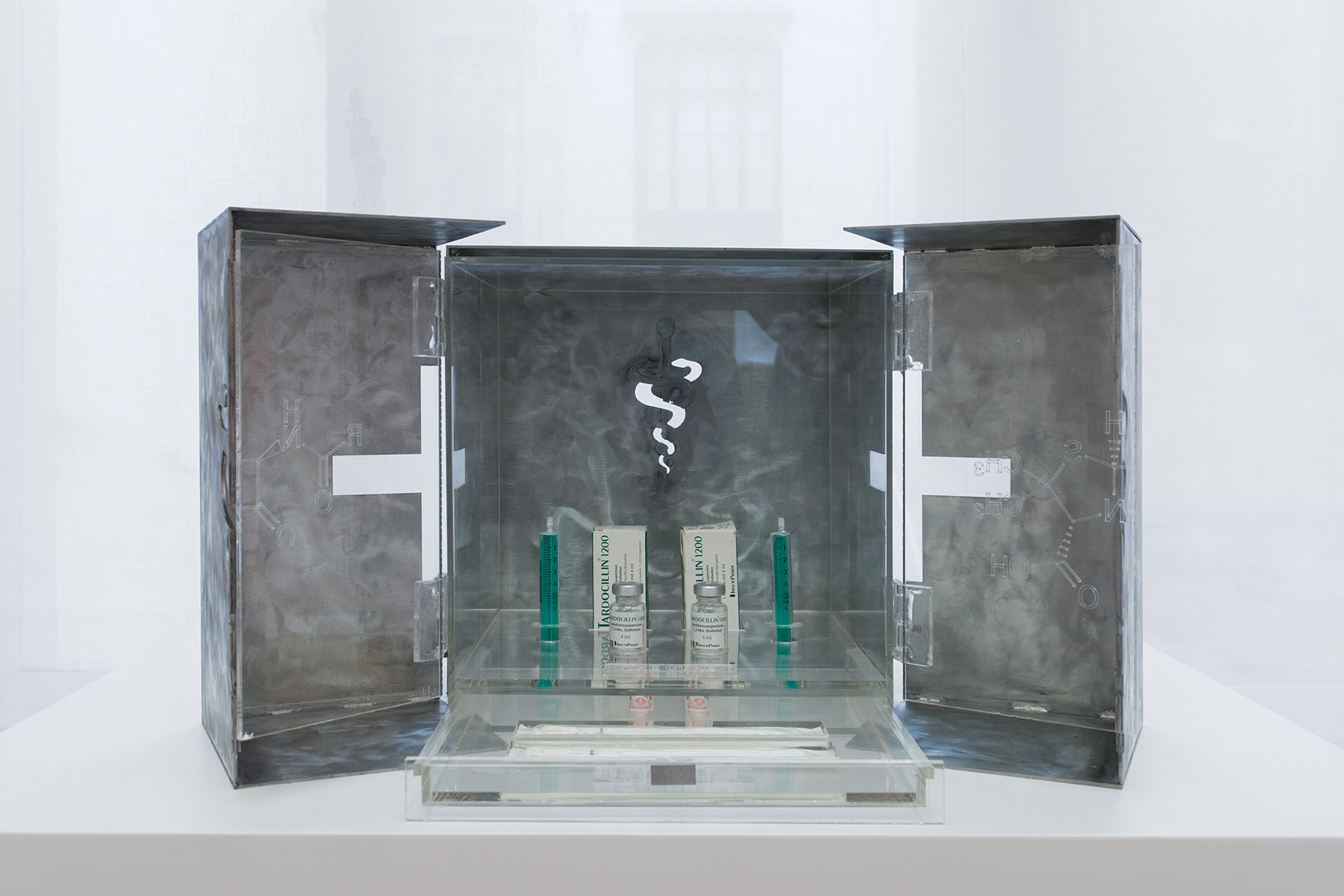
Previous Articles
OFLUXO is proudly powered by WordPress